

Honduras Travel Guide
Last Updated: September 1, 2023
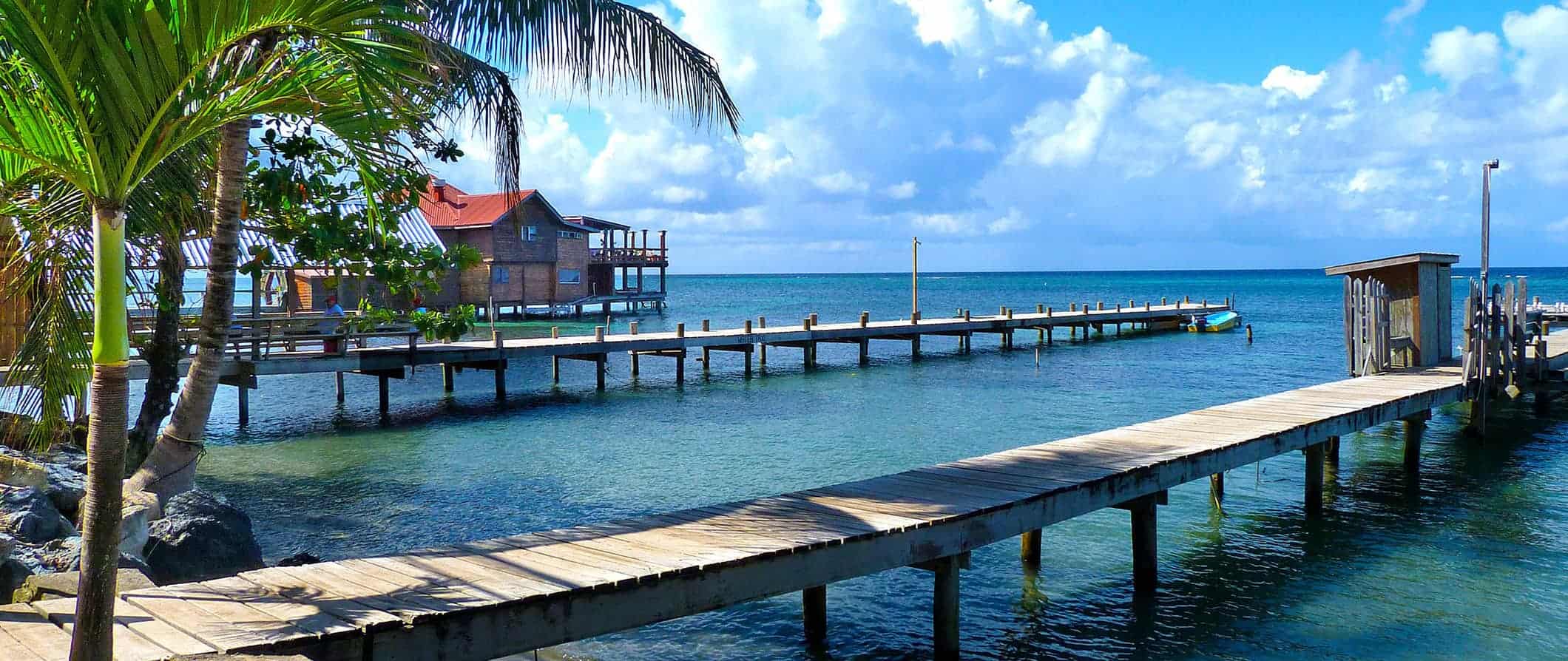
Unfortunately, owing to its violent past, it often gets glossed over for more polished Central American hotspots.
However, Honduras today is a much safer country and is popular with intrepid backpackers and expats looking to get off the beaten path. With world-class diving, a cheap cost of living, and incredible weather, Honduras offers some of the best value in the region.
That said, you’ll still need to take precautions and keep your wits about you — especially on the mainland — as crime and gang activity are still common.
This travel guide to Honduras can help you see the country, stay safe, and make the most of your visit to this beautiful and affordable country!
Table of Contents
- Things to See and Do
- Typical Costs
- Suggested Budget
- Money-Saving Tips
- Where to Stay
- How to Get Around
- How to Stay Safe
- Best Places to Book Your Trip
- Related Blogs on the Honduras
Top 5 Things to See and Do in the Honduras
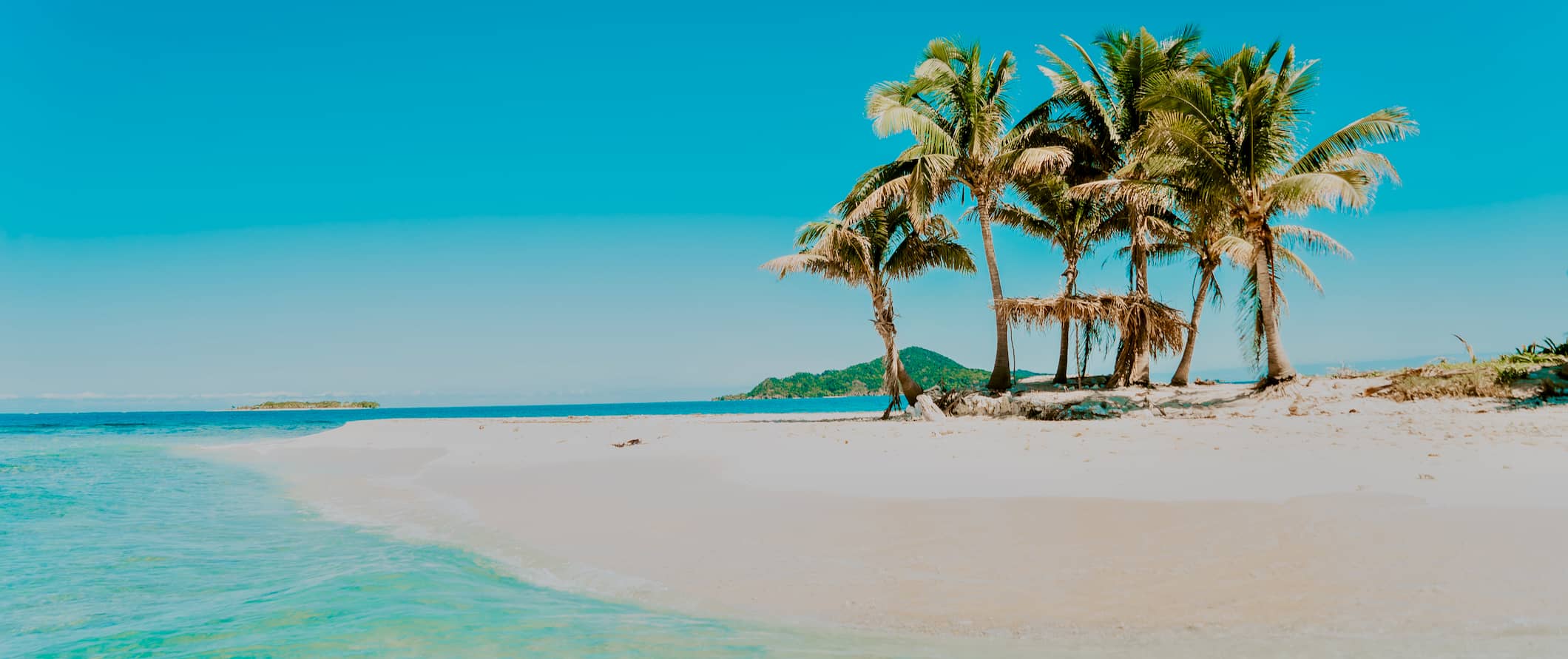
1. Explore the Copán Ruins
These incredible Mayan ruins are located near the border with Guatemala and are one of Honduras’ most popular tourist attractions. Nestled in a lush jungle valley, Copán Ruinas are a UNESCO World Heritage Site dating back to the height of the 5th century when Copán was a powerful capital of the Southern Maya kingdom. But in 738 CE, the king was captured and executed by his rival and archeologists believe that the city was abandoned by 800 CE. Today, the ruins attract tourists for their intricate stelae, tunnels, a hieroglyphic stairway, as well as the geography of the area itself which is filled with diverse wildlife including monkeys, sloths, parrots, and macaws. It takes a couple of days to see the entire site so try not to squeeze your visit into a day trip. There are two main sites: Copán, the main site originally used for nobility, and Las Sepulturas. To get there, head to the town of Copan Ruinas near the border with Guatemala; the ruins are nearby. Bring lots of sunscreen and water. Admission is 370 HNL.
2. Dive the Bay Islands
The Bay Islands, known as “Islas de la Bahía,” are one of the best diving spots in the Caribbean. They are located in the Gulf of Honduras and near the Belize Barrier Reef, which is part of the Mesoamerican Barrier Reef System. The Roatan, Utila, and Guanaja archipelagos all offer stunning dive sites with crystal-clear waters and incredible marine life. Roatan is the largest island while Utila is the cheapest, attracting budget divers as the island as it also offers a stunning array of wildlife, including nurse sharks, sea turtles, stingrays, and more. Get up close to colorful coral formations or deep dive 2,000 feet into the abyss for bluntnose sixgill shark sightings. Prices start at 870 HNL for one dive or a package of ten dives for 7,405 HNL.
3. Relax at Lake Yojoa
The country’s largest lake is rich in biodiversity with almost 400 bird species and over 100 plant species. This incredible site is a popular fishing spot for locals, a great place to visit a coffee plantation tour, and a fun place to zipline. Or if you’re looking for an adrenaline-filled experience, hike behind the stunning Pulhapanzak waterfall and explore the inside caves with the sound of water pounding around you. For something a bit more peaceful, rent a kayak and spend a few hours paddling around the lake. Or, if you don’t mind small spaces, head into the Caves of Taulabé where you can either explore on your own or hire a spelunking guide if you want to go deep underground. For a nice wander through the lush jungle wetlands, check out Los Naranjos Ecological and Archaeological Park. And if you’re up for a real challenge, hire a guide to climb to the top of Santa Barbara (2,744 meters/9,000 feet).
4. Adventure at Pico Bonito National Park
This sprawling bio-diverse national park is home to lush tropical jungles and moody cloud forests. It’s a haven for hiking, wildlife watching, and ziplining. The Cangrejal River is a fantastic place for white water rafting, with Class I-IV rapids. Or you can go swimming in the river and even jump off the rocks into the water if you feel like it. There are many different hiking trails here too, like the La Roca loop and the El Mapache trail to Bejuco Falls. If you’re a fan of the outdoors, don’t miss it. You can reach the park from La Ceiba or do it as a day trip from nearby regions.
5. Escape to Cayos Cochinos
The archipelago of Cayos Cochinos, made up of Cayo Menor and Cayo Grande, are two coral-abundant islands that offer some of the most postcard-perfect sandy white shorelines in Central America. They offer plentiful diving and snorkeling and the nearby cays are home to the world’s second-largest coral reef system. The only way to reach the Cochino Cays Marine Sanctuary is by boat; you can take a chartered day tour from Roatan and Utila or from La Ceiba. It’s a great place to disconnect and relax.
Other Things to See and Do in the Honduras
1. visit mercado guamilito.
Located in San Pedro Sula, this traditional market is an excellent place to buy Lenca ceramics, high-quality (and reasonably priced) leather, cigars, and silver. There’s also a no-frills food market that locals claim offers the best baleada , a national dish made with flour tortillas, cheese, cream, and fried beans. The market is open daily from 7am-4 pm.
2. Chill out on Utila
Most backpackers make a beeline for the island of Roatan, but if you’re looking for something beyond diving, Utila is a better option. It has a buzzing nightlife, cheap accommodation, beautiful white sand beaches, and even the chance to spot whale sharks. The 45-minute ferry ride from La Ceiba to Utila costs 750 HNL.
3. Visit Parque Nacional Jeannette Kawas
This national park is named after Jeannette Kawas, an environmental activist who fought to protect the area from commercial development and was brutally murdered in 1995. Now, her legacy lives on with this protected area, filled with abundant wildlife including howler monkeys, boa constrictors, and toucans. You’ll also find pristine beaches and untouched coral reefs here. The secluded park is also known as Punta Sal National Park and is just a 30-minute boat ride from Tela, a Caribbean coastal town. Admission is 120 HNL. Day trip prices start around 690 HNL.
4. Go zip lining
If you’re craving an adrenaline rush, Honduras has a dozen zip-lining experiences to choose from all around the country (including several on Roatan). Prices vary but expect to pay at least 950-1,085 HNL for a half-day tour. Lunch is usually included.
5. Explore the Río Plátano Biosphere Reserve
This heavily-forested area is a UNESCO World Heritage Site and one of the last remaining tropical rainforests in Central America. Established in 1982, it spans over 5,250 square kilometers (2,027 square miles) and is home to Mayan ruins, ancient petroglyphs, pumas, jaguars, giant ant-eaters, sloths, and over 2,000 indigenous locals. Getting here requires some effort (it’s a 6-hour bus from La Ceiba followed by a short boat ride) but you’ll be rewarded by sweeping vistas and a rare look at indigenous life in the rainforest. You can hire a day guide on arrival (for around 400 HNL) or embark on a multi-day tour up the river for 3,000 HNL. Kayaking day trips start around 940 HNL and crocodile night watching starts around 1200 HNL. Admission to the reserve itself is by donation.
6. Visit Valle de Angeles
This colonial town makes for a good day trip from Tegucigalpa, the capital of Honduras. It’s located 35 minutes away by car and, aside from the beautiful colonial buildings, there’s a lot of affordable handicraft shopping. While you’re here, spend some time relaxing in Parque Central, where you’ll see the historic colonial church or head into La Tigra, the nearby cloud forests that are full of hiking trails (admission is 247 HNL). Don’t forget insect repellent if you do visit the forest!
7. Attend Carnaval de La Ceiba
This is the biggest carnival in Central America. Held every May in La Ceiba, it attracts half a million revelers every year. The celebration is in honor of Saint Isidore the Laborer, the patron saint of the city. For two weeks, throngs of people flock to La Ceiba’s barrios (neighborhoods), who compete to throw the best carnavalito (little carnival) in town. It’s all in anticipation for the main event, the rainbow-filled parade “La Feria de San Isidro”, which takes place along Avenida San Isidro on the 3rd or 4th Saturday of May.
8. Go hiking in Parque Nacional Cusuco
This ethereal cloud forest is nestled into the Merendon mountain range near the border with Guatemala, making it somewhat difficult to access (during the rainy season you’ll need a 4×4). It’s a 2-3-hour drive from San Pedro. There are five stunning hiking trails that cross the cloud and dwarf forests. Expect to see plenty of parrots, toucans, and quetzals here. Unless you have a 4WD vehicle, you’ll need to go with a tour company. Admission is around 250 HNL.
9. See the Roatan Butterfly Garden
Located in Roatan, this indoor garden is home to over 30 species of moths and butterflies, as well as a large collection of boa constrictors, parrots, scarlet macaws, and tropical orchids. It is best to visit during the early morning when the butterflies are most active. Admission is around 358 HNL.
10. Visit the Lancetilla Botanical Garden
Located on the coast in Tela, Honduras’s only botanical garden happens to also be the largest in Latin America. Spanning over 4,100 acres, it boasts thousands of varieties of national and exotic flora and fauna (including a bamboo collection and an orchid collection). There are over 1,500 trees in its arboretum and the garden also has 3,000 acres of virgin rainforest. It’s open 365 days a year and admission is 198 HNL.
Honduras Travel Costs
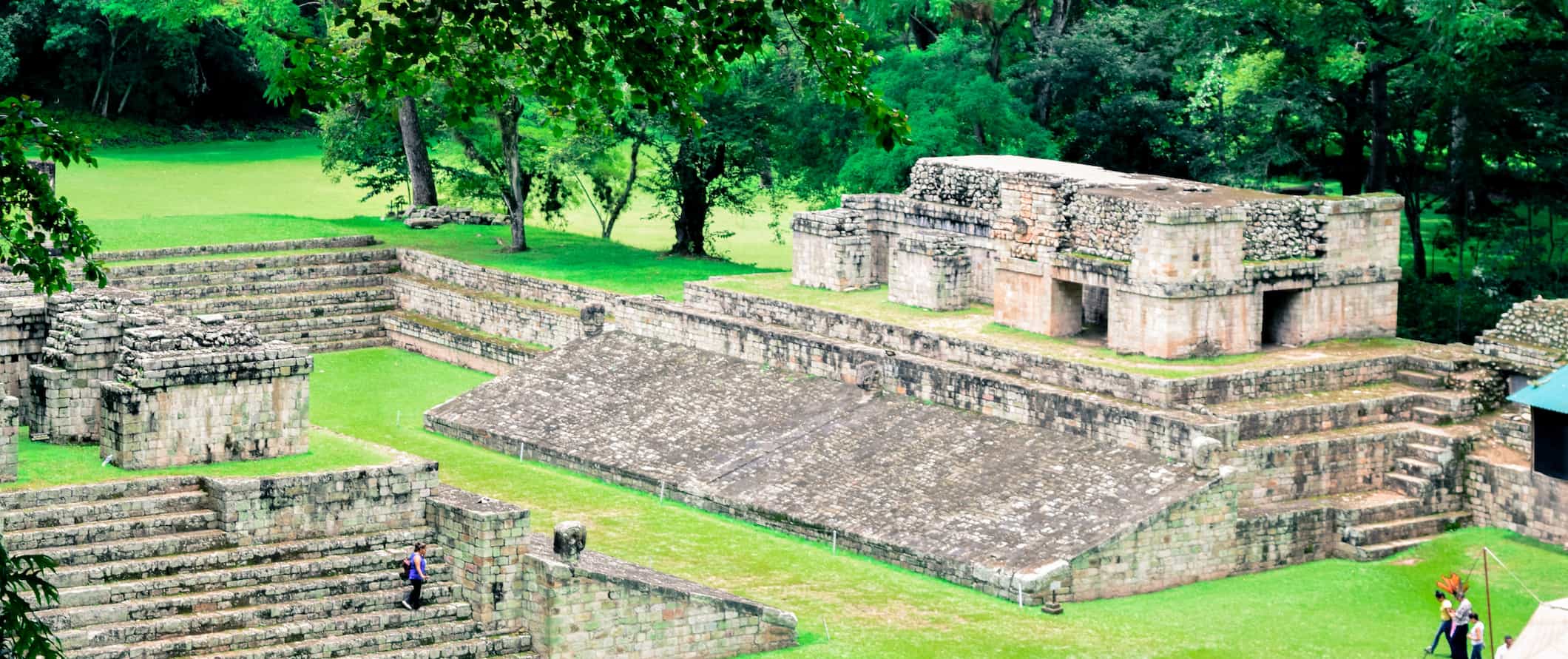
Hostels – Shared dorms with 4-8 beds cost 370 HNL per night, with private rooms costing anything from 400 to 1,400 HNL. Free Wi-Fi and free breakfast are generally included. Most hostels also have A/C and hot water.
Wild camping isn’t recommended here due to petty theft, rainstorms, and the sweltering humidity. There are a few campgrounds around the country, though they aren’t any cheaper than staying in a hostel.
Budget hotels – Budget hotels can be found for around 1,000 HNL for a double room. Most of the cheaper hotels include Wi-Fi, however, for a hotel with a kitchen, A/C, and a pool you’ll pay at least 2,000 HNL per night.
Airbnb is available in Honduras but really only found in Tegucigalpa and the tourist spots on the coast. Prices start at 500 HNL for a shared room, 1,000 HNL for a private room, and 2,900 for a villa.
Food – Honduran cuisine leans heavily on fish, soups, beans, rice, and coconut. Popular dishes include guisado (a spicy chicken stew), carne asada (grilled sliced beef), and baleda (cheese and bean tortilla). Generally, you can expect a mix of Spanish, Lenca, and Caribbean influences.
Local meals consisting of rice, beans, and a drink costs around 120 HNL. Set lunch menus at comedores (small local eateries) offer large portions for cheap so stick to them when eating out.
Street food is popular here, with popular favorites being grilled corn, baleadas (a tortilla filled with fried beans, cream, and cheese), pastelitos (a Cuban pastry similar to empanadas), and fruit smoothies (a common breakfast here). These are usually under 50 HNL.
A three-course meal at a restaurant serving local cuisine costs 600 HNL, including a drink. These establishments usually add a 10% service charge to your bill too. Expect a blend of traditional Mayan cuisine (rice, beans, corn, seafood) with touches of Western and Caribbean flair.
A bottle of water is 17 HNL and a latte or cappuccino will set you back 43 HNL. Domestic beer is around 70 HNL.
Backpacking Honduras Suggested Budgets
On a backpacker budget of 875 HNL per day, you can stay in a dorm, eat street food for all your meals, take buses to get around, and do some hikes or other free activities like lounging on the beach. If you plan to drink, you’ll need to add around 150 HNL more per day.
On a mid-range budget of 2,400 HNL per day, you can stay in a budget hotel, eat out at local restaurants, have a few drinks, take the occasional taxi, and do some paid activities like visiting national parks or diving.
On a “luxury” budget of 5,200 HNL, you can stay in a private villa or nicer hotel, take taxis everywhere, eat out anywhere you want, drink more, and do more tours and activities. This is just the ground floor for luxury though. The sky is the limit!
You can use the chart below to get some idea of how much you need to budget daily, depending on your travel style. Keep in mind these are daily averages — some days you’ll spend more, some days you’ll spend less (you might spend less every day). We just want to give you a general idea of how to make your budget. Prices are in HNL.
Honduras Travel Guide: Money-Saving Tips
Honduras is very affordable. You’d be hard-pressed to spend a lot of money here unless you are actually trying to. That said, a true budget traveler always looks for ways to save. Here are some money-saving tips to help you:
- Refill your water – The tap water in Honduras is not safe to drink so make sure you have a reusable bottle with a built-in filter. To stay safe, bring a water filter like LifeStraw to ensure your water is clean and free from bacteria. You’ll save money on buying bottled water and save the environment too!
- Know what to pay – When you need to barter for something, talk to your hostel/hotel staff first. Find out what a fair price is so that you can avoid getting overcharged.
- Avoid paying with a credit card – Honduras is a cash-driven society. In places where you can pay with a credit card, expect fees of 5-10%. Pay with cash as often as possible.
- Learn some Spanish – To avoid getting overcharged, learn some Spanish. Even just a few words and phrases can help you avoid being charged tourist prices.
- Travel during the shoulder season – Prices are highest during the dry months (December-April). To avoid crowds and save money, travel during the rainy season or shoulder season. You might get rained on, however, accommodation and activities will be cheaper.
- Stay with a local – Honduras has a small Couchsurfing scene, but if you book early you can likely find a host who can share their insider knowledge and give you a free place to stay.
Where to Stay in Honduras
Honduras has plenty of fun, safe, and social hostels. Here are some of my suggested places to stay in Honduras:
- Roatan Backpackers Hostel (Roatan)
- Palmira Hostel (Tegucigalpa)
- Iguana Azul (Copan Ruinas)
- Jungle River Lodge (La Ceiba)
How to Get Around Honduras
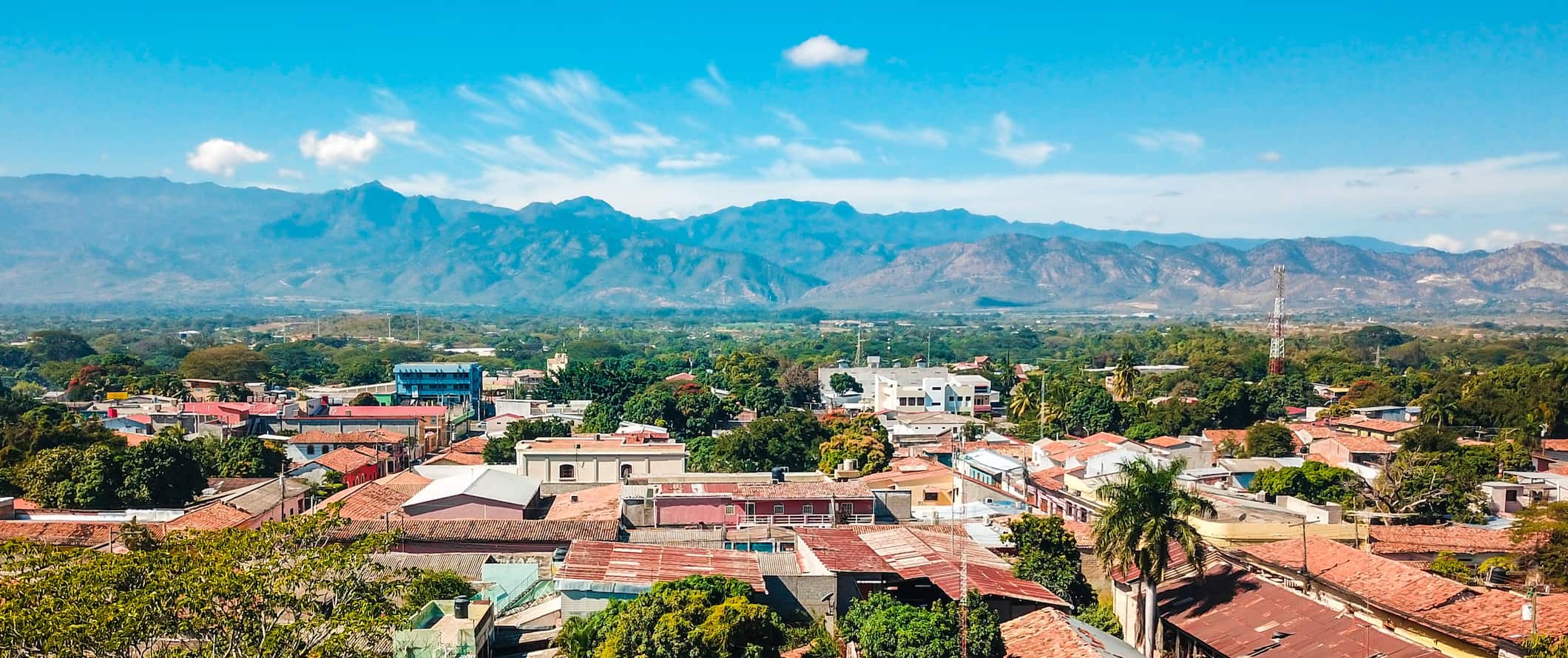
Bus – The cheapest way to get from A to B in Honduras is by bus. For local city journeys, taxis are recommended due to safety issues (petty theft is common on public transportation).
Direct buses for cross-country trips are more expensive but more comfortable and faster than the slower buses that make multiple stops. A direct bus from Tegucigalpa to La Ceiba takes around 6 hours and costs 860-950 HNL. A direct bus from Tegucigalpa to Copan Ruinas takes 9 hours and costs 1,293 HNL.
The multiple-stop buses ( parando ) are slower and can add a few extra hours to your trip. But, if you’re not in a rush, they can save you upwards of 50%.
Taxi – Taxis are plentiful and can be found pretty much everywhere. Fares start at 74 HNL and are charged at 65 HNL per kilometer.
Shared taxis ( colectivos ) are common for popular routes in the bigger cities too and will slash the private rates in half. Negotiate prices prior to getting in the car. Ask your hotel/hostel staff for rates before you arrive so you aren’t ripped off.
When on the islands, water taxis are your best option for getting around. They run from Roatan to West End, and from Coyolito to Isla del Tigre. Shared water taxis cost between 75-100 HNL depending on the route.
Flying – Domestic flights in Honduras are expensive. Connections between the major cities (La Ceiba, Tegucigalpa, San Pedro Sula) to Roatan, run frequently, however, one-way tickets to these key destinations usually cost between 3,000-4,250 HNL each way. If you’re on a budget, avoid flying.
Car rental – Driving in Honduras is not recommended as the roads aren’t that safe (landslides, flooding), there’s heavy traffic, and robberies are common. Avoid renting a car and stick to buses.
When to Go to Honduras
Honduras is, for the most part, a year-round destination. Temperatures hover around the 27-32°C (82-90°F) mark all year. However, the clammy humidity can feel like it’s higher than that during the rainy season (May-November).
Hurricanes are possible from April to October, however, if you’re willing to change your travel plans on a whim due to the weather, you can save a lot of money by visiting during this period. Be aware that booking during las lluvias (the rainy season), means rural areas (and hiking trails) can be harder to access due to storms.
The driest months, from December to April are considered peak season and are the best (albeit most expensive time) to visit. The coastal areas are particularly packed during this period, although ‘busy’ for Honduras is still pretty quiet compared to other popular Latin American destinations. If you’re serious about diving, you’re also going to get the best visibility during this time.
How to Stay Safe in Honduras
Honduras has found it difficult to shrug off its former status as the ‘murder capital of the world.’ Yet the country has improved leaps and bounds in terms of safety and the majority of travelers have no trouble navigating the country safely.
Homicides decreased by over 50% from 2012-2019 and kidnappings declined by 82% from 2013-2019. The majority of crimes happen in the major cities: Tegucigalpa, San Pedro Sula, and La Ceiba so I would be extra vigilant in those places, especially at night. (I wouldn’t walk around the capital at night alone.)
Outside of those areas, crime is much less common (especially in the Bay Islands). That being said, it’s important to keep an eye on your belongings on public transport, in busy urban areas, and near bus stops/stations.
Take cabs at night (ideally with other travelers) instead of walking alone and avoid walking down side streets that are not well lit.
Walking around during the daytime is usually trouble-free as long as you keep your valuables out of sight and don’t flash fancy jewelry, phones, or money.
Avoid taking the city bus, where pickpocketing is rife.
Since scams can occur here, read about common travel scams to avoid so you can be prepared.
Solo female travelers should generally feel safe here as long as they follow the advice above. Additionally, the standard precautions apply (never leave your drink unattended at the bar, never walk home alone intoxicated, etc.).
If you’re visiting during hurricane season (April-October), be sure to check the weather regularly.
If you experience an emergency, dial 911 for assistance.
The most important piece of advice I can offer is to purchase good travel insurance. Travel insurance will protect you against illness, injury, theft, and cancellations. It’s comprehensive protection in case anything goes wrong. I never go on a trip without it as I’ve had to use it many times in the past. You can use the widget below to find the policy right for you:
Honduras Travel Guide: The Best Booking Resources
These are my favorite companies to use when I travel. They consistently have the best deals, offer world-class customer service and great value, and overall, are better than their competitors. They are the companies I use the most and are always the starting point in my search for travel deals.
- Skyscanner – Skyscanner is my favorite flight search engine. They search small websites and budget airlines that larger search sites tend to miss. They are hands down the number one place to start.
- Hostelworld – This is the best hostel accommodation site out there with the largest inventory, best search interface, and widest availability.
- Booking.com – The best all around booking site that constantly provides the cheapest and lowest rates. They have the widest selection of budget accommodation. In all my tests, they’ve always had the cheapest rates out of all the booking websites.
- Get Your Guide – Get Your Guide is a huge online marketplace for tours and excursions. They have tons of tour options available in cities all around the world, including everything from cooking classes, walking tours, street art lessons, and more!
- SafetyWing – Safety Wing offers convenient and affordable plans tailored to digital nomads and long-term travelers. They have cheap monthly plans, great customer service, and an easy-to-use claims process that makes it perfect for those on the road.
- LifeStraw – My go-to company for reusable water bottles with built-in filters so you can ensure your drinking water is always clean and safe.
- Unbound Merino – They make lightweight, durable, easy-to-clean travel clothing.
- Top Travel Credit Cards – Points are the best way to cut down travel expenses. Here’s my favorite point earning credit cards so you can get free travel!
Honduras Travel Guide: Related Articles
Want more info? Check out all the articles I’ve written on Asia travel and continue planning your trip:
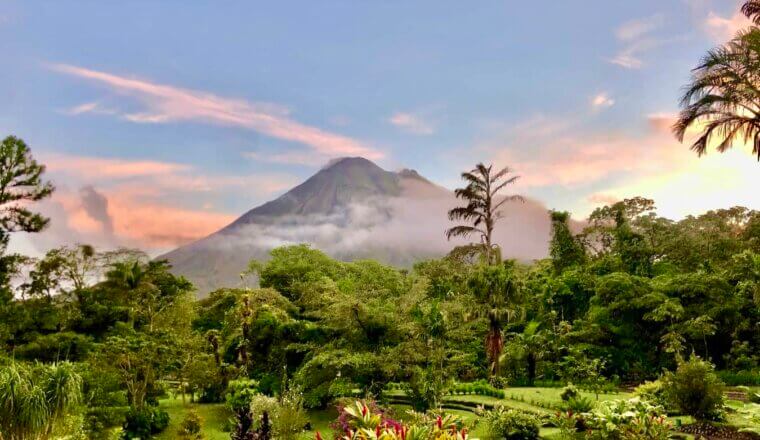
Do You Need Travel Insurance for Costa Rica?
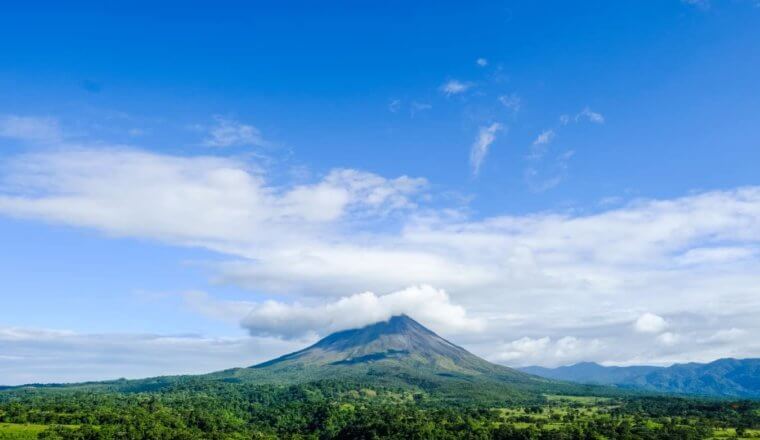
The Best Tour Companies in Costa Rica
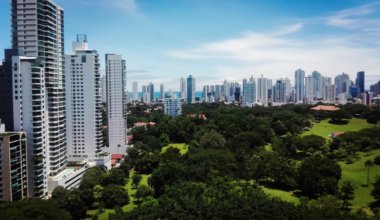
The 6 Best Hostels in Panama City, Panama
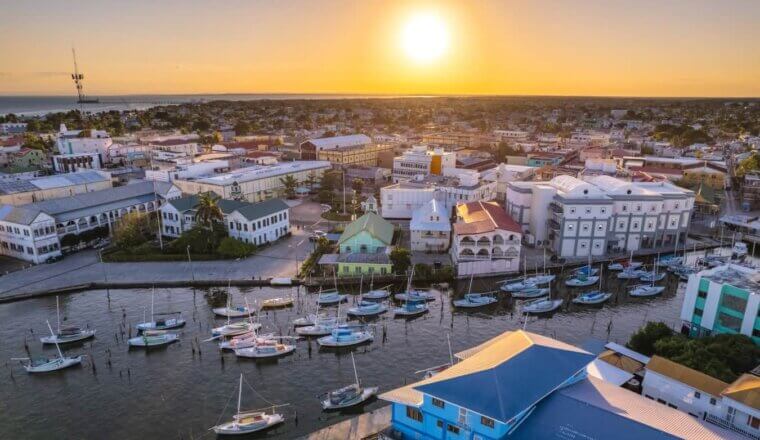
Is Belize Safe to Visit?
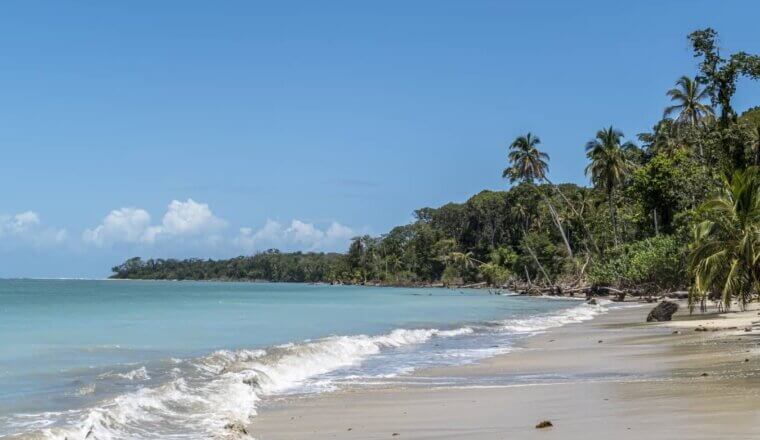
Is Central America Safe to Visit?
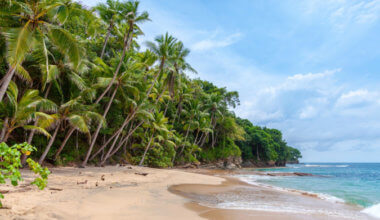
How to Get Around Central America on a Budget
Get your free travel starter kit.
Enter your email and get planning cheatsheets including a step by step checklist, packing list, tips cheat sheet, and more so you can plan like a pro!

- Where To Stay
- Transportation
- Booking Resources
- Related Blogs
Honduras Travel Restrictions
Traveler's COVID-19 vaccination status
Traveling from the United States to Honduras
Open for vaccinated visitors
COVID-19 testing
Not required
Not required for vaccinated visitors
Restaurants
Open with restrictions
Not required in enclosed environments and public transportation.
Documents & Additional resources
Ready to travel, find flights to honduras, find stays in honduras, explore more countries on travel restrictions map, destinations you can travel to now, dominican republic, netherlands, philippines, puerto rico, switzerland, united arab emirates, united kingdom, know when to go.
Sign up for email alerts as countries begin to open - choose the destinations you're interested in so you're in the know.
Can I travel to Honduras from the United States?
Most visitors from the United States, regardless of vaccination status, can enter Honduras.
Can I travel to Honduras if I am vaccinated?
Fully vaccinated visitors from the United States can enter Honduras without restrictions.
Can I travel to Honduras without being vaccinated?
Unvaccinated visitors from the United States can enter Honduras without restrictions.
Do I need a COVID test to enter Honduras?
Visitors from the United States are not required to present a negative COVID-19 PCR test or antigen result upon entering Honduras.
Can I travel to Honduras without quarantine?
Travelers from the United States are not required to quarantine.
Do I need to wear a mask in Honduras?
Mask usage in Honduras is not required in enclosed environments and public transportation.
Are the restaurants and bars open in Honduras?
Restaurants in Honduras are open with restrictions. Bars in Honduras are .
You are using an outdated browser. Upgrade your browser today or install Google Chrome Frame to better experience this site.
Honduras Traveler View
Travel health notices, vaccines and medicines, non-vaccine-preventable diseases, stay healthy and safe.
- Packing List
After Your Trip
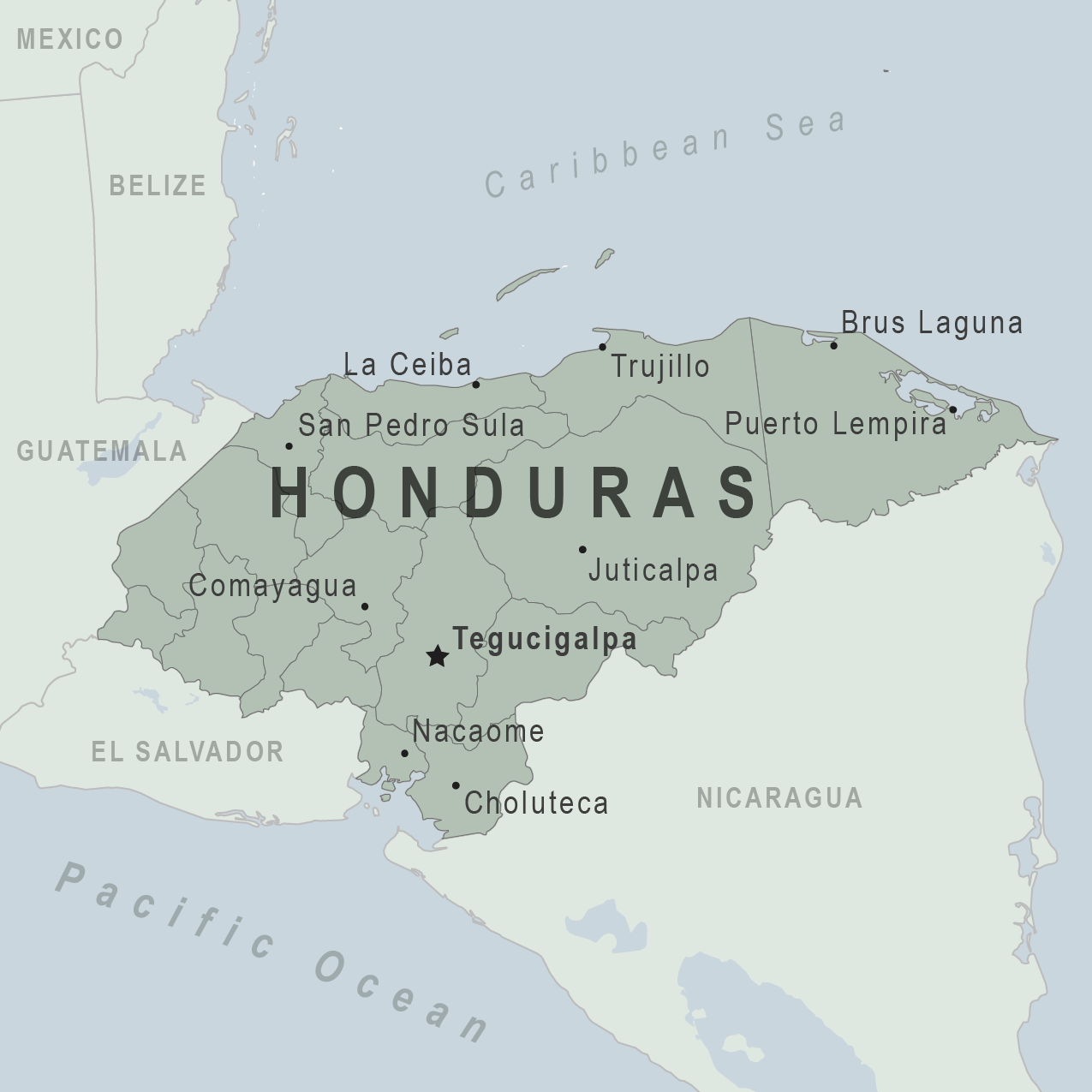
Be aware of current health issues in Honduras. Learn how to protect yourself.
Level 1 Practice Usual Precautions
- New Global Dengue June 20, 2024 Dengue is a year-round risk in many parts of the world, with outbreaks commonly occurring every 2–5 years. Travelers to risk areas should prevent mosquito bites. Destination List: Argentina, Brazil, Burkina Faso, Cambodia, Colombia, Costa Rica, Curaçao, Ecuador, including the Galápagos Islands, Ethiopia, Fiji, French Guiana (France), Guadeloupe, Guatemala, Guyana, Honduras, Indonesia, Laos, Mali, Martinique (France), Mauritius, Mexico, Nicaragua, Panama, Paraguay, Peru, Samoa, Singapore, Sri Lanka, Sudan, Uruguay
⇧ Top
Check the vaccines and medicines list and visit your doctor at least a month before your trip to get vaccines or medicines you may need. If you or your doctor need help finding a location that provides certain vaccines or medicines, visit the Find a Clinic page.
Routine vaccines
Recommendations.
Make sure you are up-to-date on all routine vaccines before every trip. Some of these vaccines include
- Chickenpox (Varicella)
- Diphtheria-Tetanus-Pertussis
- Flu (influenza)
- Measles-Mumps-Rubella (MMR)
Immunization schedules
All eligible travelers should be up to date with their COVID-19 vaccines. Please see Your COVID-19 Vaccination for more information.
COVID-19 vaccine
Hepatitis A
Recommended for unvaccinated travelers one year old or older going to Honduras.
Infants 6 to 11 months old should also be vaccinated against Hepatitis A. The dose does not count toward the routine 2-dose series.
Travelers allergic to a vaccine component or who are younger than 6 months should receive a single dose of immune globulin, which provides effective protection for up to 2 months depending on dosage given.
Unvaccinated travelers who are over 40 years old, immunocompromised, or have chronic medical conditions planning to depart to a risk area in less than 2 weeks should get the initial dose of vaccine and at the same appointment receive immune globulin.
Hepatitis A - CDC Yellow Book
Dosing info - Hep A
Hepatitis B
Recommended for unvaccinated travelers younger than 60 years old traveling to Honduras. Unvaccinated travelers 60 years and older may get vaccinated before traveling to Honduras.
Hepatitis B - CDC Yellow Book
Dosing info - Hep B
CDC recommends that travelers going to certain areas of Honduras take prescription medicine to prevent malaria. Depending on the medicine you take, you will need to start taking this medicine multiple days before your trip, as well as during and after your trip. Talk to your doctor about which malaria medication you should take.
Find country-specific information about malaria.
Malaria - CDC Yellow Book
Considerations when choosing a drug for malaria prophylaxis (CDC Yellow Book)
Malaria information for Honduras.
Cases of measles are on the rise worldwide. Travelers are at risk of measles if they have not been fully vaccinated at least two weeks prior to departure, or have not had measles in the past, and travel internationally to areas where measles is spreading.
All international travelers should be fully vaccinated against measles with the measles-mumps-rubella (MMR) vaccine, including an early dose for infants 6–11 months, according to CDC’s measles vaccination recommendations for international travel .
Measles (Rubeola) - CDC Yellow Book
Dogs infected with rabies are sometimes found in Honduras.
Rabies is also present in bats.
If rabies exposures occur while in Honduras, rabies vaccines may only be available in larger suburban/urban medical facilities.
Rabies pre-exposure vaccination considerations include whether travelers 1) will be performing occupational or recreational activities that increase risk for exposure to potentially rabid animals and 2) might have difficulty getting prompt access to safe post-exposure prophylaxis.
Please consult with a healthcare provider to determine whether you should receive pre-exposure vaccination before travel.
For more information, see country rabies status assessments .
Rabies - CDC Yellow Book
Recommended for most travelers, especially those staying with friends or relatives or visiting smaller cities or rural areas.
Typhoid - CDC Yellow Book
Dosing info - Typhoid
Yellow Fever
Required for travelers 1-60 years old arriving from countries with risk for YF virus transmission; this includes >12-hour airport transits or layovers in countries with risk for YF virus transmission. 1
Yellow Fever - CDC Yellow Book
Avoid contaminated water
Leptospirosis
How most people get sick (most common modes of transmission)
- Touching urine or other body fluids from an animal infected with leptospirosis
- Swimming or wading in urine-contaminated fresh water, or contact with urine-contaminated mud
- Drinking water or eating food contaminated with animal urine
- Avoid contaminated water and soil
- Avoid floodwater
Clinical Guidance
Avoid bug bites, chagas disease (american trypanosomiasis).
- Accidentally rub feces (poop) of the triatomine bug into the bug bite, other breaks in the skin, your eyes, or mouth
- From pregnant woman to her baby, contaminated blood products (transfusions), or contaminated food or drink.
- Avoid Bug Bites
Chagas disease
- Mosquito bite
Leishmaniasis
- Sand fly bite
- An infected pregnant woman can spread it to her unborn baby
Airborne & droplet
- Breathing in air or accidentally eating food contaminated with the urine, droppings, or saliva of infected rodents
- Bite from an infected rodent
- Less commonly, being around someone sick with hantavirus (only occurs with Andes virus)
- Avoid rodents and areas where they live
- Avoid sick people
Tuberculosis (TB)
- Breathe in TB bacteria that is in the air from an infected and contagious person coughing, speaking, or singing.
Learn actions you can take to stay healthy and safe on your trip. Vaccines cannot protect you from many diseases in Honduras, so your behaviors are important.
Eat and drink safely
Food and water standards around the world vary based on the destination. Standards may also differ within a country and risk may change depending on activity type (e.g., hiking versus business trip). You can learn more about safe food and drink choices when traveling by accessing the resources below.
- Choose Safe Food and Drinks When Traveling
- Water Treatment Options When Hiking, Camping or Traveling
- Global Water, Sanitation and Hygiene (WASH)
- Avoid Contaminated Water During Travel
You can also visit the Department of State Country Information Pages for additional information about food and water safety.
Prevent bug bites
Bugs (like mosquitoes, ticks, and fleas) can spread a number of diseases in Honduras. Many of these diseases cannot be prevented with a vaccine or medicine. You can reduce your risk by taking steps to prevent bug bites.
What can I do to prevent bug bites?
- Cover exposed skin by wearing long-sleeved shirts, long pants, and hats.
- Use an appropriate insect repellent (see below).
- Use permethrin-treated clothing and gear (such as boots, pants, socks, and tents). Do not use permethrin directly on skin.
- Stay and sleep in air-conditioned or screened rooms.
- Use a bed net if the area where you are sleeping is exposed to the outdoors.
What type of insect repellent should I use?
- FOR PROTECTION AGAINST TICKS AND MOSQUITOES: Use a repellent that contains 20% or more DEET for protection that lasts up to several hours.
- Picaridin (also known as KBR 3023, Bayrepel, and icaridin)
- Oil of lemon eucalyptus (OLE) or para-menthane-diol (PMD)
- 2-undecanone
- Always use insect repellent as directed.
What should I do if I am bitten by bugs?
- Avoid scratching bug bites, and apply hydrocortisone cream or calamine lotion to reduce the itching.
- Check your entire body for ticks after outdoor activity. Be sure to remove ticks properly.
What can I do to avoid bed bugs?
Although bed bugs do not carry disease, they are an annoyance. See our information page about avoiding bug bites for some easy tips to avoid them. For more information on bed bugs, see Bed Bugs .
For more detailed information on avoiding bug bites, see Avoid Bug Bites .
Stay safe outdoors
If your travel plans in Honduras include outdoor activities, take these steps to stay safe and healthy during your trip.
- Stay alert to changing weather conditions and adjust your plans if conditions become unsafe.
- Prepare for activities by wearing the right clothes and packing protective items, such as bug spray, sunscreen, and a basic first aid kit.
- Consider learning basic first aid and CPR before travel. Bring a travel health kit with items appropriate for your activities.
- If you are outside for many hours in heat, eat salty snacks and drink water to stay hydrated and replace salt lost through sweating.
- Protect yourself from UV radiation : use sunscreen with an SPF of at least 15, wear protective clothing, and seek shade during the hottest time of day (10 a.m.–4 p.m.).
- Be especially careful during summer months and at high elevation. Because sunlight reflects off snow, sand, and water, sun exposure may be increased during activities like skiing, swimming, and sailing.
- Very cold temperatures can be dangerous. Dress in layers and cover heads, hands, and feet properly if you are visiting a cold location.
Stay safe around water
- Swim only in designated swimming areas. Obey lifeguards and warning flags on beaches.
- Practice safe boating—follow all boating safety laws, do not drink alcohol if driving a boat, and always wear a life jacket.
- Do not dive into shallow water.
- Do not swim in freshwater in developing areas or where sanitation is poor.
- Avoid swallowing water when swimming. Untreated water can carry germs that make you sick.
- To prevent infections, wear shoes on beaches where there may be animal waste.
Leptospirosis, a bacterial infection that can be spread in fresh water, is found in Honduras. Avoid swimming in fresh, unchlorinated water, such as lakes, ponds, or rivers.
Keep away from animals
Most animals avoid people, but they may attack if they feel threatened, are protecting their young or territory, or if they are injured or ill. Animal bites and scratches can lead to serious diseases such as rabies.
Follow these tips to protect yourself:
- Do not touch or feed any animals you do not know.
- Do not allow animals to lick open wounds, and do not get animal saliva in your eyes or mouth.
- Avoid rodents and their urine and feces.
- Traveling pets should be supervised closely and not allowed to come in contact with local animals.
- If you wake in a room with a bat, seek medical care immediately. Bat bites may be hard to see.
All animals can pose a threat, but be extra careful around dogs, bats, monkeys, sea animals such as jellyfish, and snakes. If you are bitten or scratched by an animal, immediately:
- Wash the wound with soap and clean water.
- Go to a doctor right away.
- Tell your doctor about your injury when you get back to the United States.
Consider buying medical evacuation insurance. Rabies is a deadly disease that must be treated quickly, and treatment may not be available in some countries.
Reduce your exposure to germs
Follow these tips to avoid getting sick or spreading illness to others while traveling:
- Wash your hands often, especially before eating.
- If soap and water aren’t available, clean hands with hand sanitizer (containing at least 60% alcohol).
- Don’t touch your eyes, nose, or mouth. If you need to touch your face, make sure your hands are clean.
- Cover your mouth and nose with a tissue or your sleeve (not your hands) when coughing or sneezing.
- Try to avoid contact with people who are sick.
- If you are sick, stay home or in your hotel room, unless you need medical care.
Avoid sharing body fluids
Diseases can be spread through body fluids, such as saliva, blood, vomit, and semen.
Protect yourself:
- Use latex condoms correctly.
- Do not inject drugs.
- Limit alcohol consumption. People take more risks when intoxicated.
- Do not share needles or any devices that can break the skin. That includes needles for tattoos, piercings, and acupuncture.
- If you receive medical or dental care, make sure the equipment is disinfected or sanitized.
Know how to get medical care while traveling
Plan for how you will get health care during your trip, should the need arise:
- Carry a list of local doctors and hospitals at your destination.
- Review your health insurance plan to determine what medical services it would cover during your trip. Consider purchasing travel health and medical evacuation insurance.
- Carry a card that identifies, in the local language, your blood type, chronic conditions or serious allergies, and the generic names of any medications you take.
- Some prescription drugs may be illegal in other countries. Call Honduras’s embassy to verify that all of your prescription(s) are legal to bring with you.
- Bring all the medicines (including over-the-counter medicines) you think you might need during your trip, including extra in case of travel delays. Ask your doctor to help you get prescriptions filled early if you need to.
Many foreign hospitals and clinics are accredited by the Joint Commission International. A list of accredited facilities is available at their website ( www.jointcommissioninternational.org ).
In some countries, medicine (prescription and over-the-counter) may be substandard or counterfeit. Bring the medicines you will need from the United States to avoid having to buy them at your destination.
Malaria is a risk in Honduras. Fill your malaria prescription before you leave and take enough with you for the entire length of your trip. Follow your doctor’s instructions for taking the pills; some need to be started before you leave.
Select safe transportation
Motor vehicle crashes are the #1 killer of healthy US citizens in foreign countries.
In many places cars, buses, large trucks, rickshaws, bikes, people on foot, and even animals share the same lanes of traffic, increasing the risk for crashes.
Be smart when you are traveling on foot.
- Use sidewalks and marked crosswalks.
- Pay attention to the traffic around you, especially in crowded areas.
- Remember, people on foot do not always have the right of way in other countries.
Riding/Driving
Choose a safe vehicle.
- Choose official taxis or public transportation, such as trains and buses.
- Ride only in cars that have seatbelts.
- Avoid overcrowded, overloaded, top-heavy buses and minivans.
- Avoid riding on motorcycles or motorbikes, especially motorbike taxis. (Many crashes are caused by inexperienced motorbike drivers.)
- Choose newer vehicles—they may have more safety features, such as airbags, and be more reliable.
- Choose larger vehicles, which may provide more protection in crashes.
Think about the driver.
- Do not drive after drinking alcohol or ride with someone who has been drinking.
- Consider hiring a licensed, trained driver familiar with the area.
- Arrange payment before departing.
Follow basic safety tips.
- Wear a seatbelt at all times.
- Sit in the back seat of cars and taxis.
- When on motorbikes or bicycles, always wear a helmet. (Bring a helmet from home, if needed.)
- Avoid driving at night; street lighting in certain parts of Honduras may be poor.
- Do not use a cell phone or text while driving (illegal in many countries).
- Travel during daylight hours only, especially in rural areas.
- If you choose to drive a vehicle in Honduras, learn the local traffic laws and have the proper paperwork.
- Get any driving permits and insurance you may need. Get an International Driving Permit (IDP). Carry the IDP and a US-issued driver's license at all times.
- Check with your auto insurance policy's international coverage, and get more coverage if needed. Make sure you have liability insurance.
- Avoid using local, unscheduled aircraft.
- If possible, fly on larger planes (more than 30 seats); larger airplanes are more likely to have regular safety inspections.
- Try to schedule flights during daylight hours and in good weather.
Medical Evacuation Insurance
If you are seriously injured, emergency care may not be available or may not meet US standards. Trauma care centers are uncommon outside urban areas. Having medical evacuation insurance can be helpful for these reasons.
Helpful Resources
Road Safety Overseas (Information from the US Department of State): Includes tips on driving in other countries, International Driving Permits, auto insurance, and other resources.
The Association for International Road Travel has country-specific Road Travel Reports available for most countries for a minimal fee.
For information traffic safety and road conditions in Honduras, see Travel and Transportation on US Department of State's country-specific information for Honduras .
Maintain personal security
Use the same common sense traveling overseas that you would at home, and always stay alert and aware of your surroundings.
Before you leave
- Research your destination(s), including local laws, customs, and culture.
- Monitor travel advisories and alerts and read travel tips from the US Department of State.
- Enroll in the Smart Traveler Enrollment Program (STEP) .
- Leave a copy of your itinerary, contact information, credit cards, and passport with someone at home.
- Pack as light as possible, and leave at home any item you could not replace.
While at your destination(s)
- Carry contact information for the nearest US embassy or consulate .
- Carry a photocopy of your passport and entry stamp; leave the actual passport securely in your hotel.
- Follow all local laws and social customs.
- Do not wear expensive clothing or jewelry.
- Always keep hotel doors locked, and store valuables in secure areas.
- If possible, choose hotel rooms between the 2nd and 6th floors.
Healthy Travel Packing List
Use the Healthy Travel Packing List for Honduras for a list of health-related items to consider packing for your trip. Talk to your doctor about which items are most important for you.
Why does CDC recommend packing these health-related items?
It’s best to be prepared to prevent and treat common illnesses and injuries. Some supplies and medicines may be difficult to find at your destination, may have different names, or may have different ingredients than what you normally use.
If you are not feeling well after your trip, you may need to see a doctor. If you need help finding a travel medicine specialist, see Find a Clinic . Be sure to tell your doctor about your travel, including where you went and what you did on your trip. Also tell your doctor if you were bitten or scratched by an animal while traveling.
If your doctor prescribed antimalarial medicine for your trip, keep taking the rest of your pills after you return home. If you stop taking your medicine too soon, you could still get sick.
Malaria is always a serious disease and may be a deadly illness. If you become ill with a fever either while traveling in a malaria-risk area or after you return home (for up to 1 year), you should seek immediate medical attention and should tell the doctor about your travel history.
For more information on what to do if you are sick after your trip, see Getting Sick after Travel .
Map Disclaimer - The boundaries and names shown and the designations used on maps do not imply the expression of any opinion whatsoever on the part of the Centers for Disease Control and Prevention concerning the legal status of any country, territory, city or area or of its authorities, or concerning the delimitation of its frontiers or boundaries. Approximate border lines for which there may not yet be full agreement are generally marked.
Other Destinations
If you need help finding travel information:
Message & data rates may apply. CDC Privacy Policy
File Formats Help:
- Adobe PDF file
- Microsoft PowerPoint file
- Microsoft Word file
- Microsoft Excel file
- Audio/Video file
- Apple Quicktime file
- RealPlayer file
- Zip Archive file
Exit Notification / Disclaimer Policy
- The Centers for Disease Control and Prevention (CDC) cannot attest to the accuracy of a non-federal website.
- Linking to a non-federal website does not constitute an endorsement by CDC or any of its employees of the sponsors or the information and products presented on the website.
- You will be subject to the destination website's privacy policy when you follow the link.
- CDC is not responsible for Section 508 compliance (accessibility) on other federal or private website.
21 things to know before going to Honduras – Safe travel tips for Honduras
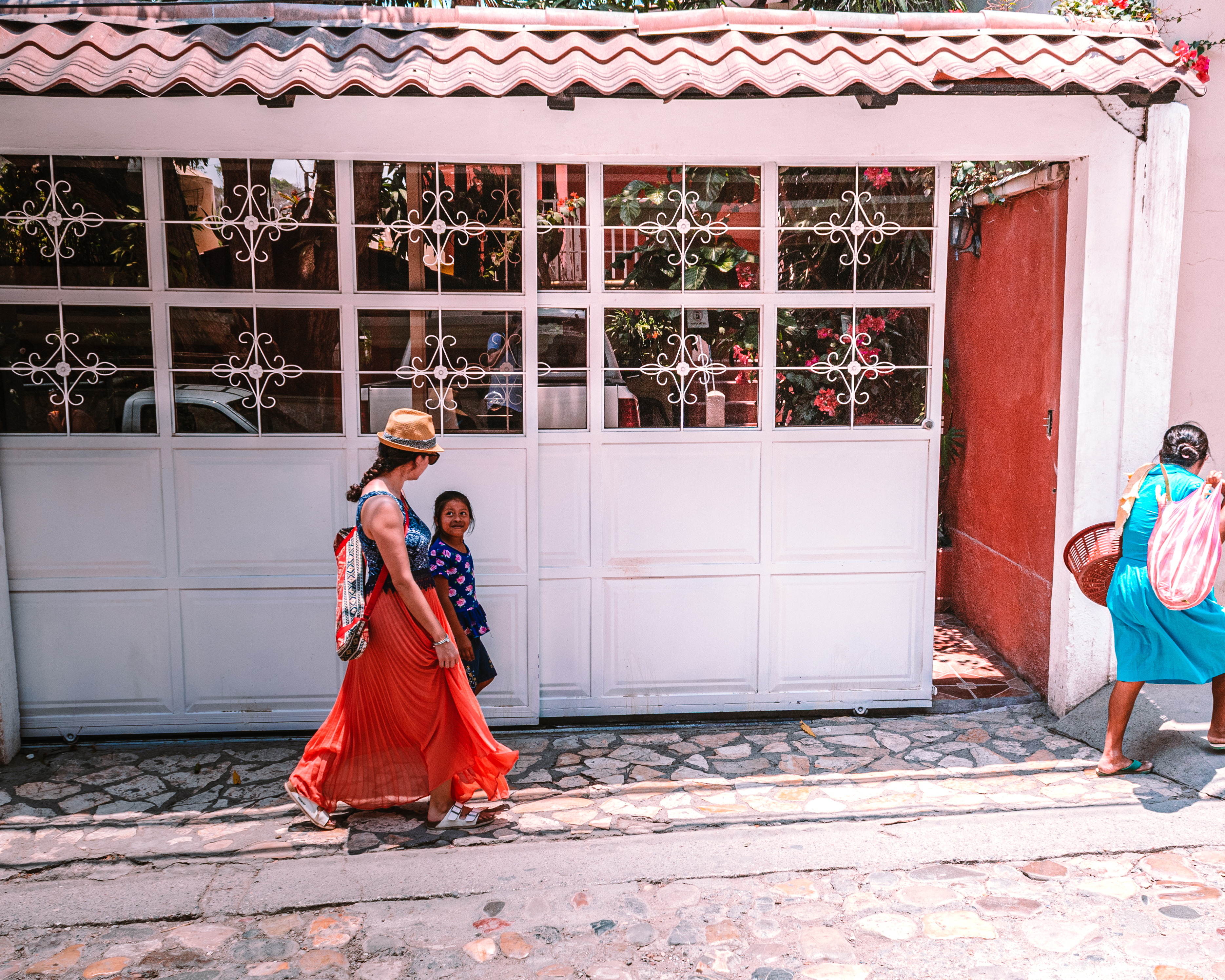
Sharing is caring!
Just like with every international trip, there are things that you end up realizing while you’re traveling. At that point, you kick yourself and wish you had known better to avoid the trouble and heartache that come with traveling to unknown places. That’s why we put together the list of the top 21 things to know before going to Honduras . This article will highlight the top travel advice for Honduras.
We hope these tips will help make your trip more enjoyable. Because truth be told, this is a beautiful country, and more people should be enjoying the amazing things to do in Honduras . So get ready because we’re sure you have a ton of questions, and we have some of the answers.
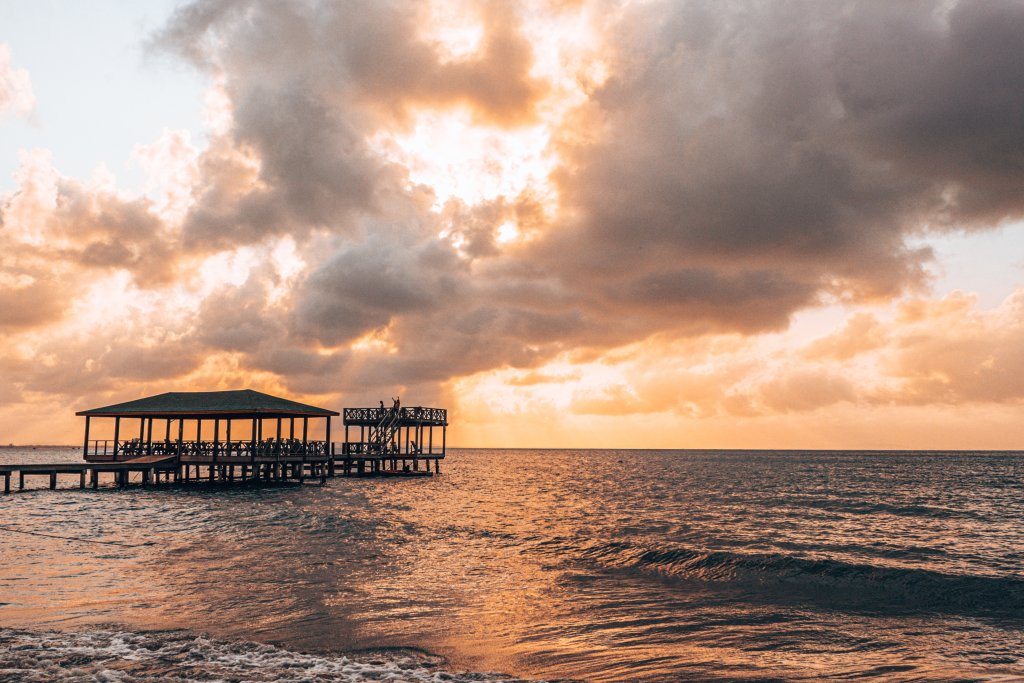
This article may contain affiliate/compensated links. For more information, please see our disclaimer here. We take all the efforts necessary to ensure the information included in this post is accurate, correct and current, sometimes, things just change! Travel information like opening hours, business operations and prices may change. If you find anything in this post that is incorrect or outdated, please let me know in the comments so I can update it for other readers. Cheers!
We love helping you plan amazing trips. If you need any of these services, consider booking them through our affiliate links. Without costing you anything extra, you will be helping support us so we can continue to write these blogs for you.
We thank you again for your continued support.
🏠 Find the perfect place to stay with Booking.com
✈️ Get the cheapest flights with Skyscanner
🚣 Book your favorite activities with Viator
💻 Make sure you have everything you need for your epic trip by checking our store on Amazon
Table of Contents
Health and safety tips in Honduras
1. is honduras safe country .
“Is Honduras a safe country to visit?” is the question you’ll hear the most when you tell people that’s your next destination. If you Google it, you’ll get tons of articles telling you it’s the murder capital of the world, that it’s not safe, and that it should be avoided. This is only one part of the truth.
It’s true that larger cities tend to be more dangerous, in certain areas, especially if you’re out looking for trouble (i.e. drugs). But for the most part, Honduras is really safe. In our three weeks there, we didn’t once feel scared, or like we were in danger. If you’re smart about your trip, and a careful traveler, you should be fine.
But to be extra safe, don’t wear expensive jewelry or electronics. Don’t flash your money around, and you won’t have any problems. The locals we met were all super kind and generous with us. Often, they gave us amazing tips to make our trip even better. Because nothing beats recommendations from locals!
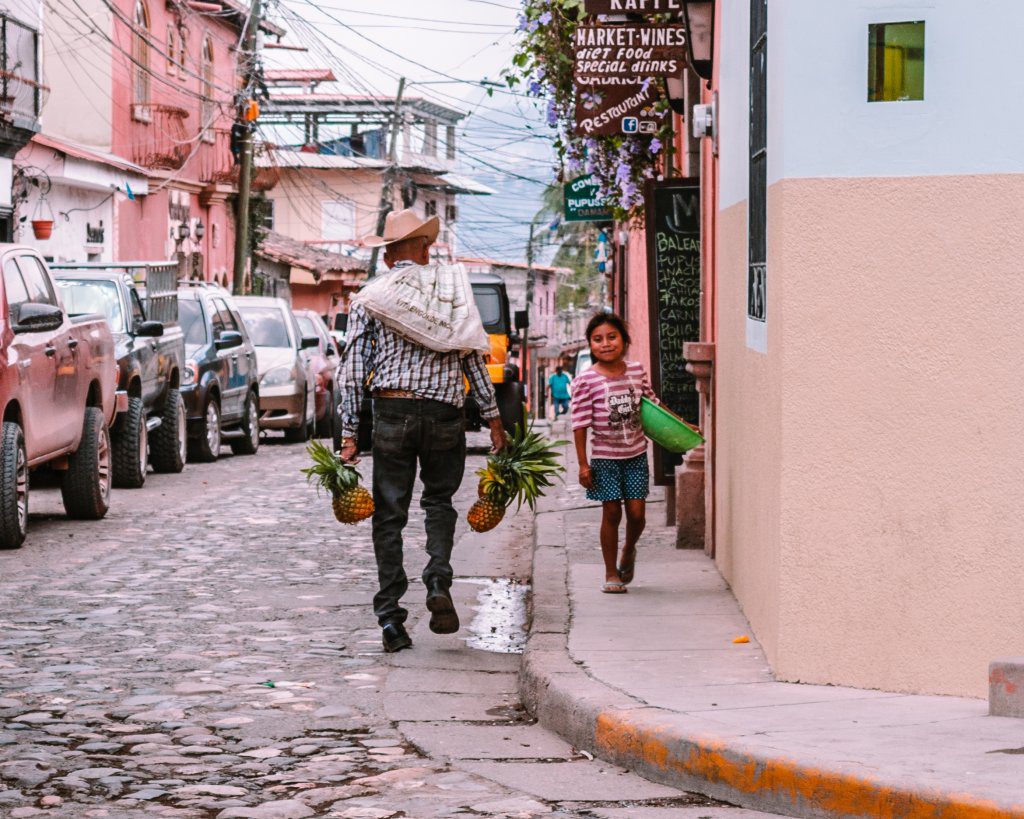
2. Can you drink the water in Honduras?
Unless you’re going around with a water purification system (like the Lifestraw Go or the Grayl GeoPress we have), don’t drink the water. The locals don’t do it either. If you want to avoid getting sick, avoid the lettuce too, unless you know it’s a good restaurant.
In restaurants, the water they serve is filtered and safe to drink. The ice is also safe for consumption so don’t worry about it.
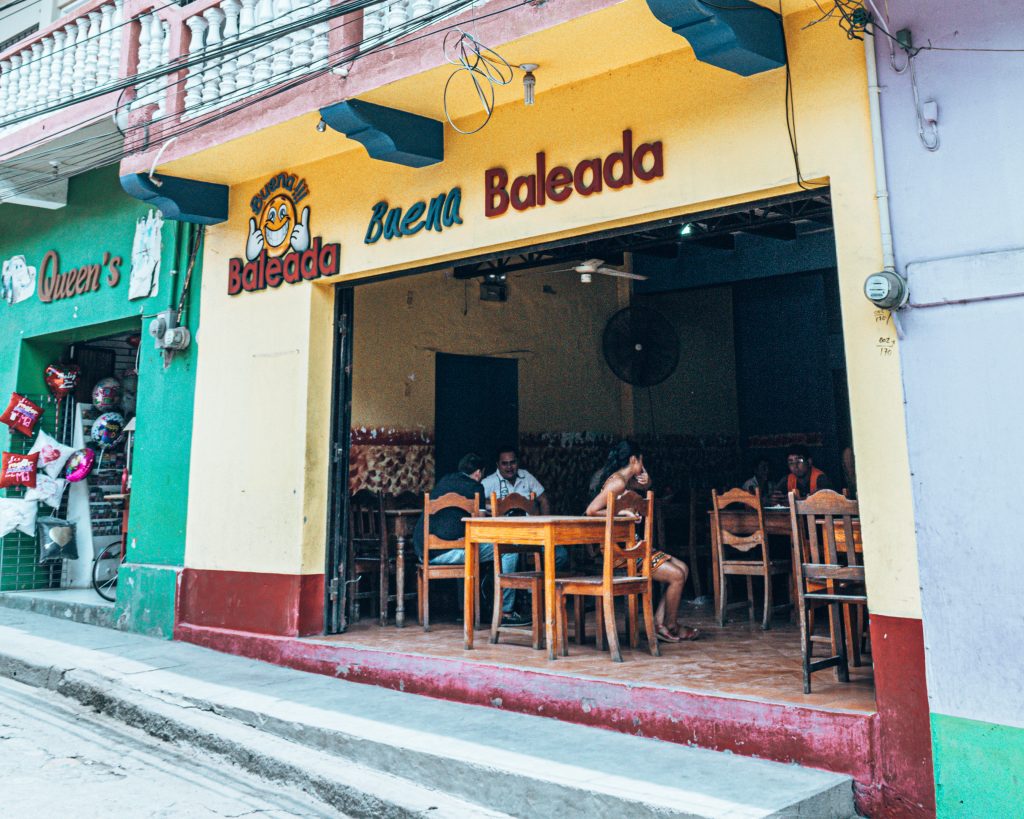
General travel advice for Honduras
3. is it easy to get around in honduras.
To get from one city to the next, we took the express buses . Some are closer to the chicken buses you see in Central America, that have been patched and repatched, the seats are tight and wonky, but the buses are efficient, cheap and don’t stop as often as the public buses.
Most bus companies will have direct routes to make it from one city to the next, although if you are going from one end of the country to the other side, you may have to switch in San Pedro Sula or Tegucigalpa. For example, when we went from Copan to Tela, we had to stop off in San Pedro.
Some of the better companies you should check out are these three.
- Hedman Alas
Although they have websites, their schedules aren’t always up-to-date. Your best bet is to call them to get their latest info. If not, their Facebook pages are usually better maintained than their website.
4. Are the routes developed in Honduras?
Although bus travel is fairly easy, the routes aren’t in such great shape. In fact, in many parts of the country, the routes have recently been developed or paved, so getting around to certain cities may be a challenge. Ask the locals how long and far it will be to get there and it’ll give you a good idea of what’s possible.
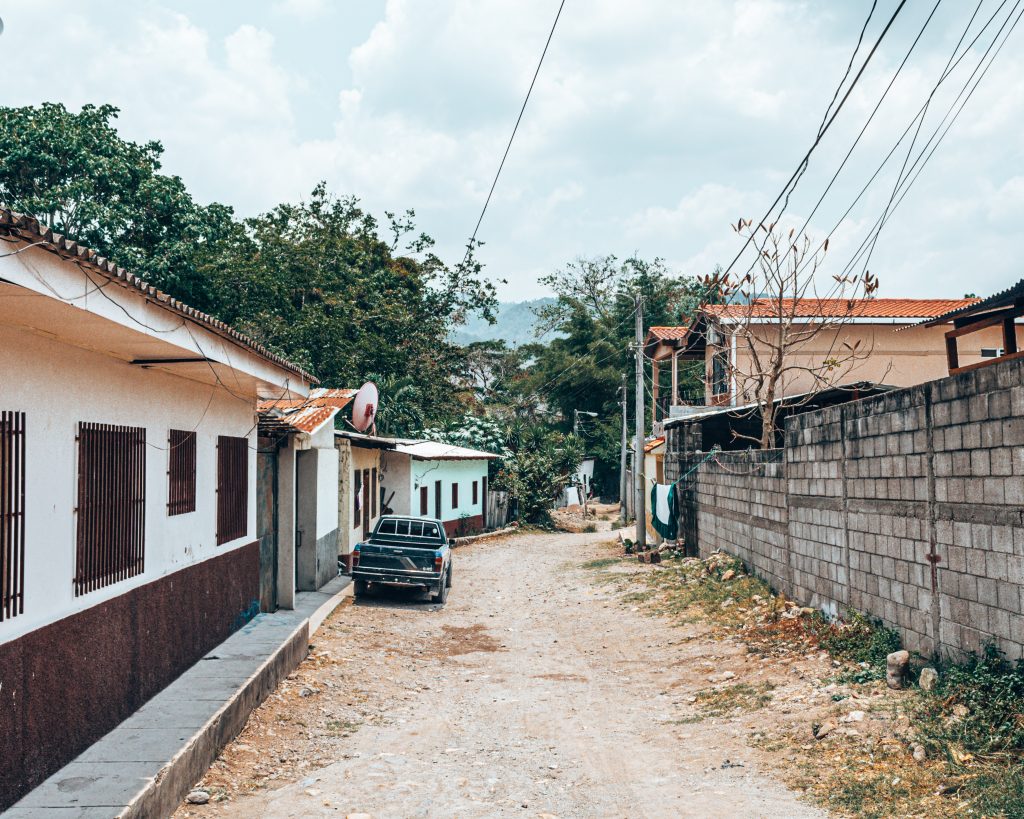
5. Do they only speak Spanish in Honduras?
We’ve always known that speaking many languages is the biggest wealth in the world, and if you speak Spanish, you’ll be golden in Honduras. However, English is widely spoken. Most tuk-tuk or taxi drivers know enough to get you where you need to go. Hotels will have English-speaking staff, especially at reception. And on the islands of Roatan and Utila , almost everyone speaks English.
However, if you speak Spanish, you’ll be able to connect a little more with the locals and get recommendations you wouldn’t get otherwise. So if you can, try to pick up a few words to make getting around easier.
Here are a few sentences to help you out:
- Hola = Hello
- Buenas días = Good morning
- Buenas noches = Good evening
- Cómo estás? = How are you?
- Que bueno! = How wonderful!
- Cuanto cuesta esto? = How much does this cost?
- Dónde está … ? = Where is …?
- La cuenta, por favor = The bill, please
- Quiero ir a … = I want to go to …
- Por favor = Please
- Muchas gracias = Thank you very much
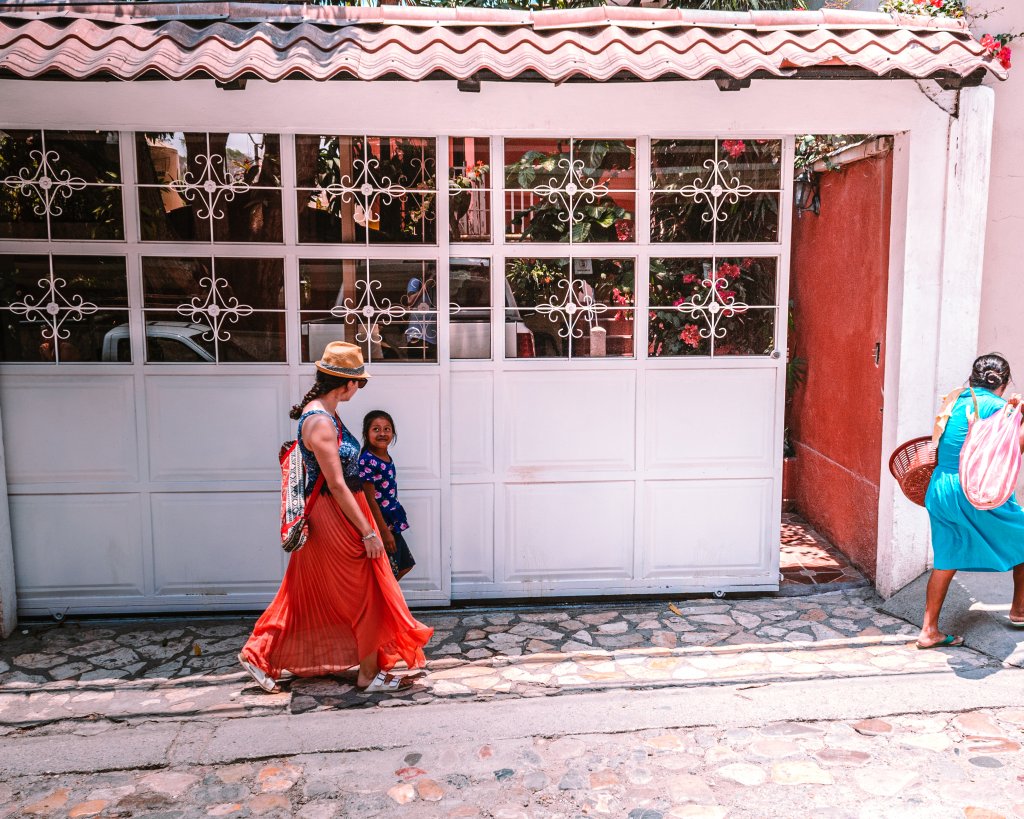
6. Is the local food good in Honduras?
You should not miss out on these delicious meals, especially if you’re vegetarian or vegan . Baleadas are cheap, delicious and nutritious. Thick corn tortillas, filled with refried beans, crema , cheese, and your choice of eggs, meat or plantains. They are a staple of every city we went to. They’re perfect for breakfast, lunch, and dinner. And chances are, you won’t just have one, but at least two!
Then there are pupusas, which are like baleadas, but more like a calzone, as in a closed pocket. They are usually filled with meat, however, so not as vegetarian-friendly.
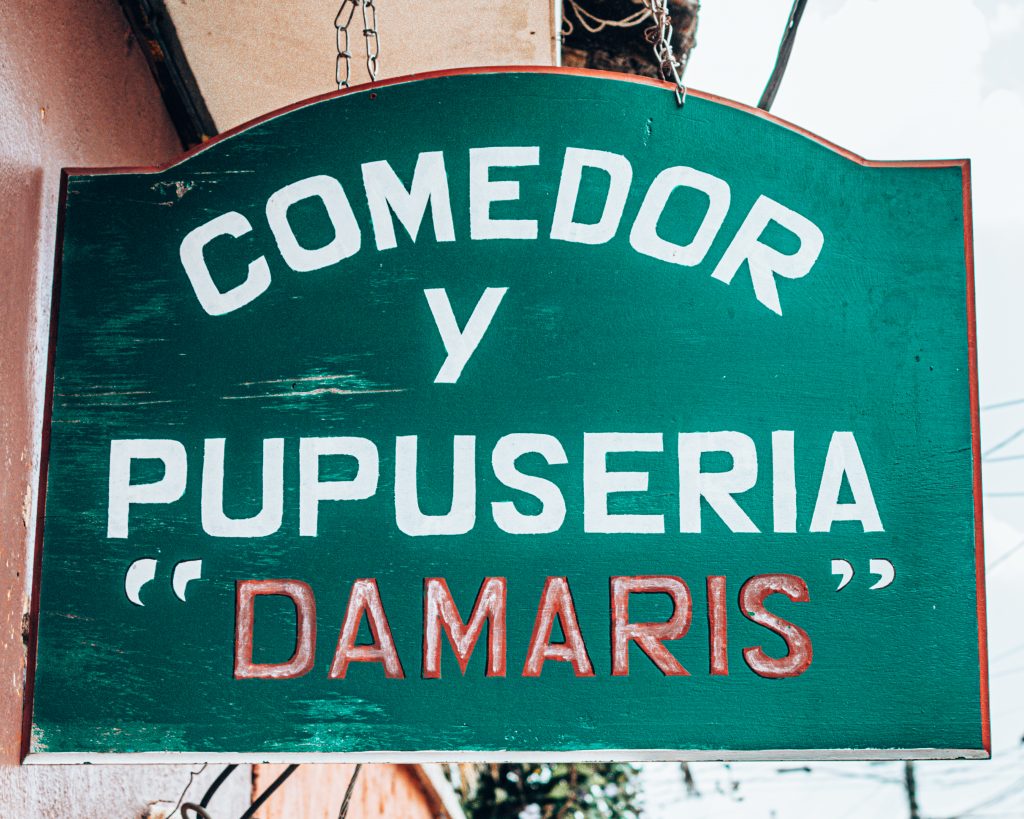
Things to know what to do in Honduras – your guide for the activities
7. is it cheap to scuba dive in honduras.
Utila is probably the cheapest place in the world to learn to scuba dive. Every other business in Utila is a dive shop (we’re exaggerating, but only slightly) and the island is just off the second largest reef in the world. So it’s no surprise that it’s one of the cheapest places to learn how to scuba dive.
You can get your Open water PADI certification for around $300 USD. Many dive shops even include your accommodations in the price of your certification. So if scuba diving is on your list, make sure you learn here. You might even get lucky and spot a whale shark like we did when we learned to dive in Thailand .
8. Is scuba diving better in Utila or Roatan?
The scuba diving is awesome in both Utila and Roatan. The reefs are protected by the eco-marine park , so they are quite healthy. They are also part of the second-largest coral reef in the world, so if you love to scuba dive, this is the place to do it.
And if you can’t scuba dive (and don’t want to learn how to) snorkeling these reefs is an excellent option too! Make sure you have your own mask and snorkel, as certain places charge upwards of $25 USD to rent the material for the day. If you go twice, you’ll have paid off the cost of buying the gear.
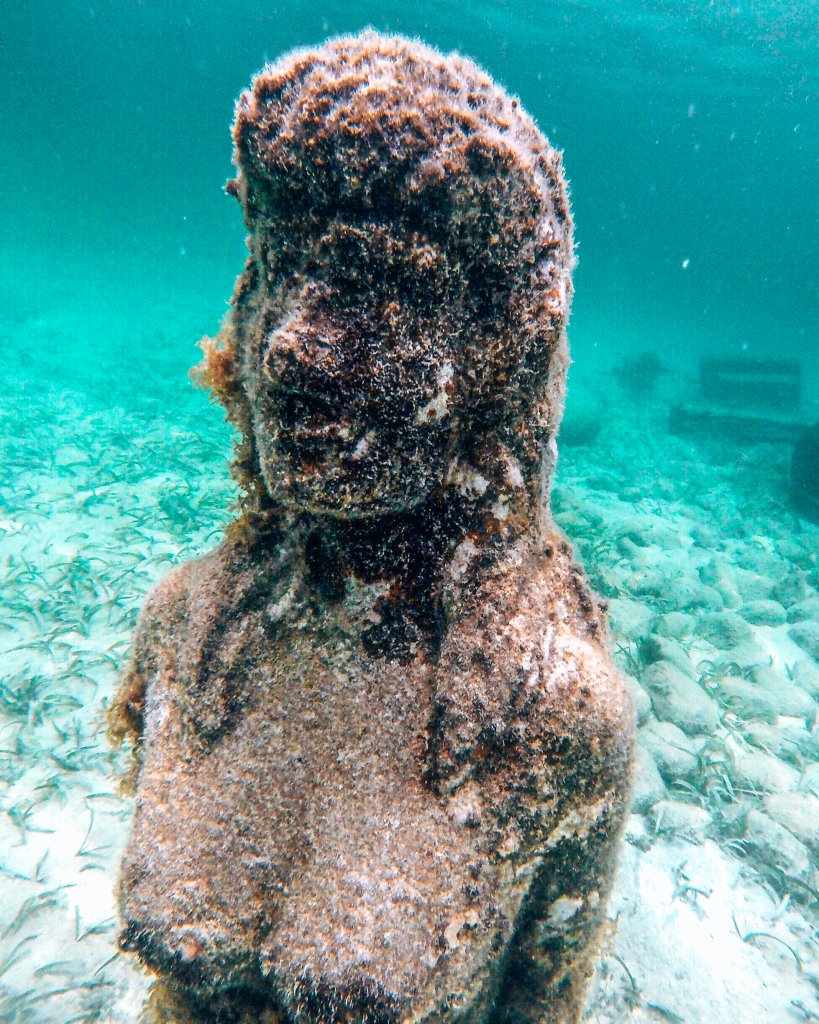
9. Are the Copan Ruins worth visiting?
The Copan Ruins are one of the most spectacular Mayan ruins and are still being excavated. However, because of the lack of tourism in Honduras, they are barely visited.
In fact, many asked us what the best time to go was to avoid the crowds, and our answer was simply ‘anytime!’ because, during our four hours there, we barely saw anyone. And don’t even get us started on the Sepulturas (the area where the nobility used to live), the other site included in the cost of the ticket. NO ONE ever goes there.
So if you’re looking to explore some Mayan ruins without the intense crowds, this is the place to do it. Just make sure you go early, simply because the sun gets hot very quickly!
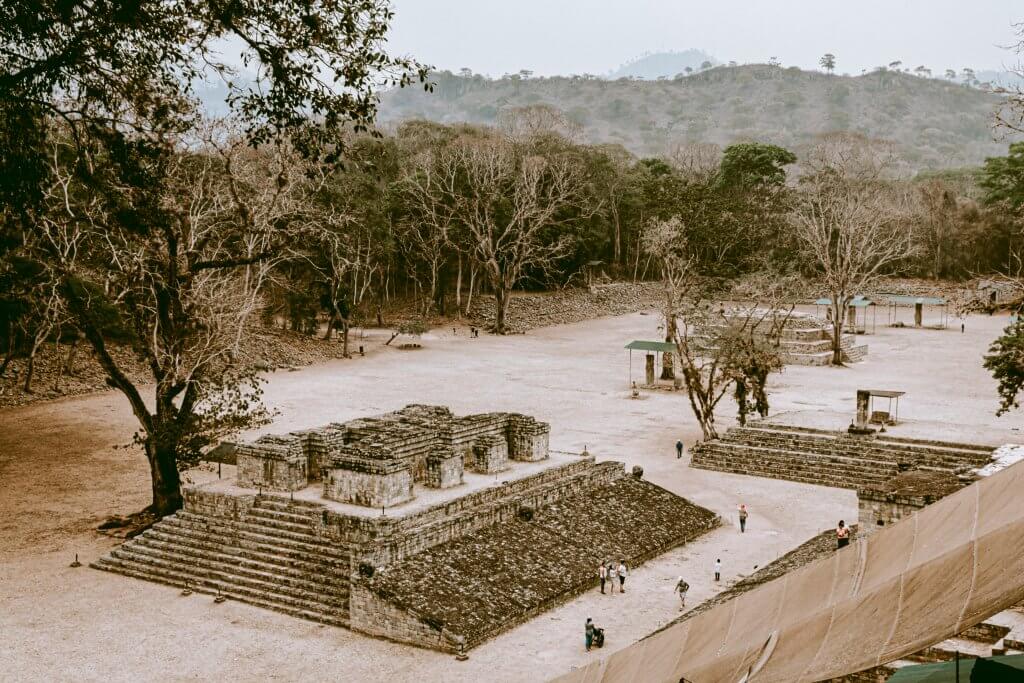
10. Are there any good national parksin Honduras?
From Pico Bonito to Punta Sal and everything in between. The national parks in Honduras are jewels to be uncovered. Hiking, water rafting, waterfall chasing, canoeing, whatever you want to do, you will find a national park that will satisfy your need for adventure. So if it’s an outdoor adventure you’re looking for, look no further than the national parks in Honduras.
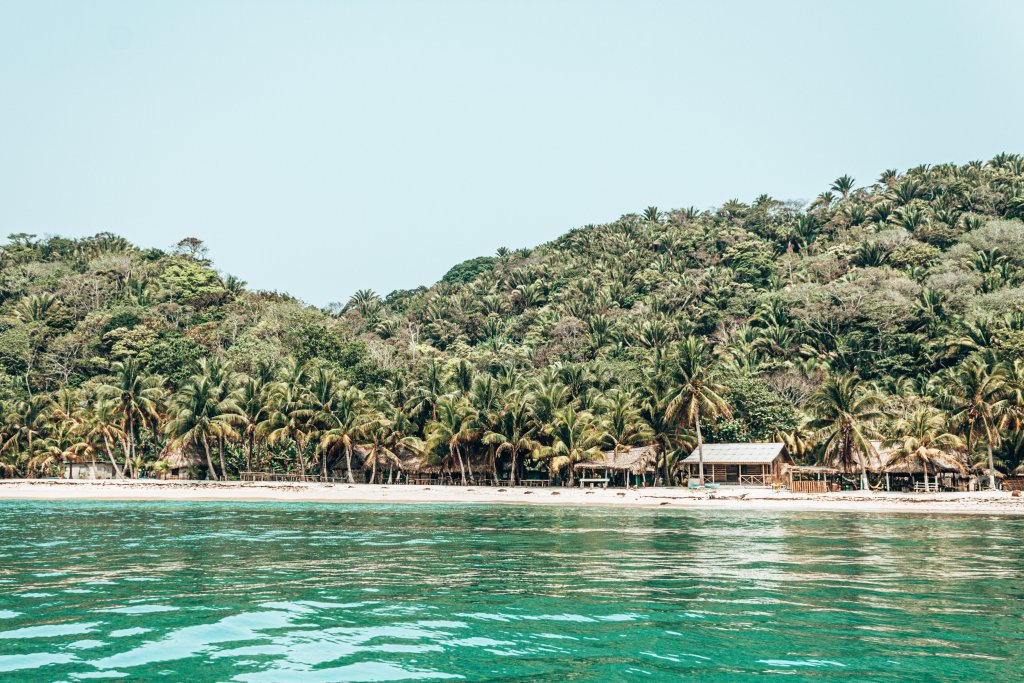
How to travel sustainably in Honduras – Eco-friendly travel advice for Honduras
11. do they recycle in most cities in honduras.
As in most developing countries, recycling is non-existent and trash is burnt. It’s no different in Honduras, except for certain islands (like Roatan), where they do try and recycle. In countries like Honduras, traveling in an eco-friendly way becomes even more important than ever.
Here are a few easy tips for things you can do to travel sustainably in Honduras:
- Avoid plastic bottles by bringing your own water purifying system . Even a reusable water bottle can do the trick as most hotels and restaurants will offer you water refill stations.
- Avoid buying packaged snacks, opting instead for local homemade goods and produce.
- Pick up trash when you see it, especially on beaches.
- If you finish some of your products in plastic bottles (like shampoo or sunscreen), bring them back home with you so you can recycle them there.
- Check out our articles to learn all about how we travel in a more eco-friendly way , or how to reduce the use of single-use plastic .
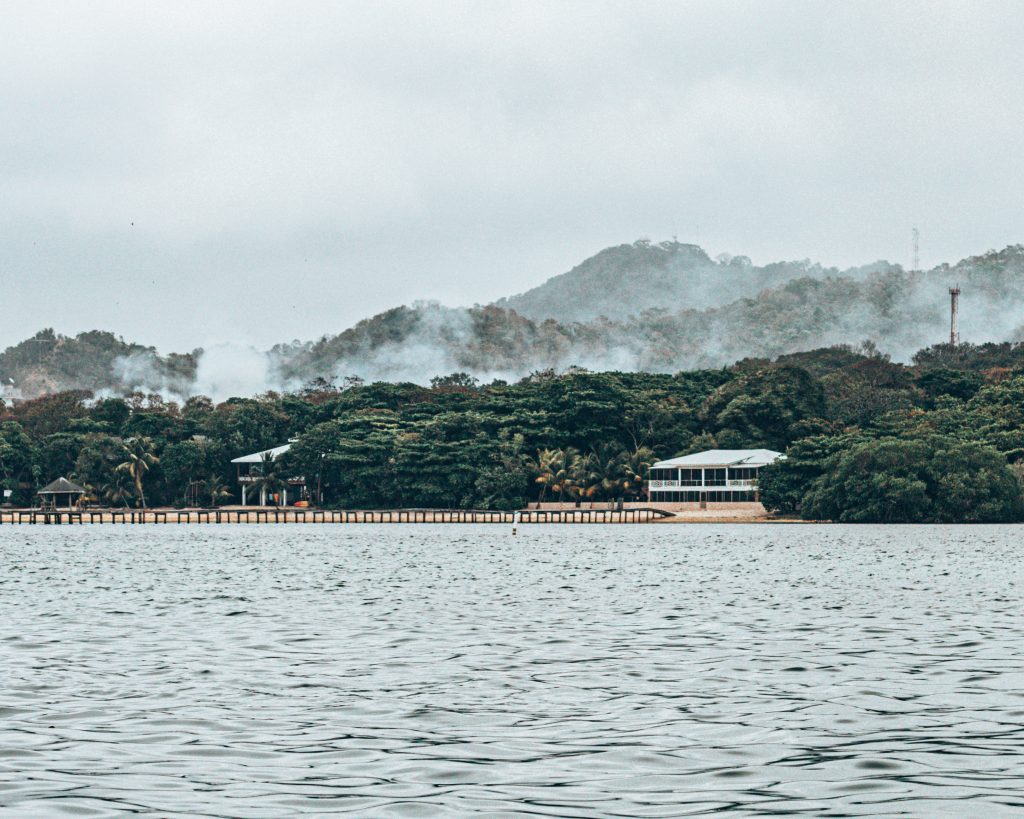
12. Is there a lot of poverty in Honduras? Can we help?
Around 60% of the Honduran population lives below the poverty line. We were told that on average, local Hondurans make $360 USD per month. Although more often than not, they don’t get paid properly and that amount is closer to $100. Imagine trying to feed a family on that salary. It’s heart-breaking!
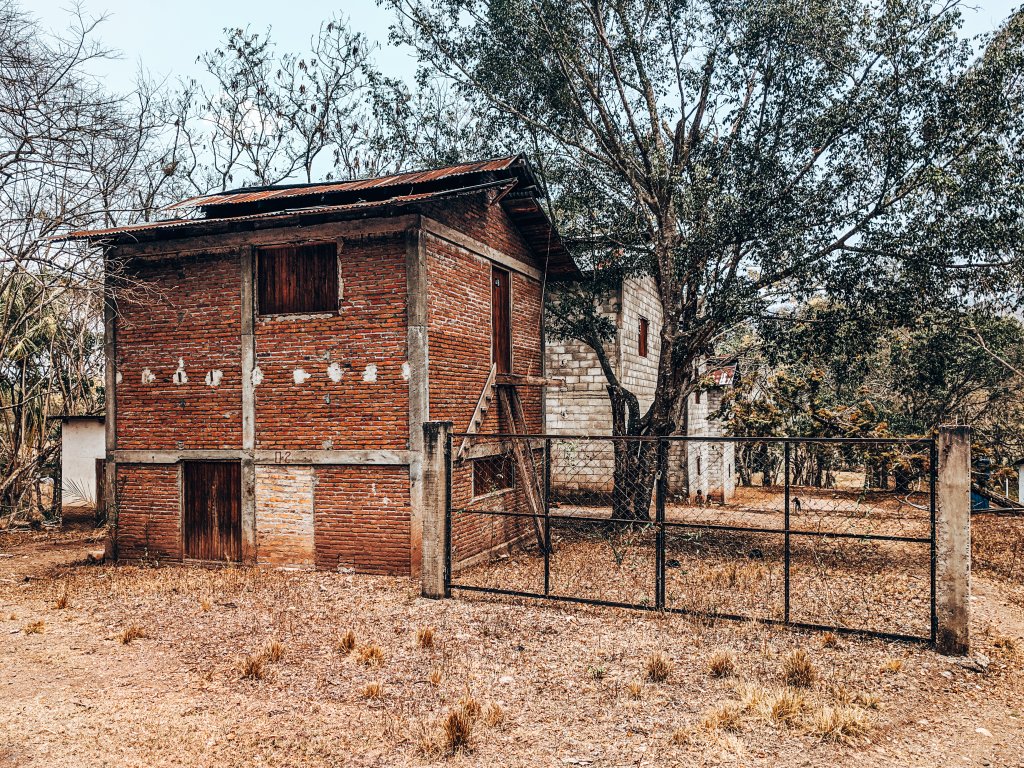
An easy way to help the local economy is to support local businesses, buy local products and produce. Instead of staying in large chains and resorts, opt for mom-and-pop-run hotels, B&B ‘s or guesthouses .
Instead of eating at a food chain, go to a local restaurant. Buy your produce from the lady selling it on the street corner or sustainable local companies.
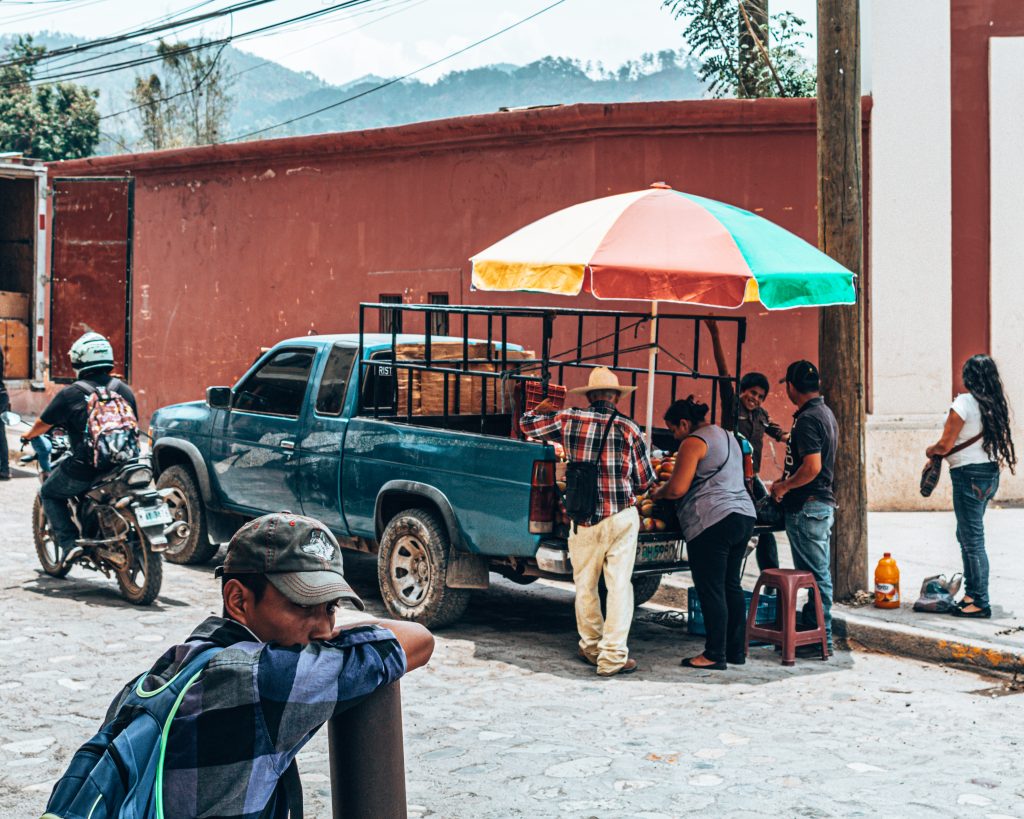
Every little bit helps them more than you can imagine. And when you haggle for the price of something that’s already a good deal, be fair! It may be an extra dollar or two for you, but for them, it’s the difference between eating or not.
However, if you’re looking to volunteer to help out, make sure you don’t do it with orphans or children. Research has shown time and time again that this is a bad solution. Instead, contact the organizations you look into and see if you can help in another way. For example, in Utila , there are a ton of nature and wildlife organizations that could use your help!
13. How can I support small local businesses in Honduras?
From the Roatan Chocolate factory to the Tea and Chocolate Place and the ViaVia hotel and restaurant in Copan , there are a ton of businesses out there trying to change the way things are done in Honduras . They’re more eco-friendly and sustainably run. They’re creating jobs for locals who can then start building a life for themselves and their families. They’re creating a business that will give now and for generations to come.
So when you find businesses like this, support them. Buy their products and tell your friends and family to help if they can. Write a review about them on Tripadvisor to get others to visit as well. It encourages these small businesses to make more important changes and to continue making this world a better place!

14. Can I swim with dolphins in Honduras? Or see other wild animals up close?
Short answer, yes. You can swim with dolphins and see some impressive wild animals. Should you? The answer is NO !
When you’re in Utila , there are a ton of conservation organizations that you can volunteer with, from whale sharks to iguanas. Unfortunately, the other animal tourism you will find, mainly in Roatan, is to be fully avoided. They have kidnapped dolphins and keep them captive so people can swim with them.
They have caged jaguars and pigs so people can take pictures with them. They have monkeys in chains for the perfect selfie… with a tortured and captive animal.
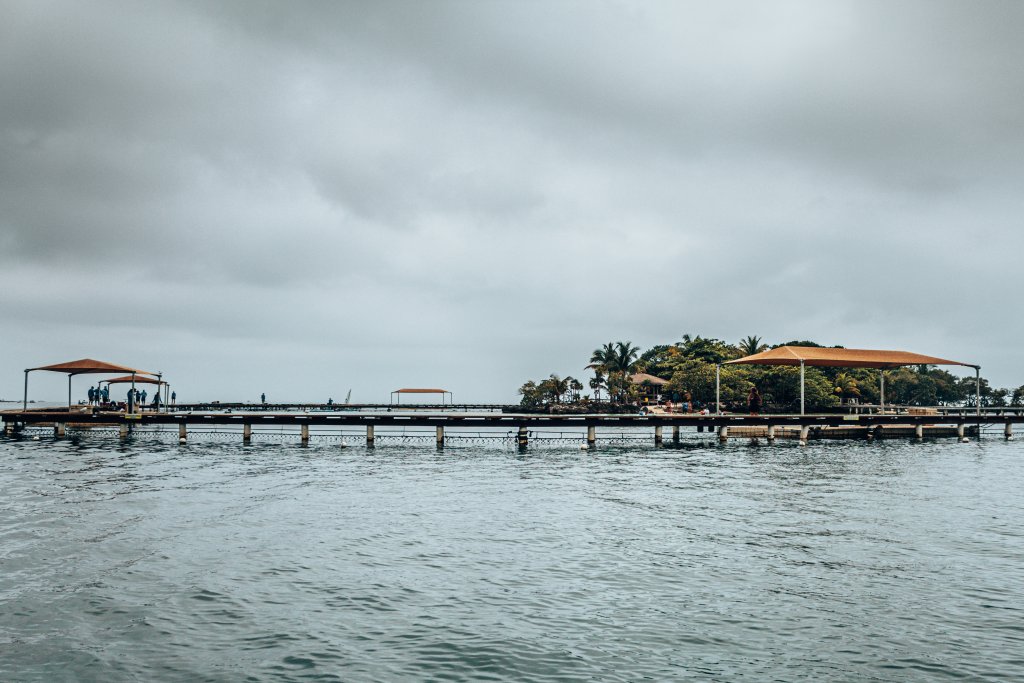
Please avoid this type of animal tourism in Honduras. By not giving these companies your money, you will make them reconsider their ways.
15. Do they have power outages in Honduras?
Let’s not forget that Honduras is a developing country, so they are still trying to figure certain things out. One of those things is how to get power to as many people as possible. In certain places, we had no trouble whatsoever with power outages. However, in a few places, mainly Roatan and Rio Cangrejal, the power went out almost daily.
This shouldn’t discourage you as you won’t be indoors during those times anyway. However, it’s important that you not leave things plugged in while you’re away from your room, or overnight, otherwise a power surge could destroy your valuable electronics.
Also, make sure you check out the power authorities’ Facebook page (like the one in Roatan ) as they’re very good at keeping everyone updated on scheduled outages.
16. Do they also have water shortages in Honduras?
With more and more people on this earth, it’s an understatement to say that certain people in developing countries don’t have access to water. The truth is that there are quite a few families in Honduras that live without water or power. Because this developing country depends heavily on rainwater, the dry season is somewhat brutal.
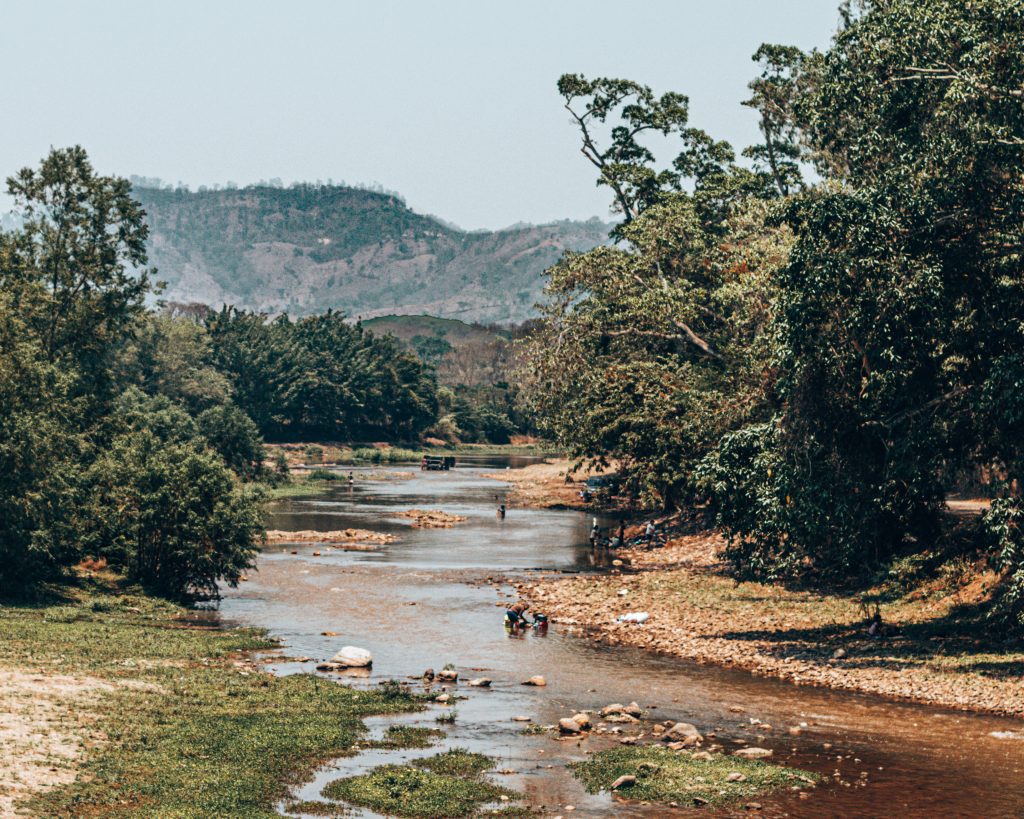
While we were in Copan , we did go through a few hours where there was no water available. It was nothing that was jarring, However, it’s so important that we help out as much as we can. Here are some tips on how you can help the Honduran community by using less water:
- Take shorter showers. Easy enough!
- Take it a step further and turn the water off while you are lathering or shampooing.
- Bring a reusable water bottle as most hotels and restaurants provide water refill stations
- Eat more vegetarian or vegan meals. Meat uses up so much water and resources before it becomes your meal.
- Skip on changing towels and sheets every day. That way, they don’t have to wash them so often.
We have a ton of articles available on how to be more sustainable, like: – How to be a more eco-friendly traveler – The most sustainable travel products for your next trips – How to go plastic-free (or reduce the amount of plastic in your life) – How to be more sustinable in your everyday life
Things to know about money in Honduras
17. what currency does honduras use.
In most of the country, especially mainland Honduras, Lempiras are used by all businesses. However, they do often accept US dollars.
The case is quite different in Roatan. On the island, they mainly use USD. They still use Lempiras , but it seemed like most restaurants and stores had their prices in USD.
18. Do they accept credit cards in Honduras?
You know the rule: ‘Cash is king!’. Most businesses, especially smaller shops and restaurants only accept cash. Certain hotels will accept credit cards, but they are few and far between.
Ideally, make sure you have cash with you, either in lempiras or USD, as this is how the great majority of businesses operate.
If they do accept a credit card, make sure you find out if they charge an additional fee, as some sneaky restaurants or hotels do. This is an extra fee on top of the conversion rate the credit card company charges. Just know that charging a fee to use a credit card is illegal. Refuse to pay with your card if ever the business does charge.
19. Should I leave a tip in Honduras?
The first thing you should do is to check your bill. Usually, they’ll note ‘ Servicio ’ if they do charge a service charge. In which case, you don’t need to leave a tip, unless your waiter was exceptional. If they were, you should leave an extra tip, but make sure you hand it directly to them. If not, whatever extra tip you leave will be split with the rest of the staff, just like the Servicio charge.
If there is no Servicio being charged, and you were pleased with your service, feel free to leave a tip. Anything above 10% for your waiter is a good amount. Remember that most of the population in Honduras live below the poverty line, so anything you can offer as a tip will go a long way for the staff.
20. Should I have small denominations of money?
If you’ve traveled to countries that have large denominations, you know how hard it is to come by the small change you actually need to conduct daily transactions. Honduras is no different. Most ATMs will give you money in 500 lempiras (roughly $20 USD). The unfortunate thing is that 500 lempira is a lot of money for most small purchases you make.
Ideally, try and break the large bills in larger restaurants, hotels, and shops. Avoid using big bills (100 or 500 Lempiras) at small shops if you can. You might be asking the shop owner to have more than his daily/weekly income on hand to offer a change. This is especially true for small fruit and veggie stands, or little convenience store.
Also, it’ll help you avoid getting scammed as most taxi drivers (either on water or land) will pretend not to have smaller denominations to avoid giving you any change back.
21. Can I exchange lempiras outside of Honduras?
If there’s one thing we never seem to learn is that you should absolutely exchange the local currency to $USD BEFORE you leave a country! This is no exception for Honduras.
We forgot to do it when we left the country and barely found an exchange bureau that accepted to buy our lempiras. And when we found a place that did accept them, they bought it at such a ridiculous price!
Travel advice in Honduras to make your trip more enjoyable
There you have it! These are the travel tips for Honduras we wished we knew before we got there. We didn’t have any safety issues or other types of problems while we were there. As we mentioned, we always felt safe and we really enjoyed our time in Honduras. We highly recommend you visit as well.
We hope that this helps answer a few of the questions you have about traveling safely to Honduras. If you have any other questions, let us know in the comments and it’ll be our pleasure to answer them!
We put a lot of time and effort into the content we create. Please like, comment and share, every action on your part helps us out tremendously and is very much appreciated.
You can also help us by pinning it for others to find.
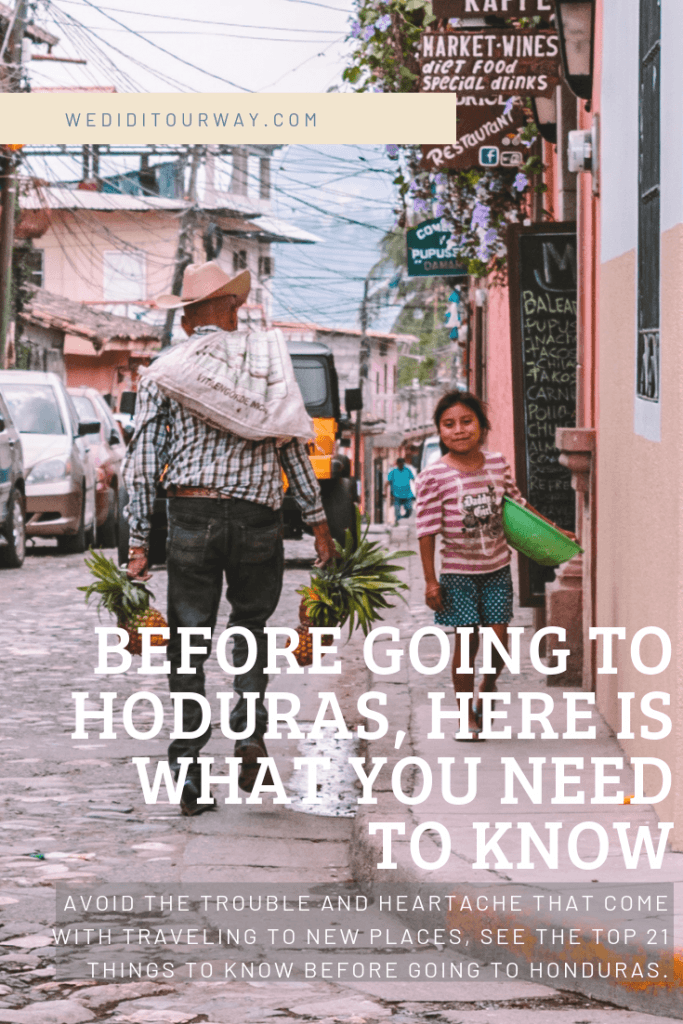
You Might Also Like:
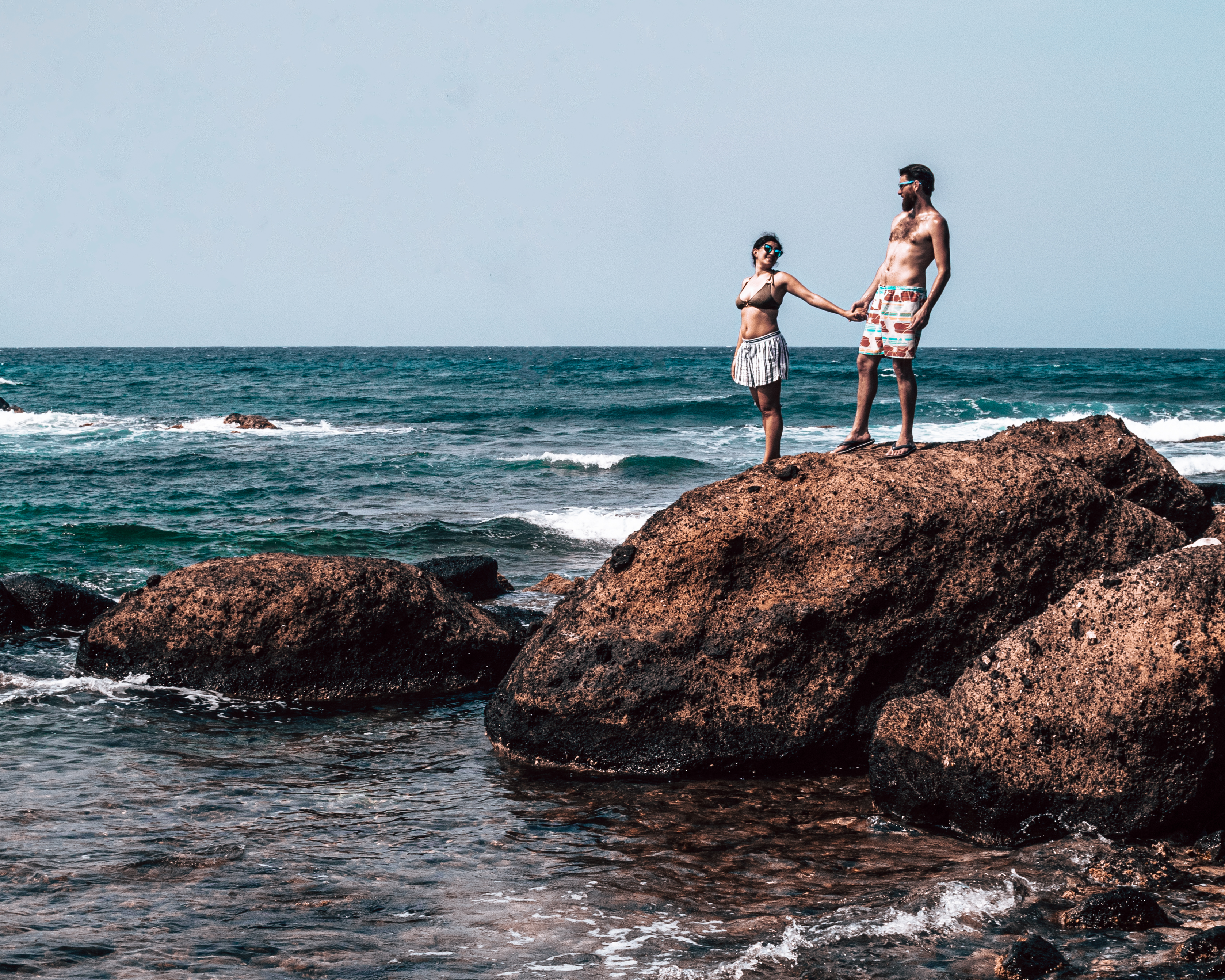
Your ultimate 2-week Honduras itinerary – The best things to do on vacation in Honduras
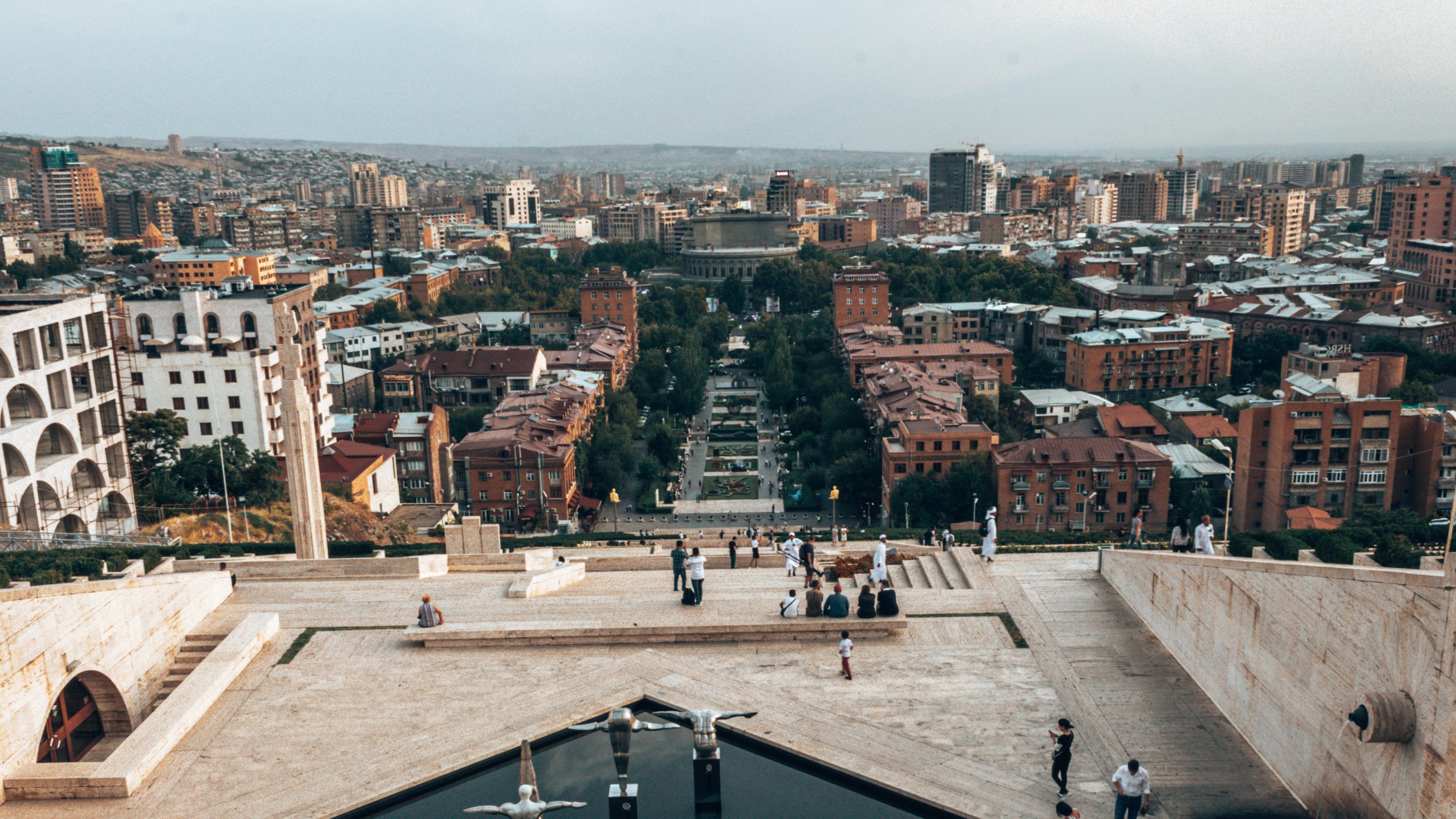
20 reasons to visit Armenia
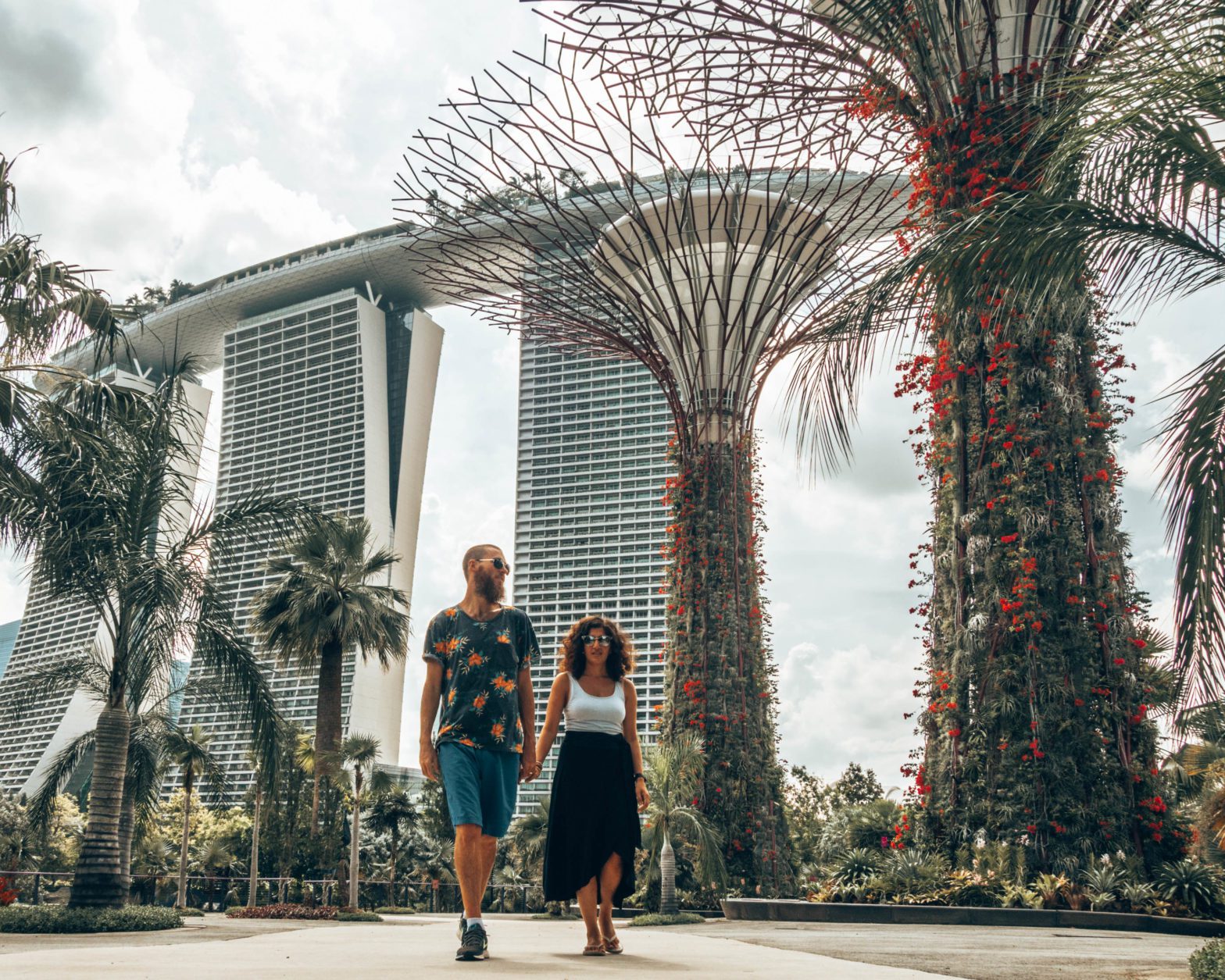
Your 3-day Singapore itinerary for budget travelers
Submit a comment cancel reply.
You must be logged in to post a comment.
We’re Carine and Derek, two Canadians in love with each other, the environment and this world. We left our old routines behind to discover all the wonders our planet has to offer. We want to inspire everyone to chase their dreams and leave a positive impact on Earth.
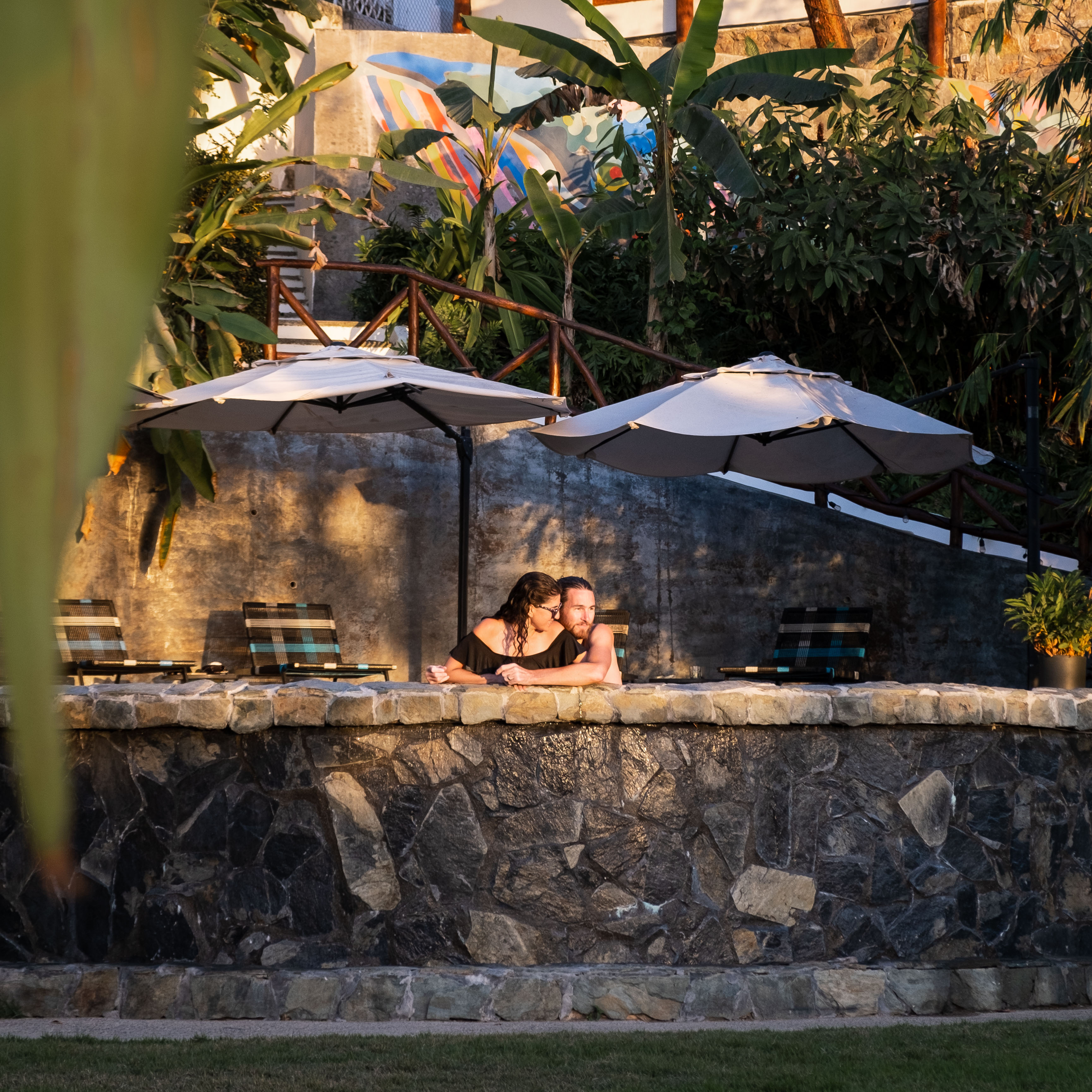
Let’s keep in touch!
Sign up for our newsletter to get our free e-book as well as our latest updates, travel recommendations, eco-friendly advice, inspiration, good vibes and so much more.
Thanks, see you in your inbox!

How to build a micro-influencer media kit – Step-by-step instructions for new content creators
Big or small, every influencer or content creator needs a media kit. They’re a part of the essential tools you need if you want to collaborate with brands. All too often, they're poorly made and lack the important information brands need to know that they HAVE TO work...
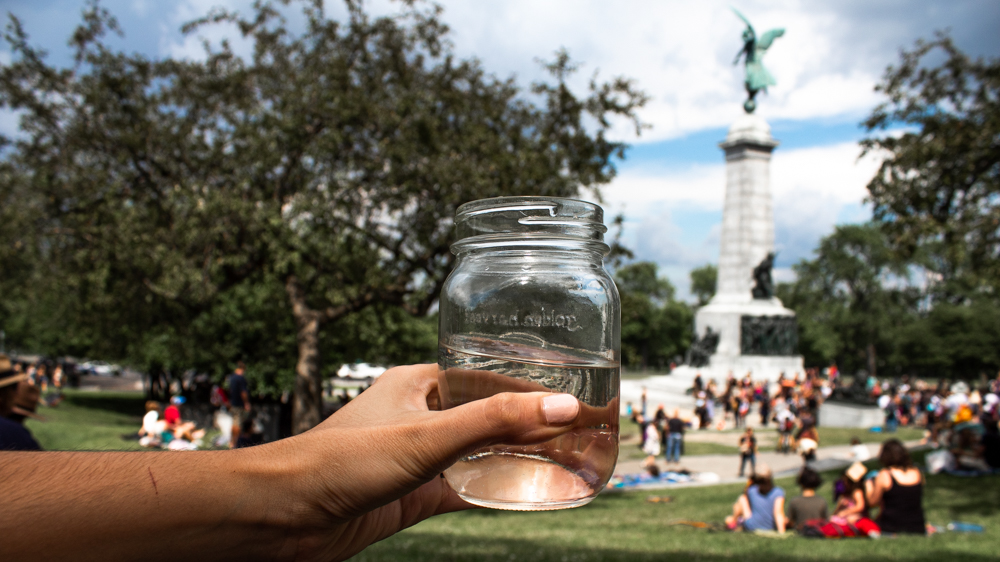
31 easy ways to go plastic-free
For July, we joined hundreds of million people around the world to go plastic-free. Our goal was to avoid all plastic for #plasticfreejuly. During the whole month, we shared our tips with our Instagram community to help them ditch plastic too. These are our 31 easy...
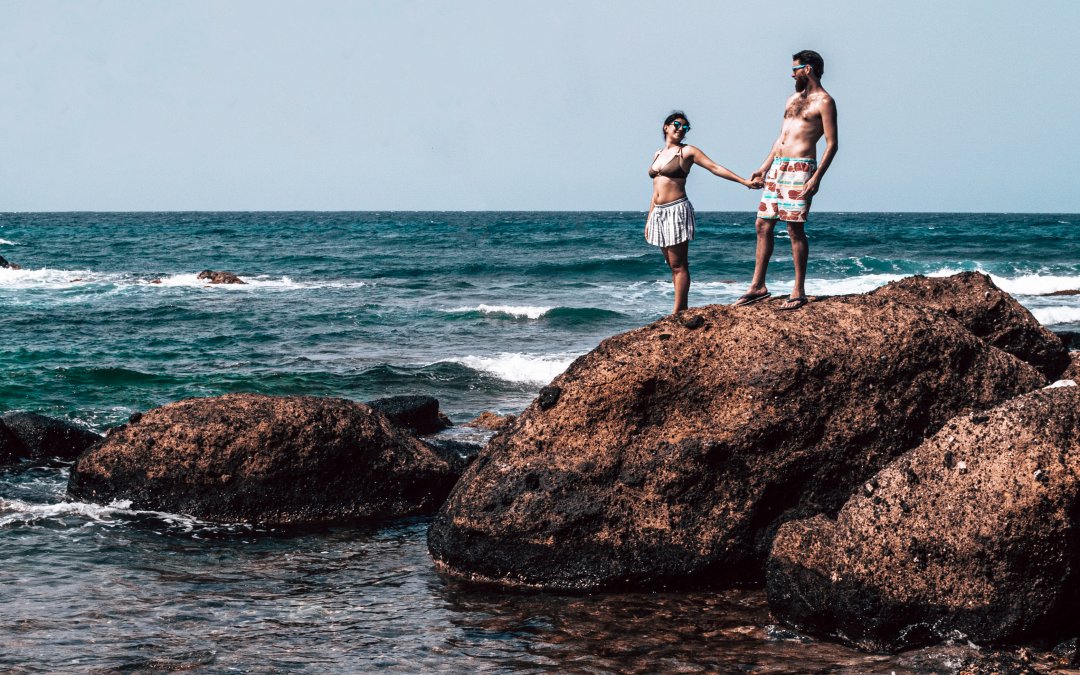
Welcome to the most underrated and under-visited country in Central America, Honduras. If you’re here, you’re probably thinking about visiting this beautiful country, and we’re here to tell you that you’re in for a real treat! Most people avoid Honduras, thinking it’s...
Follow us on Social Media
- Skip to main content
- Skip to "About this site"
Language selection
Search travel.gc.ca.
Help us to improve our website. Take our survey !
COVID-19: travel health notice for all travellers
Honduras travel advice
Latest updates: Editorial change
Last updated: June 7, 2024 11:35 ET
On this page
Safety and security, entry and exit requirements, laws and culture, natural disasters and climate, honduras - exercise a high degree of caution.
Exercise a high degree of caution in Honduras due to crime.
Regional advisory - Avoid non-essential travel
- within 20 km of the border with Guatemala, excluding:
- Copán Ruinas
- El Florido border crossing
- CA-11 Highway to El Florido border crossing
- within 20 km of the border with El Salvador, excluding :
- CA-1 Highway to the El Amatillo border crossing
- CA-4 Highway to the El Poy border crossing
- RN-112 Highway between Palmerola airport and the municipality of El Amatillo
- in the departments of:
- Choluteca: the city of Choluteca
- Colón, excluding the city of Trujillo
- Cortés:
- the eastern neighbourhoods of San Pedro Sula:
- Chamalecón
- Cofradía
- Rivera Hernandez
- the city of Choloma
- the neighbourhood of El Planeta in the city of La Lima
- Francisco Morazán: the city of Comayagüela, excluding the Toncontin airport and the major roads leading there
- Gracias a Dios
Back to top
Borders areas
Border areas often see higher criminal activity and violence.
If you’re travelling by land to neighbouring countries:
- use official border crossings only
- consider crossing borders in the morning as they sometimes close unexpectedly early
- avoid anyone suggesting that they can obtain your documents quicker or cheaper on your behalf
- keep the receipt of payment of the border fee until you leave the country
Criminal groups are especially active on the coast between the Guatemalan border and Puerto Cortés. Criminal activities include:
- drug trafficking
- human trafficking
There has also been an increased number of migrants leaving Honduras through Guatemala, particularly at the border crossing in Agua Caliente. This movement results in periodic closures.
The El Florido border crossing in the town of Copán is also closed daily from 9 pm to 6 am.
There has also been an increased number of migrants leaving Nicaragua through Honduras, particularly at the border crossings in Las Manos and Trojes.
Expect possible delays at borders.
Department of Cortés
Street gangs and criminal groups are very active in the Cortés municipalities of:
- San Pedro Sula
The number of murder and violent crime is higher in these areas.
Departments of Colón, Gracias a Dios, Olancho and Yoro
Drugs smuggling and violence pose security threats in the northern departments of:
- Colón
Roadblocks and violent incidents related to land disputes in Colón, mostly in the Aguán valley and in the north coast area near Trujillo, have occurred.
The department of Gracias a Dios is a remote area where law enforcement and access to government services are very limited. Levels of criminal activity are high.
Violent crime is high in the coastal city of La Ceiba. This includes murders and armed robberies.
Although tourists are not the primary target of criminals, you could be in the wrong place at the wrong time.
If you consider travelling to La Ceiba:
- use reputable tour operators only
- choose accommodation with good security measures
- avoid outings outside the resort
Bay Islands
The Bay Islands are generally safe. Violent crime is lower, but petty crime sometimes occurs.
Some foreigners have been assaulted on beaches, mainly at night. Home burglaries have also occurred, sometimes in rental accommodations.
While in the Bay Islands:
- avoid Coxen hole, Los Fuertes and Suampo neighbourhoods after dark
- avoid isolated beaches and areas
- stay in well-lit areas
- make sure you lock windows and doors at night and when you are away
If you’re docking in Roatán and getting off the cruise ship, you should consider booking a tour or a sightseeing trip through a reputable company to avoid becoming the victim of a scam.
Violent crime
Although the overall situation has slightly improved since 2022, violent crime remains a concern throughout Honduras. The country retains one of the highest homicide rates in the world.
Drug trafficking, transnational organized crime and street gang activity is prevalent in certain neighbourhoods. Violent incidents are frequent, including:
- armed robberies
- kidnappings
- home invasions
- sexual assaults
These crimes are carried out by criminals acting individually or as a group.
Many Hondurans are armed. Guns and other weapons, such as machetes and knives, are frequently used. Incidents of armed robbery occur mainly on urban streets during the day and on intercity buses at night.
The Government of Honduras lacks sufficient resources to properly respond to, investigate and prosecute cases. Infiltration within the security forces by local gangs weaken law enforcement even further. Criminals linked to organized crime often operate with a high degree of impunity throughout Honduras.
- Remain aware of your surroundings at all times
- Maintain your cellphone charged
- Avoid travelling after dark
- Avoid walking alone
- Keep a low profile
- Avoid carrying large amounts of cash
- don’t resist if you’re threatened, hand over your cash and valuables immediately
Petty crime
Petty crime, such as pickpocketing and bag snatching, occurs. Thefts commonly occur in:
- popular tourist areas
- bus terminals and airports
- shopping malls and hotel lobbies
- restaurants, including patios
To avoid becoming a victim:
- be suspicious of recent acquaintances or strangers approaching you
- avoid accepting rides or invitations from strangers
- avoid hitchhiking
- ensure that your belongings, including your passport and other travel documents, are secured at all times
- avoid carrying large amounts of cash
- avoid showing signs of affluence
State of emergency
Local authorities periodically declare a state of emergency in various municipalities to fight against gang-related crime and extortion.
While a state of emergency is in effect, security forces have increased rights to conduct searches, seizures and detain persons of interest.
If you are travelling in an area where a state of emergency is in effect:
- be aware that you may be subject to searches by security forces
- always cooperate with military and police officers
- carry valid ID at all times and be prepared for various checkpoints
- allow extra time to reach your destination
- follow the instructions of local authorities
- monitor local news to stay informed on the current situation
Express kidnappings
Express kidnappings can occur in urban areas.
These kidnappings are often committed by organised gangs or taxi drivers. The kidnappers usually take their victims to an ATM and force them to make a cash withdrawal.
- Avoid hailing taxis on the street
- If you’re threatened, don’t resist
Demonstrations and civil unrest
Demonstrations take place regularly. In Tegucigalpa, demonstrations may occur:
- at the National Congress and Central Park
- at the National Autonomous University of Honduras
- at the United States Embassy
- at the Centro Civico
- at the Presidential Palace
- at the Hospital Escuela
- on Suyapa and Centroamerica boulevards
- on La Paz and Los Próceres avenues
- along the Peripheral Ring Road
In San Pedro Sula, protesters usually gather at the Monumento a la Madre.
Even peaceful demonstrations can turn violent at any time. They can lead to disruptions to traffic and public transportation.
- Avoid areas where demonstrations and large gatherings are taking place
- Follow the instructions of local authorities
- Monitor local media for information on ongoing demonstrations
Honduran law prohibits political activities by foreigners. Participating in demonstrations or activities may result in you being detained or deported.
Mass gatherings (large-scale events)
Credit card and ATM fraud occurs.
Be cautious when using debit or credit cards:
- cover the keypad with one hand when entering your PIN
- pay careful attention when your cards are being handled by others
- avoid using card readers with an irregular or unusual feature
- use ATMs located in well-lit public areas or inside a bank or business
- check for any unauthorized transactions on your account statements
Overseas fraud
Spiked food and drinks
Snacks, beverages, gum and cigarettes may contain drugs that could put you at risk of sexual assault and robbery.
- Be wary of accepting these items from new acquaintances
- Never leave food or drinks unattended or in the care of strangers
Women’s safety
Women travelling alone may be subject to some forms of harassment and verbal abuse.
Advice for women travellers
Water activities
Coastal waters can be dangerous. Riptides are common.
Rescue services may not be consistent with international standards. Not all beaches have lifeguards or warning flags to warn of unsafe conditions.
- Only undertake scuba diving and other water activities with a well-established company
- Don’t swim alone alone or outside marked areas
- Consult residents and tour operators for information on possible hazards and safe swimming areas
- Monitor weather warnings
Water safety abroad
Adventure tourism
Outdoor activities, such as hiking, diving, mountain biking and other adventure activities can be dangerous if unprepared. Trails are not always marked, and weather conditions can change rapidly, even in during summer.
If you intend to practice adventure tourism:
- never do so alone, and do not part with your expedition companions
- obtain detailed information on your activity and on the environment in which you will be before setting out
- buy travel insurance that includes helicopter rescue and medical evacuation
- ensure that your physical condition is good enough to meet the challenges of your activity
- avoid venturing off marked trails
- ensure that you’re adequately equipped and bring sufficient water
- stay informed about weather and other conditions that may pose a hazard
- refrain from using facilities or equipment if you have doubts on their safety
- inform a family member or friend of your itinerary
Road travel
Road conditions and road safety are poor throughout the country. Accidents causing fatalities are common. The number of traffic accidents involving tourists has also increased.
Road conditions
Many roads are poorly delineated due to regular flooding. Driving can be dangerous due to:
- roaming livestock and wildlife
- poorly maintained roads and bridges
- unpaved roads
- inadequate lighting
- lack of signage
- lack of guardrails
- winding mountain roads
- overloaded or poorly maintained vehicles
- slow-moving or heavy traffic, especially in San Pedro Sula and Tegucigalpa
If you’re travelling by land, use caution between:
- El Progreso and La Ceiba
- Chamelecón and Copán via Cofradía
- Copán and Gracias Lempira
- Limones to La Unión
Between Tegucigalpa to Trujillo, you should use the RN39 and transit via Gualaco, San Esteban and Bonito Oriental rather than the RN41 via Salamá et Sabá.
Road safety
Drivers don’t respect traffic laws. They often drive at excessive speeds. They may be aggressive and reckless.
If you drive in Honduras:
- always drive defensively
- maintain a heightened awareness along all routes
- plan your trip ahead of time, especially if you plan to visit a rural area
- avoid road travel at night
- keep your car doors locked and the windows closed at all times
- avoid picking up hitchhikers
- carry a cell phone and a charger
- avoid renting cars and motorcycles from operators who don’t provide insurance
- ensure that helmets meet international safety standards
Police officer impersonation
Gang members and criminals sometimes disguise themselves as police officers. At legitimate police checkpoints, you should see:
- a police vehicle
- green cones
- at least five police officers
If you have any doubts, you may contact the Honduran Transit Authority by dialing 911 to confirm the location of the roadblocks and the identity of the individuals stopping you before rolling down your window or opening your door.
Sometimes, thieves also pose as victims of road accidents.
- Don’t stop to help a person at the side of the road
- Report any suspicious incidents at the next police checkpoint
Public transportation
Public transportation in Honduras is unsafe and unreliable.
Most urban public buses are poorly maintained. Drivers are reckless. Accidents are common.
Incidents of armed robbery are frequent on public buses. Incidents of arson have also occurred.
- Avoid intercity public transportation
- Use only companies that offer non-stop service from your place of departure to your destination
Some taxis are an acceptable option for transportation.
When travelling to the airport, you may pre-arrange your pickup with your hotel prior to your departure. Authorized airport taxis drivers wear easily identifiable ID badges.
- Use a reliable taxi company recommended by your hotel
- Don’t use white street taxis
- Never board taxis at taxi stands or flag taxis in the street
- Never use shared taxis
- Make sure the driver doesn’t pick up other passengers along the way to your destination
- Note driver’s name and plate number
- Negotiate the fare in advance
- Make sure you have small bills as taxi drivers often don’t make change
We do not make assessments on the compliance of foreign domestic airlines with international safety standards.
Information about foreign domestic airlines
Every country or territory decides who can enter or exit through its borders. The Government of Canada cannot intervene on your behalf if you do not meet your destination’s entry or exit requirements.
We have obtained the information on this page from the Honduran authorities. It can, however, change at any time.
Verify this information with the Foreign Representatives in Canada .
Entry requirements vary depending on the type of passport you use for travel.
Before you travel, check with your transportation company about passport requirements. Its rules on passport validity may be more stringent than the country’s entry rules.
Regular Canadian passport
Your passport must be valid at least 6 months from the date of entry.

Passport for official travel
Different entry rules may apply.
Official travel
Passport with “X” gender identifier
While the Government of Canada issues passports with an “X” gender identifier, it cannot guarantee your entry or transit through other countries. You might face entry restrictions in countries that do not recognize the “X” gender identifier. Before you leave, check with the closest foreign representative for your destination.
Other travel documents
Different entry rules may apply when travelling with a temporary passport or an emergency travel document. Before you leave, check with the closest foreign representative for your destination.
Useful links
- Foreign Representatives in Canada
- Canadian passports
Tourist visa: not required for stays up to 90 days Business visa: not required for stays up to 90 days Student permit: required
Student permit
If you intend to study in Honduras, you must obtain a student permit which can be obtained from the immigration authorities once you arrive in the country.
National Institute of Migration – Government of Honduras
Customs declaration form
You must complete the Government of Honduras' customs declaration form prior to entering or leaving the country.
After completing the online form, you must present the QR code to the customs authorities, either on paper or electronically.
Customs declaration form – Government of Honduras
Entry stamp
Immigration authorities will stamp your passport upon arrival and write down the number of days you are allowed in the country. The 90-day period is not guaranteed, and the decision is at their discretion.
You may face a fine and possible delays if you fail to present an entry-stamped passport when departing Honduras.
- Make sure your passport has been stamped upon arrival
- Take good note of the maximum length of your approved stay
Central America-4 Border Control Agreement
Under the terms of the Central America-4 Border Control Agreement (CA-4), Canadian tourists may travel freely within any of the following CA-4 countries:
- El Salvador
You can travel between these countries for up to 90 days without having to undergo entry and exit formalities at border immigration checkpoints.
You must still check in at immigration counters when you enter or exit these checkpoints.
The 90-day period begins at the first point of entry to any of the CA-4 countries. You will be fined if you exceed the 90-day limit.
Entering by land
If you plan to enter by land, you need to pay 3 USD or the equivalent in lempiras.
Stay extension
You can apply for extensions of up to 30 days at a time, at the discretion of the immigration authorities. You must request this extension and pay the required fee at the Honduran immigration office before your first 90-day limit expires.
Other entry requirements
Customs officials may ask you to show them:
- a return or onward ticket
- proof that you have sufficient funds for the duration of your stay
- Children and travel
The age of majority in Honduras is 21. The country has strict requirements for the entry and exit of minors.
A minor must show a written and notarized authorization to travel:
- signed by both parents if travelling alone
- signed by the non-travelling parent if travelling with one parent only
The written authorization must be in Spanish and authenticated by the Honduran authorities prior to arrival.
This is also enforced if the minor has a residential or citizenship tie to Honduras inherited from one of the parents, even if the tie has not been legally registered.
Travelling with children
Yellow fever
Learn about potential entry requirements related to yellow fever (vaccines section).
Relevant Travel Health Notices
- Global Measles Notice - 13 March, 2024
- Zika virus: Advice for travellers - 31 August, 2023
- COVID-19 and International Travel - 13 March, 2024
- Dengue: Advice for travellers - 6 May, 2024
This section contains information on possible health risks and restrictions regularly found or ongoing in the destination. Follow this advice to lower your risk of becoming ill while travelling. Not all risks are listed below.
Consult a health care professional or visit a travel health clinic preferably 6 weeks before you travel to get personalized health advice and recommendations.
Routine vaccines
Be sure that your routine vaccinations , as per your province or territory , are up-to-date before travelling, regardless of your destination.
Some of these vaccinations include measles-mumps-rubella (MMR), diphtheria, tetanus, pertussis, polio, varicella (chickenpox), influenza and others.
Pre-travel vaccines and medications
You may be at risk for preventable diseases while travelling in this destination. Talk to a travel health professional about which medications or vaccines may be right for you, based on your destination and itinerary.
There is a risk of hepatitis A in this destination. It is a disease of the liver. People can get hepatitis A if they ingest contaminated food or water, eat foods prepared by an infectious person, or if they have close physical contact (such as oral-anal sex) with an infectious person, although casual contact among people does not spread the virus.
Practise safe food and water precautions and wash your hands often. Vaccination is recommended for all travellers to areas where hepatitis A is present.
Measles is a highly contagious viral disease. It can spread quickly from person to person by direct contact and through droplets in the air.
Anyone who is not protected against measles is at risk of being infected with it when travelling internationally.
Regardless of where you are going, talk to a health care professional before travelling to make sure you are fully protected against measles.
Hepatitis B is a risk in every destination. It is a viral liver disease that is easily transmitted from one person to another through exposure to blood and body fluids containing the hepatitis B virus. Travellers who may be exposed to blood or other bodily fluids (e.g., through sexual contact, medical treatment, sharing needles, tattooing, acupuncture or occupational exposure) are at higher risk of getting hepatitis B.
Hepatitis B vaccination is recommended for all travellers. Prevent hepatitis B infection by practicing safe sex, only using new and sterile drug equipment, and only getting tattoos and piercings in settings that follow public health regulations and standards.
The best way to protect yourself from seasonal influenza (flu) is to get vaccinated every year. Get the flu shot at least 2 weeks before travelling.
The flu occurs worldwide.
- In the Northern Hemisphere, the flu season usually runs from November to April.
- In the Southern Hemisphere, the flu season usually runs between April and October.
- In the tropics, there is flu activity year round.
The flu vaccine available in one hemisphere may only offer partial protection against the flu in the other hemisphere.
The flu virus spreads from person to person when they cough or sneeze or by touching objects and surfaces that have been contaminated with the virus. Clean your hands often and wear a mask if you have a fever or respiratory symptoms.
Coronavirus disease (COVID-19) is an infectious viral disease. It can spread from person to person by direct contact and through droplets in the air.
It is recommended that all eligible travellers complete a COVID-19 vaccine series along with any additional recommended doses in Canada before travelling. Evidence shows that vaccines are very effective at preventing severe illness, hospitalization and death from COVID-19. While vaccination provides better protection against serious illness, you may still be at risk of infection from the virus that causes COVID-19. Anyone who has not completed a vaccine series is at increased risk of being infected with the virus that causes COVID-19 and is at greater risk for severe disease when travelling internationally.
Before travelling, verify your destination’s COVID-19 vaccination entry/exit requirements. Regardless of where you are going, talk to a health care professional before travelling to make sure you are adequately protected against COVID-19.
Malaria is a serious and sometimes fatal disease that is caused by parasites spread through the bites of mosquitoes. There is a risk of malaria in certain areas and/or during a certain time of year in this destination.
Antimalarial medication may be recommended depending on your itinerary and the time of year you are travelling. Consult a health care professional or visit a travel health clinic before travelling to discuss your options. It is recommended to do this 6 weeks before travel, however, it is still a good idea any time before leaving. Protect yourself from mosquito bites at all times: • Cover your skin and use an approved insect repellent on uncovered skin. • Exclude mosquitoes from your living area with screening and/or closed, well-sealed doors and windows. • Use insecticide-treated bed nets if mosquitoes cannot be excluded from your living area. • Wear permethrin-treated clothing. If you develop symptoms similar to malaria when you are travelling or up to a year after you return home, see a health care professional immediately. Tell them where you have been travelling or living.
Yellow fever is a disease caused by a flavivirus from the bite of an infected mosquito.
Travellers get vaccinated either because it is required to enter a country or because it is recommended for their protection.
- There is no risk of yellow fever in this country.
Country Entry Requirement*
- Proof of vaccination is required if you are coming from or have transited through an airport of a country where yellow fever occurs.
Recommendation
- Vaccination is not recommended.
- Discuss travel plans, activities, and destinations with a health care professional.
- Contact a designated Yellow Fever Vaccination Centre well in advance of your trip to arrange for vaccination.
About Yellow Fever
Yellow Fever Vaccination Centres in Canada * It is important to note that country entry requirements may not reflect your risk of yellow fever at your destination. It is recommended that you contact the nearest diplomatic or consular office of the destination(s) you will be visiting to verify any additional entry requirements.
In this destination, rabies is commonly carried by dogs and some wildlife, including bats. Rabies is a deadly disease that spreads to humans primarily through bites or scratches from an infected animal. While travelling, take precautions , including keeping your distance from animals (including free-roaming dogs), and closely supervising children.
If you are bitten or scratched by a dog or other animal while travelling, immediately wash the wound with soap and clean water and see a health care professional. In this destination, rabies treatment may be limited or may not be available, therefore you may need to return to Canada for treatment.
Before travel, discuss rabies vaccination with a health care professional. It may be recommended for travellers who are at high risk of exposure (e.g., occupational risk such as veterinarians and wildlife workers, children, adventure travellers and spelunkers, and others in close contact with animals).
Safe food and water precautions
Many illnesses can be caused by eating food or drinking beverages contaminated by bacteria, parasites, toxins, or viruses, or by swimming or bathing in contaminated water.
- Learn more about food and water precautions to take to avoid getting sick by visiting our eat and drink safely abroad page. Remember: Boil it, cook it, peel it, or leave it!
- Avoid getting water into your eyes, mouth or nose when swimming or participating in activities in freshwater (streams, canals, lakes), particularly after flooding or heavy rain. Water may look clean but could still be polluted or contaminated.
- Avoid inhaling or swallowing water while bathing, showering, or swimming in pools or hot tubs.
Travellers' diarrhea is the most common illness affecting travellers. It is spread from eating or drinking contaminated food or water.
Risk of developing travellers' diarrhea increases when travelling in regions with poor standards of hygiene and sanitation. Practise safe food and water precautions.
The most important treatment for travellers' diarrhea is rehydration (drinking lots of fluids). Carry oral rehydration salts when travelling.
Typhoid is a bacterial infection spread by contaminated food or water. Risk is higher among children, travellers going to rural areas, travellers visiting friends and relatives or those travelling for a long period of time.
Travellers visiting regions with a risk of typhoid, especially those exposed to places with poor sanitation, should speak to a health care professional about vaccination.
Insect bite prevention
Many diseases are spread by the bites of infected insects such as mosquitoes, ticks, fleas or flies. When travelling to areas where infected insects may be present:
- Use insect repellent (bug spray) on exposed skin
- Cover up with light-coloured, loose clothes made of tightly woven materials such as nylon or polyester
- Minimize exposure to insects
- Use mosquito netting when sleeping outdoors or in buildings that are not fully enclosed
To learn more about how you can reduce your risk of infection and disease caused by bites, both at home and abroad, visit our insect bite prevention page.
Find out what types of insects are present where you’re travelling, when they’re most active, and the symptoms of the diseases they spread.
There is a risk of chikungunya in this country. The risk may vary between regions of a country. Chikungunya is a virus spread through the bite of an infected mosquito. Chikungunya can cause a viral disease that typically causes fever and pain in the joints. In some cases, the joint pain can be severe and last for months or years.
Protect yourself from mosquito bites at all times. There is no vaccine available for chikungunya.
- In this country, dengue is a risk to travellers. It is a viral disease spread to humans by mosquito bites.
- Dengue can cause flu-like symptoms. In some cases, it can lead to severe dengue, which can be fatal.
- The level of risk of dengue changes seasonally, and varies from year to year. The level of risk also varies between regions in a country and can depend on the elevation in the region.
- Mosquitoes carrying dengue typically bite during the daytime, particularly around sunrise and sunset.
- Protect yourself from mosquito bites . There is no vaccine or medication that protects against dengue.
Zika virus is a risk in this country.
Zika virus is primarily spread through the bite of an infected mosquito. It can also be sexually transmitted. Zika virus can cause serious birth defects.
During your trip:
- Prevent mosquito bites at all times.
- Use condoms correctly or avoid sexual contact, particularly if you are pregnant.
If you are pregnant or planning a pregnancy, you should discuss the potential risks of travelling to this destination with your health care provider. You may choose to avoid or postpone travel.
For more information, see Zika virus: Pregnant or planning a pregnancy.
American trypanosomiasis (Chagas disease) is a risk in this country. It is caused by a parasite spread by infected triatomine bugs. The infection can be inactive for decades, but humans can eventually develop complications causing disability and even death.
Risk is generally low for most travellers. Protect yourself from triatomine bugs, which are active at night, by using mosquito nets if staying in poorly-constructed housing. There is no vaccine available for Chagas disease.
Animal precautions
Some infections, such as rabies and influenza, can be shared between humans and animals. Certain types of activities may increase your chance of contact with animals, such as travelling in rural or forested areas, camping, hiking, and visiting wet markets (places where live animals are slaughtered and sold) or caves.
Travellers are cautioned to avoid contact with animals, including dogs, livestock (pigs, cows), monkeys, snakes, rodents, birds, and bats, and to avoid eating undercooked wild game.
Closely supervise children, as they are more likely to come in contact with animals.
Person-to-person infections
Stay home if you’re sick and practise proper cough and sneeze etiquette , which includes coughing or sneezing into a tissue or the bend of your arm, not your hand. Reduce your risk of colds, the flu and other illnesses by:
- washing your hands often
- avoiding or limiting the amount of time spent in closed spaces, crowded places, or at large-scale events (concerts, sporting events, rallies)
- avoiding close physical contact with people who may be showing symptoms of illness
Sexually transmitted infections (STIs) , HIV , and mpox are spread through blood and bodily fluids; use condoms, practise safe sex, and limit your number of sexual partners. Check with your local public health authority pre-travel to determine your eligibility for mpox vaccine.
Tuberculosis is an infection caused by bacteria and usually affects the lungs.
For most travellers the risk of tuberculosis is low.
Travellers who may be at high risk while travelling in regions with risk of tuberculosis should discuss pre- and post-travel options with a health care professional.
High-risk travellers include those visiting or working in prisons, refugee camps, homeless shelters, or hospitals, or travellers visiting friends and relatives.
HIV (Human Immunodeficiency Virus) is a virus that attacks and impairs the immune system, resulting in a chronic, progressive illness known as AIDS (Acquired Immunodeficiency Syndrome).
High risk activities include anything which puts you in contact with blood or body fluids, such as unprotected sex and exposure to unsterilized needles for medications or other substances (for example, steroids and drugs), tattooing, body-piercing or acupuncture.
Medical services and facilities
Good health care is limited in availability. The quality of care varies greatly throughout the country.
Public medical services and facilities remain below Canadian standards. Medical facilities are understaffed and underfunded. They lack medical supplies and adequately trained professionals.
You should use private health care where possible. There are some private clinics and hospitals in San Pedro Sula and Tegucigalpa as well as in tourist areas such as the Bay Islands. However, they are often limited and services are expensive.
Doctors typically require upfront payment in cash. They may only speak Spanish.
Emergency services may not be able to access areas outside of major cities. Emergency medical facilities are also very limited on the Bay Islands. Major medical procedures and surgeries may require medical evacuation to a major centre.
Make sure you get travel insurance that includes coverage for medical evacuation and hospital stays.
Travel health and safety
Some prescription medication may not be available in Honduras.
If you take prescription medication, you’re responsible for determining their legality in the country.
- Bring sufficient quantities of your medication with you
- Always keep your medication in the original container
- Pack your medication in your carry-on luggage
- Carry a copy of your prescriptions
Air pollution
Air pollution can be severe in major cities, especially at its peak during the dry season between March and May. It may primarily affect the elderly, pregnant women and children, and people suffering from respiratory ailments.
During periods of high pollution:
- wear a mask and use air purifiers
- limit your activities outdoors
- monitor local media
Keep in Mind...
The decision to travel is the sole responsibility of the traveller. The traveller is also responsible for his or her own personal safety.
Be prepared. Do not expect medical services to be the same as in Canada. Pack a travel health kit , especially if you will be travelling away from major city centres.
You must abide by local laws.
Learn about what you should do and how we can help if you are arrested or detained abroad .
Transfer to a Canadian prison
Canada and Honduras are signatories to the Convention on the Transfer of Sentenced Persons. This enables a Canadian imprisoned in Honduras to request a transfer to a Canadian prison to complete a sentence. The transfer requires the agreement of both Canadian and Honduran authorities.
This process can take a long time, and there is no guarantee that the transfer will be approved by either or both sides.
Penalties for possession, use or trafficking of illegal drugs are severe. Convicted offenders can expect lengthy jail sentences or heavy fines.
Honduras is used as a drug trafficking hub between South and North America.
- Pack your own luggage and monitor it closely at all times
- Don’t transport other people’s packages, bags or suitcases
- Never exchange money for strangers, as this is a common request from money launderers
Drugs, alcohol and travel
Honduran law prohibits the export of:
- antiques and artifacts from pre-colonial civilizations
- some birds, feathers, flora and fauna
Investments
Disputes related to property acquisition or other investments are costly and take time to resolve.
Many tourists have reported complications during real estate transactions in Honduras.
If you plan on buying property, or making other investments in Honduras:
- seek legal advice in Canada and in Honduras before making commitments
- choose your own Honduran lawyer specializing in real estate
- avoid hiring a lawyer recommended by a seller
- visit the property in person before purchasing
- carefully review the sales contract as it may contain irregularities
- confirm the name of the last owner and verify that the property is free of any mortgage or taxes from the local property registry (Instituto de la propiedad)
- confirm that there are no heritage or land ownership disputes
Political activities
It’s illegal for foreigners to participate in local political activities, rallies or public demonstrations in Honduras.
Political involvement may result in your deportation or expulsion.
Dual citizenship
Dual citizenship is legally recognized in Honduras.
If you are a Canadian citizen, but also a citizen of Honduras, our ability to offer you consular services may be limited while you're there. You may also be subject to different entry/exit requirements .
Travellers with dual citizenship
2SLGBTQI+ travellers
Honduran law does not prohibit sexual acts between individuals of the same sex. However, same-sex couples are not legally recognized.
LGBTQ2 travellers could be discriminated against based on their sexual orientation, gender identity, gender expression, or sex characteristics.
Avoid public displays of affection.
Travel and your sexual orientation, gender identity, gender expression and sex characteristics
International Child Abduction
The Hague Convention on the Civil Aspects of International Child Abduction is an international treaty. It can help parents with the return of children who have been removed to or retained in certain countries in violation of custody rights. The convention applies between Canada and Honduras.
If your child was wrongfully taken to, or is being held in Honduras, and if the applicable conditions are met, you may apply for the return of your child to the Honduran court.
If you are in this situation:
- act as quickly as you can
- contact the Central Authority for your province or territory of residence for information on starting an application under The Hague Convention
- consult a lawyer in Canada and in Honduras to explore all the legal options for the return of your child
- report the situation to the nearest Canadian government office abroad or to the Vulnerable Children's Consular Unit at Global Affairs Canada by calling the Emergency Watch and Response Centre
If your child was removed from a country other than Canada, consult a lawyer to determine if The Hague Convention applies.
Be aware that Canadian consular officials cannot interfere in private legal matters or in another country's judicial affairs.
- List of Canadian Central Authorities for the Hague Convention
- International Child Abductions: A guide for affected parents
- The Hague Convention – Hague Conference on Private International Law
- Canadian embassies and consulates by destination
- Request emergency assistance
You may drive in Honduras with your valid Canadian driver license for up to 3 months.
At all times when driving, you must carry:
- your driver’s license
- your passport
- the vehicle’s registration
In the event of a car accident:
- remain at the scene
- don’t move your vehicle until the authorities arrive
- call 911 to report the accident and request Transit Police
Failure to remain at the site may be considered an admission of guilt under Honduran law. However, some accidents may attract a crowd that could turn hostile. If you feel unsafe:
- ensure your windows and doors are locked
- drive to the nearest police station or a secure location
- report the accident to the police and your insurance company as soon as possible
If you are involved in a road accident causing injuries, you may be temporarily detained, regardless of culpability.
International Driving Permit
The currency in Honduras is the lempira (HNL).
You cannot exchange Canadian dollars in Honduras. You can easily exchange U.S. dollars.
ATMs are available in urban areas but not all foreign cards work at all ATMs or points of service. They may be rare in rural areas.
A valid passport is required for all financial transactions.
Hurricane season
Hurricanes usually occur from mid-May to the end of November. During this period, even small tropical storms can quickly develop into major hurricanes.
These severe storms can put you at risk and hamper the provision of essential services. You could face serious safety risks during a hurricane.
If you decide to travel to a coastal area during the hurricane season:
- be prepared to change your travel plans on short notice, including cutting short or cancelling your trip
- stay informed of the latest regional weather forecasts
- carry emergency contact information for your airline or tour operator
- follow the advice and instructions of local authorities
- Tornadoes, cyclones, hurricanes, typhoons and monsoons
- Large-scale emergencies abroad
- Active storm tracking and hurricane watches and warnings – U.S. National Hurricane Center
Rainy season
The rainy season extends from May to November. It can lead to severe flooding.
Seasonal flooding can hamper overland travel and reduce the provision of essential services. Roads may become impassable due to mudslides and landslides. Bridges, buildings, and infrastructure may be damaged.
- Monitor local media for the latest updates, including those on road conditions
- Stay away from flooded areas
- Monitor weather reports
- Follow the instructions of local authorities, including evacuation orders
Wildfires are common between December and April.
The air quality in areas near active fires may deteriorate due to heavy smoke.
In case of a major fire:
- stay away from the affected area, particularly if you suffer from respiratory ailments
- follow the instructions of local emergency services personnel
- monitor local media for up-to-date information on the situation
Earthquakes and tsunamis
Honduras is located in an active seismic zone. Earthquakes and tsunamis can occur.
Even minor earthquakes can cause significant damage.
Tsunami warnings may be issued after a strong earthquake. A tsunami can occur within minutes of a nearby earthquake. However, the risk of tsunami can remain for several hours following the first tremor. If you’re staying on the coast, familiarize yourself with the region’s evacuation plans in the event of a tsunami warning.
- COPECO - Honduran disaster relief agency (in Spanish)
- Earthquakes - What to Do?
- Latest earthquakes - U.S. Geological Survey
- Tsunami alerts - U.S. Tsunami Warning System
Local services
In case of emergency, dial 911.
There are tourist police forces in the following cities:
- Cantarranas
- San Lorenzo
- Santa Lucía
- Tegucigalpa
- Valle de Ángeles
Consular assistance
Costa Rica, Honduras, Nicaragua
For emergency consular assistance, call the office of the Embassy of Canada to Honduras, in Tegucigalpa, and follow the instructions. At any time, you may also contact the Emergency Watch and Response Centre in Ottawa.
The decision to travel is your choice and you are responsible for your personal safety abroad. We take the safety and security of Canadians abroad very seriously and provide credible and timely information in our Travel Advice to enable you to make well-informed decisions regarding your travel abroad.
The content on this page is provided for information only. While we make every effort to give you correct information, it is provided on an "as is" basis without warranty of any kind, expressed or implied. The Government of Canada does not assume responsibility and will not be liable for any damages in connection to the information provided.
If you need consular assistance while abroad, we will make every effort to help you. However, there may be constraints that will limit the ability of the Government of Canada to provide services.
Learn more about consular services .
Risk Levels
take normal security precautions.
Take similar precautions to those you would take in Canada.
Exercise a high degree of caution
There are certain safety and security concerns or the situation could change quickly. Be very cautious at all times, monitor local media and follow the instructions of local authorities.
IMPORTANT: The two levels below are official Government of Canada Travel Advisories and are issued when the safety and security of Canadians travelling or living in the country or region may be at risk.
Avoid non-essential travel
Your safety and security could be at risk. You should think about your need to travel to this country, territory or region based on family or business requirements, knowledge of or familiarity with the region, and other factors. If you are already there, think about whether you really need to be there. If you do not need to be there, you should think about leaving.
Avoid all travel
You should not travel to this country, territory or region. Your personal safety and security are at great risk. If you are already there, you should think about leaving if it is safe to do so.
We’re sorry, this site is currently experiencing technical difficulties. Please try again in a few moments. Exception: request blocked

Honduras Travel Requirements
Standard requirements.
U.S. citizens will need a passport valid for six (6) months beyond the entry date.
South American residents or travelers must provide proof of vaccination against yellow fever.
Others should check with the Honduran Embassy for their specific requirements.
Customs Declaration Form
Please note that all travelers entering and exiting Honduras are required to complete a customs declaration form. Only one form per family is needed. We recommend completing this form digitally and using the dropdown menu to select either English or Spanish to facilitate your process. However, if you are unable to complete the form digitally, please contact your airline, as they may be able to provide you with a paper form. Ensure you have this form ready to avoid any delays during your travel.
Customs Declaration Link: https://sisglobal.aduanas.gob.hn/Pech/#/plataforma/otra_gestiones/formularioDJRV
Immigration Precheck Form
The Immigration Precheck form is no longer required unless you are a Nicaraguan citizen.
February 14, 2024 Press Release:
INM 001-24 PRESS RELEASE The National Institute of Migration (INM) informs the national and international community that on the instruction of President Xlomara Castro: 1. As of December 12, 2023, pre-screening for national and foreign users is no longer a mandatory requirement to leave or enter Honduras. 2. The main purpose of this provision is to speed up the process of obtaining a transfer at the various border points of the country and to facilitate the procedure for the transfer of users via air, land, or sea. 3. The immigration pre-check will only be a mandatory requirement for Nicaraguan citizens, who must carry it out seven (7) days before the scheduled date of departure to Honduras, by entering the platform: prechequeo.inm.gob.hn 4. The INM will maintain the necessary controls, security verifications, and protocols to guarantee the protection of the users entering and leaving the country.
See the official announcement in Spanish here .
Contact Us Here With Any Questions
How to Get to Roatan

Reaching the tropical Caribbean island of Roatan is easier than you may think! There are multiple options for direct international flights, several domestic flight options, and plenty of ways to get to Roatan by sea. Let’s break down all the ways you can get to Roatan for that much-needed vacation!
Where is Roatan?
Roatan is an island located off the northern coast of Honduras in Central America. It is the largest of the Bay Islands and is often called the Gem of the Caribbean for its stunning green rolling hills surrounded by turquoise Caribbean Sea.
Direct International Flights to Roatan
Roatan can be reached by any of a variety of direct international flights. The airport on Roatan, the Juan Manuel Galvez International Airport (code RTB), receives flights throughout the year from both domestic and international airlines.
To fly to Roatan directly from the U.S., you can use American Airlines out of Dallas or Miami, Delta Airlines out of Atlanta, or United Airlines out of Houston. Most West Coast airports will send you via Houston, or you can take advantage of the Avianca Airlines hub of San Salvador airport (in El Salvador); from there you can fly to Roatan in less than an hour on daily flights.
To fly to Roatan from Canada , you can leave directly from Toronto or Montreal on either Sunwing or Transat Airways during the winter. Direct service is usually offered from late November through April.
To fly to Roatan from other points in Central America (outside of Honduras), you can use Tropic Air direct from Belize City, in addition to Avianca Airlines coming from San Salvador. San Salvador serves as a major hub for the region, so you’ll find many flights coming from elsewhere in Central America, as well as South America, flying through there en route to Roatan.
Domestic Flights to Roatan
Local flights are available to Roatan from Honduras’ airports in Tegucigalpa, San Pedro Sula, Copan, and La Ceiba. The domestic airlines are Isleña, Lanhsa, CM Airlines, and SOSA. You can also utilize domestic airlines to travel between the Bay Islands of Utila or Guanaja.
Cruise Ships Coming to Roatan
There are two cruise ship terminals in Roatan: Port of Roatan is located in Coxen Hole and Mahogany Bay is near French Harbour. Between the two ports, Roatan receives cruise ships throughout the year, bringing over a million tourists to the island for a day at a time. Western Caribbean cruises on Carnival, Princess, Norwegian, Royal Caribbean, Regent Seven Seas, Costa, and more might see Roatan pop up on the itinerary. For those cruise ships docking at Mahogany Bay, you might only see Mahogany Bay listed as the destination – that’s us, right here in Roatan!
Other Ways to Get to Roatan
Roatan also receives the Galaxy Wave Ferry from the coastal city of La Ceiba twice daily: once in the morning and once in the afternoon. This is an alternative to the short domestic flight from the coast if you’re traveling from mainland Honduras. There is also a ferry service from the Bay Island of Utila, in addition to charter boat services between the islands.
Alternatively, you can also book private charters to reach Roatan from wherever you’re traveling from! There are plenty of options by both air and sea that will offer you the unique experience of arriving to a tropical paradise via your own private transportation.
Whatever way you get to Roatan, we’ll be happy to greet you!
Comments are closed.
Latest Roatan Articles
- Win a Weeks Stay in Roatan
- Vacation Rentals in Roatan
- Roatan Real Estate 2020
- Eco-Friendly Clothing Brands
- Best Roatan Shore Excursions
- Shopping in Roatan
- Visit Honduras
- Roatan Airport
- Animals of Roatan

The Roatan Relocation and Investment Guide supplies you with the insiders information necessary for you to make an informed decision about Investing and Living on beautiful Roatan, Bay Islands of Honduras.
- How to get to Honduras
Book your individual trip , stress-free with local travel experts
Select Month
- roughguides.com
- Central America & the Caribbean
- getting-there
- Travel guide
- Travel Advice
- Accommodation
Plan your tailor-made trip with a local expert
Book securely with money-back guarantee
Travel stress-free with local assistance and 24/7 support
Visitors flying to Honduras have their choice of airports. The three most commonly used are: Toncontín International (TGU) , outside Tegucigalpa (reputedly one of the most dangerous airports in the world, for its difficult runway); Ramón Villeda Morales International (SAP) , southeast of San Pedro Sula; and Juan Manuel Gálvez International (RTB) , on Roatán. All three are served by direct flights from other Central American capitals, as well as North American (namely Miami, Houston and Atlanta) and South American destinations. Airlines such as United (united.com) and TACA ( taca.com ) ply these routes. In addition, SOSA ( als.aerocrs.net ) operates flights between La Ceiba and Grand Cayman, from where you can connect to the UK and elsewhere in Europe.
You can enter Honduras by land from Guatemala, El Salvador and Nicaragua. International services such as Tica Bus ( ticabus.com ) offer long-haul trips from other Central American cities, but you can also travel via slower, cheaper local transport. If you do come by local bus, you’ll have to disembark, cross the border on foot and change buses on the other side. The only sea routes to Honduras are from Belize.
Travel advice for Honduras
From travel safety to visa requirements, discover the best tips for traveling to Honduras
- Getting around Honduras: Transportation Tips
- Culture and Etiquette in Honduras
- Eating and drinking in Honduras
- Sports and Outdoor activities in Honduras
- Travel Tips Honduras for planning and on the go
- Best time to visit Honduras
Find even more inspiration here

- Travel Tips

written by Andy Turner
updated 26.04.2021
Ready to travel and discover Honduras?
Get support from our local experts for stress-free planning & worry-free travels.
- Where to stay
- Travel advice
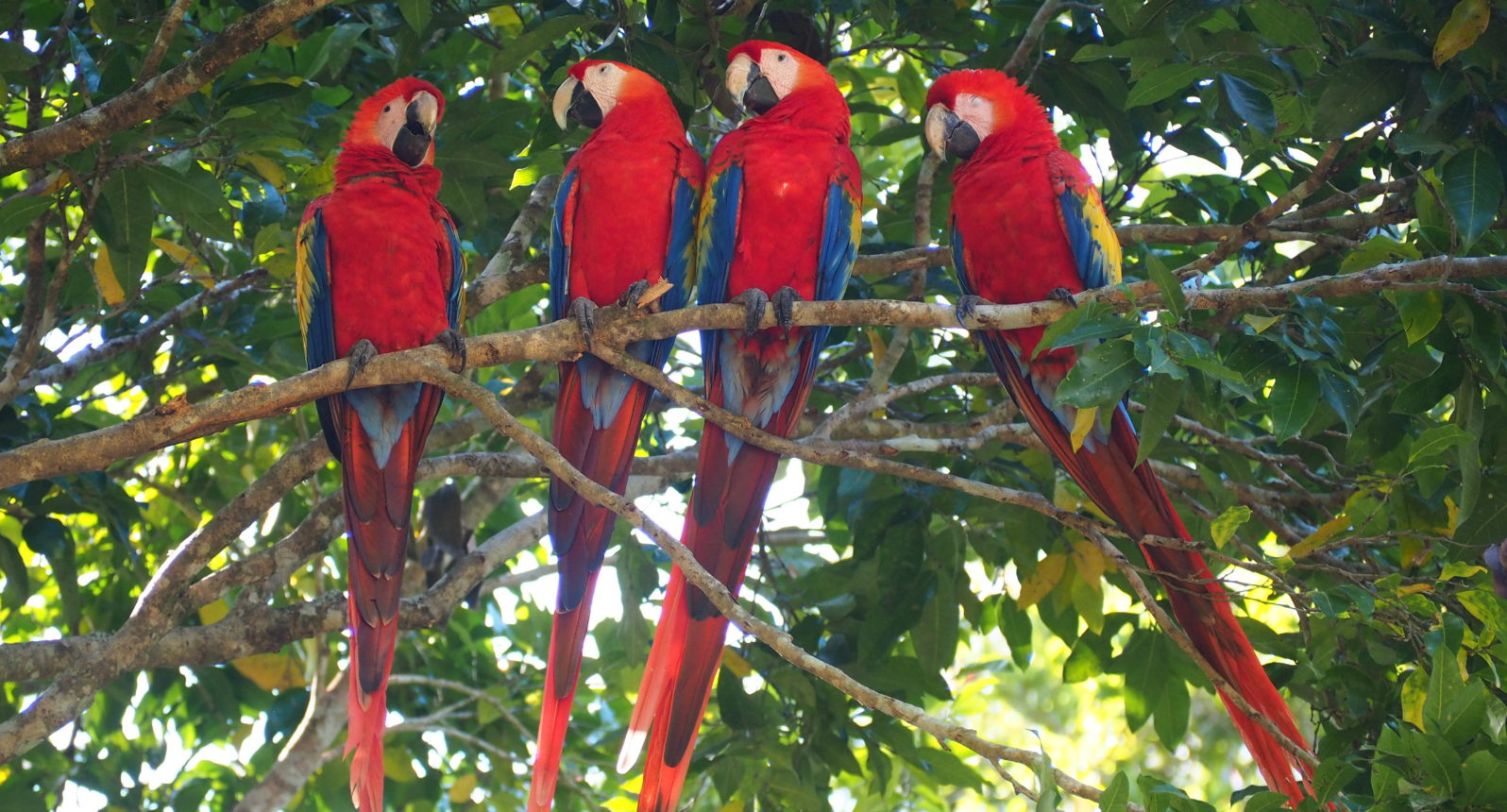
The ultimate guide to Honduras: 10 days itinerary
Slightly spontaneously we decided to hit Honduras during our trip last November and December. We had heard about the superb diving possibilities around the Bay Islands, which was enough reason to take the plunge and to include the country in the Latin American itinerary.
I really loved our time in Honduras. The trip was way more relaxed than I expected it to be plus the things to do over there are just super diverse. Jungle adventures, marine life, friendly locals, Mayan culture, abundant wildlife, gorgeous beaches; this country has it all and its citizens really deserve a better future.
Guidebooks won’t do for up-to-date info about Honduras. Personally I looked for bits and pieces online, talked to a lot of other backpackers and expats in Honduras and that’s how I created this itinerary. So I’m gonna smash it online now; just to make things a little easier for you!
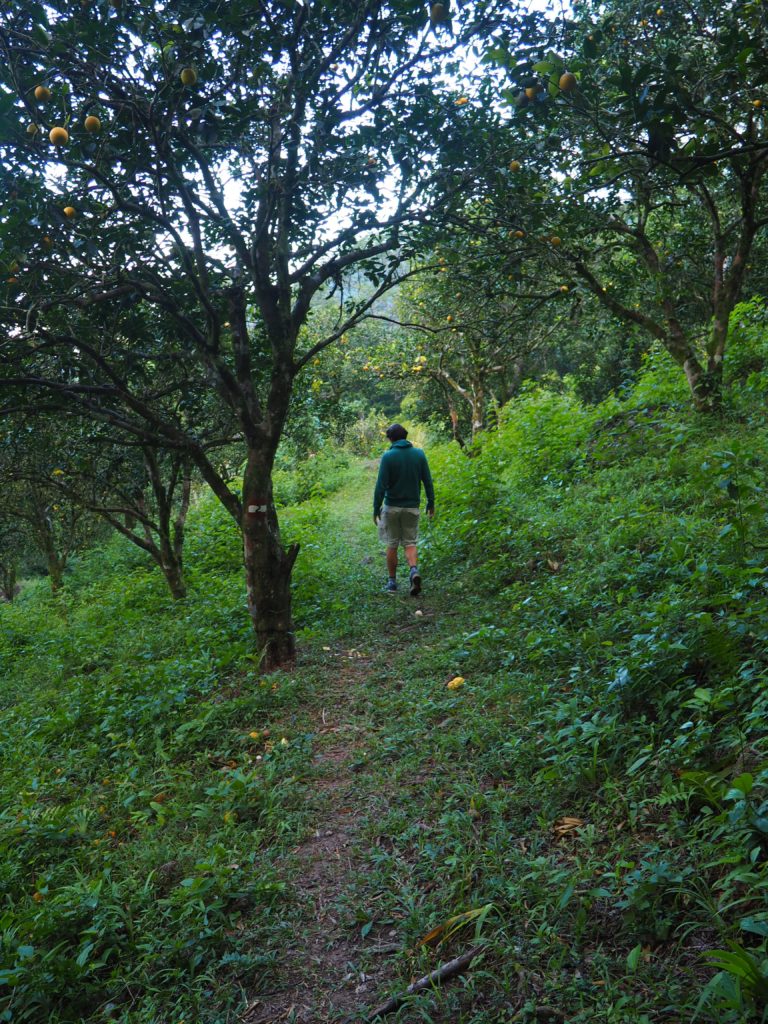
First things first. I realize that Honduras doesn’t exactly have an immaculate reputation. Diving and crime; probably those two words used to be my first association when thinking of Honduras. Figures will show you Honduras is one of Central America’s most dangerous countries after all. And yet, we noticed very little of all of that. Except for the diving; superb indeed.
I wouldn’t recommend this country to your niece though. You know; the one that is about to start her first backpack journey (I’m only thinking about my own self in here when I was 19), but if you think you’ve passed the ‘rookie-phase’, I’d say go for it. Just plan a tad in advance and have a plan B ready. That never hurts anyway. In La Ceiba I even needed a plan C, when I found out that the hotel I planned to go to (in case I’d miss the boat, which I did) didn’t exist anymore. Suddenly I was dropped at sunset in a city that I didn’t know at all. Not the best situation to start first day in Honduras with.
But anyway, all of these spots below are very well reachable. If you don’t deviate from the main important stops in the country and stick to the transportation I recommend you to go with (next paragraph) I think you’ll be good.
- Copán is super safe. So safe that we in fact were able to walk over there at night. We can’t even do that in Costa Rica.
- La Ceiba was totally different, it felt kind of sketchy and I wasn’t too pleased to stay over there. I was forced to though, since I missed the ferry ride to Roatán, but I wouldn’t recommend this city personally. Especially the suburbs can be dangerous. If you have to stay there book a hotel downtown.
- Regarding San Pedro Sula (at some point known the city was also known as the world’s capital of crime) I can only say; the bus station is safe. I drove through the city twice and it seemed quite okay, but obviously that doesn’t say enough. I personally wouldn’t stay there.
- Roatán felt super safe to me
Of course my experiences aren’t a blueprint. This is just how I perceived things, but they might give you an impression nonetheless.
With regard to safety this paragraph might help you out as well.
I personally arrived in Honduras after a very long shuttle drive from Río Dulce in Guatemala to La Ceiba in Honduras. I organised this via Rooney Shuttle Service . Although I wasn’t too pleased about the speed of the ride (I waited for hours that day, both during the early morning pick-up and later on the day when they were switching shuttles), in general I would recommend this shuttle service as it felt safe to me. And that’s something pleasant too, when in Honduras. Better late than sorry.
From La Ceiba to Copán we again arranged the drive via Rooney. We had a super nice driver this time and he telling us all about his previous life in the States and the situation in Honduras. Perhaps this conversation was one of the best insights we got during our stay in Honduras.
Regarding Roatán : you’re able to reach the island either via boat or via plane. From La Ceiba I took the ferry ($33,- USD, it goes twice a day; check the schedule in here ) to Roatán.
The ferry ride to the island was very choppy. Two staff members were handing out plastic bags and after I couple of minutes I realised what they were for…
My husband on the other hand arrived by airplane . From Central America you can fly from both El Salvador and San Pedro Sula to the island. And if you come from the east from both the USA and Canada you might even be able to fly directly to the island. What a luxury!
Regarding leaving Honduras: we both took a flight from Guatemala City. But note that getting there from Copán took us 7 hours (instead of the 5 we were told). Another option we were considering was the airport of San Pedro Sula.
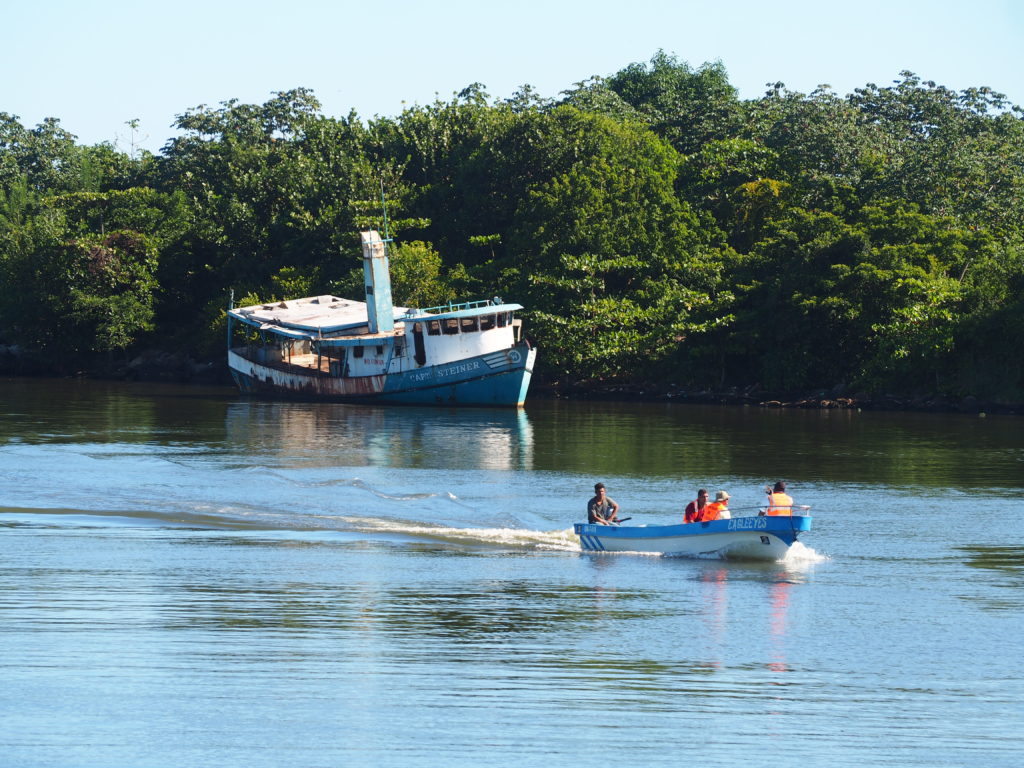
Overview itinerary:
5 days on the island of Roatán for a chilled stay + beach bumming + excellent diving + great food
2 days in Omega Lodge along Río Cangrejal in the Pico Bonito park for adrenaline adventures + jungle vibes
3 days in Copán Ruinas for Mayan culture + spa relaxation + chocolate indulgement
If you have extra days:
3 days on the island of Utila for an extra change to see that whaleshark
3 days along the Lago de Yojoa in the D&D Brewery for kayaking + hiking + cave dwelling
Itinerary in detail:
Here we go!
5 days: Roatán
Excellent diving & stunning sunsets – the island of Roatán in front of the coast of Honduras was a winner for sure in my book.
Roatán isn’t the only island you can visit from La Ceiba. Utila , Guanaja and Cayos Cochinos attract visitors too. All four of them are basically like the quintessential tropical dream.
Since we only had a couple of days we knew we couldn’t see them all and we had to make a choice which one we would visit. Both Guanaja and Cayos Cochinos are difficult to reach. These islands don’t have regular shuttle services. I’m aware that because of this, staying at one of these islands can be very attractive. But you also have to bring in a LOT of dough, not only to reach the islands but also to stay there, plus you’re very dependent on the efforts of others.
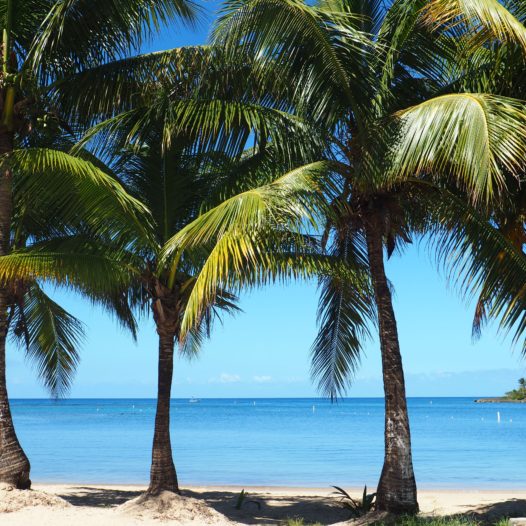
So our choice was narrowed down to Roatán and Utila .
Utila is known as a party island, attracting a lot of early twenty backpackers. This has to do with the fact that Utila is also the cheapest island to stay at. Roatán attracts a far more midrange crowd than Utila, and unfortunately has less budget options. The island’s accommodation mostly comes in the form of luxury resort packages, but there are some good budget options and even better; we’ve found them for you!
Both Roatán and Utila are known as superb diving destinations. It was the main reason why we wanted to visit these islands, plus doing a fair share or ‘hammocking’. Because I really wanted to chill and not being disturbed by late night vomiting vibes, ánd because one of us had to fly to the Bay Islands and Roatán has the best airport, we decided visit Roatán first and see if we would later make it to Utila as well. But we liked Roatán and its laid-back vibe so much that we decided to stay over there for the rest of the time!
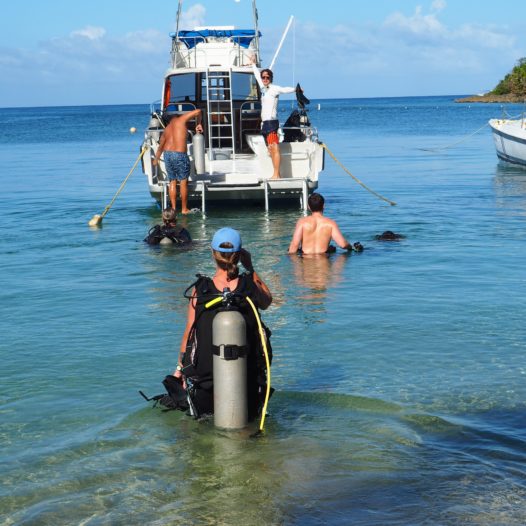
Where to stay on Roatán?
Nearly all backpackers that visit Roatán find their temporary home in West End , where most of the budget options are found.
If you’re looking for a private budget cabin then I’d absolutely recommend Hotel Chillies . Note that I’m not getting paid or anything to write this down. I just really liked the property, especially its location directly along the shores and its lovely jungle garden ↓
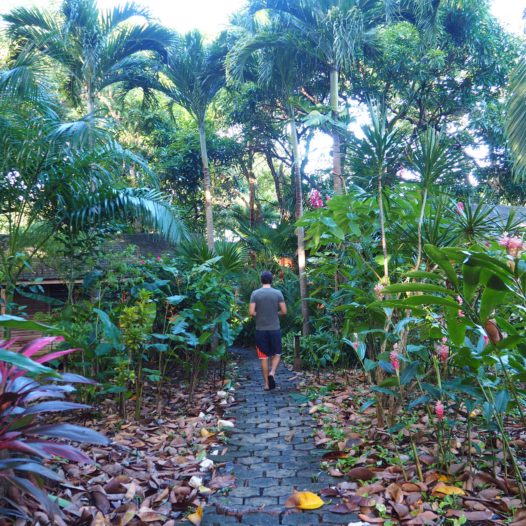
I you want to book a dorm spot, room or cabin as well in here, try to contact Michele (the owner of Hotel Chillies) directly via Facebook . We stayed for four nights in here and paid $36,- USD per night for a private cabin with a warm shower.
The cabin had a lovely porch with a hammock, a lot of (humming)birds that kept us company during the day and during the night we were surprised by a cute (and very noisy) armadillo!
The only thing I disliked about the cabin was the bathroom: it didn’t have a door! Just a curtain. Not the best idea if you’re looking for a romantic getaway…
What to do on Roatán?
I wrote an entire guide about the island, so check that stuff out in here!
2 days: Rafting + jungle adventures @ Río Cangrejal near Pico Bonito
After our ultimate chill-out-beach-bum-hammock-style kind of stay on the island of Roatán, we were absolutely ready for some adventure time on Honduras mainland.
Luckily for us, quite close to La Ceiba there’s this giant and slightly under-appreciated national park of Pico Bonito (meaning in English: ‘pretty little point’). It takes an hour on a bumpy road to get from La Ceiba to this wilderness, which is home to loads of monkeys, birds, reptiles and even some jaguars.
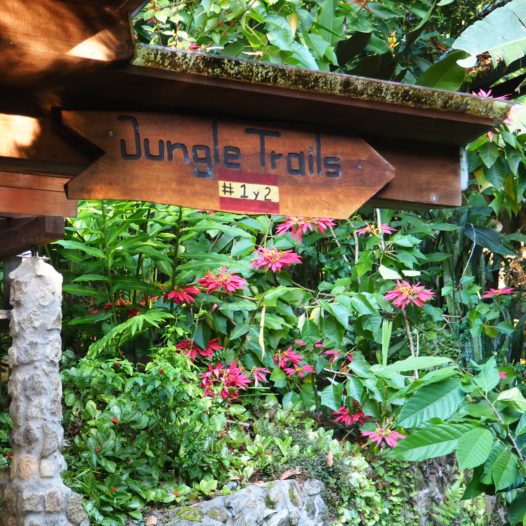
While being on Roatán we were advised by several expats to stay at the Omega Lodge , an eco-lodge located along the Río Cangrejal in between both Pico Bonito and the park of Nombre de Dios (“Name of god”).
The lodge is run by a couple from Germany, Udo and Sylvia, who already came to the area some 25 years ago. Udo was a member of the national German rafting team and always on the lookout for great rapids. He found his ultimate river paradise in Honduras and decided not only to offer whitewash rafting tours in the area, but also to built a lodge from scratch to hosts his rafting visitors. And the couple has been expanding their property with cabins ever since.
Fresh food, a lush environment, awesome canopying and rafting, some jungle trails and playful dogs; this place had it all in my opinion! Our stay in here was absolutely superb and a nice addition to our days on the beach. Read more about our rafting adventure and stay at Omega Lodge!

Note that from La Ceiba it takes a full day to reach the next location from La Ceiba.
3 days: Copán Ruinas
Meet the cosiest town of Honduras: Copán! We stayed there for a couple of days on our way from La Ceiba in Honduras to Antigua in Guatemala and I have to say; it’s difficult not to fall in love with the cobblestoned streets of Copán. The nearby crumbling Mayan ruins dot the outskirts of the city and clearly point to the cultural past as well.
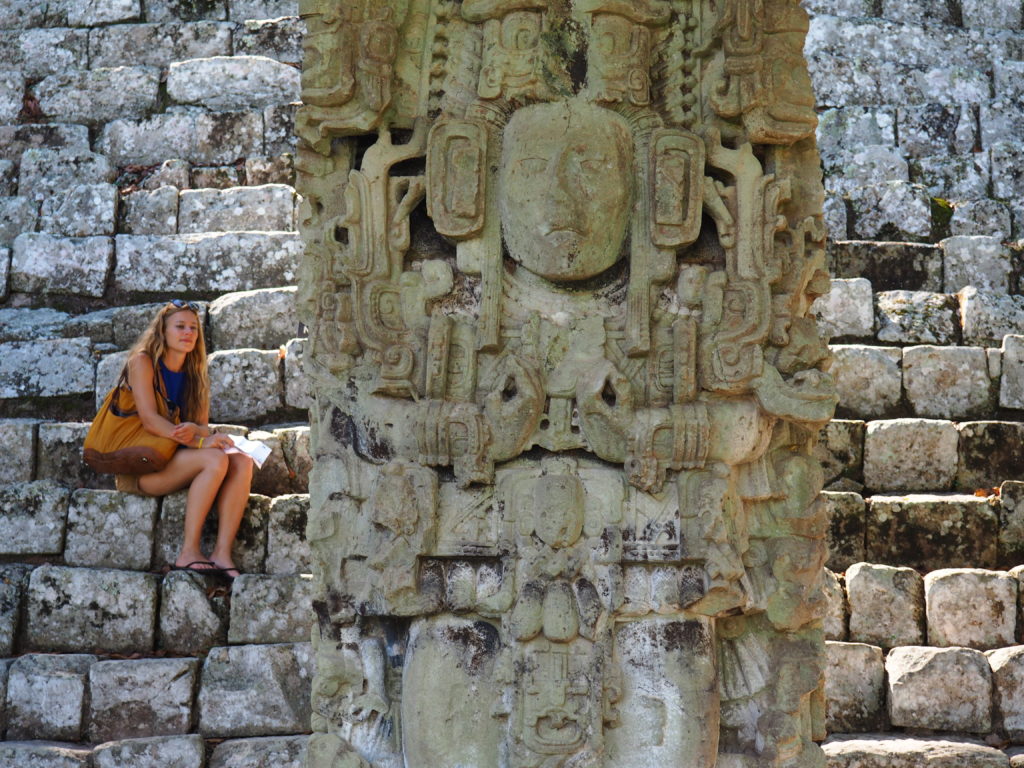
The vibe in Copán is entirely different compared to the rest of Honduras (or at least, the parts that I’ve seen). Copán feels much more Guatemalan and considering that is almost next to the border Guatemalan-Honduran border that ain’t a surprise. It’s basically like they have cut of a little part out of Antigua and put it on a hill in a lush mountainous environment.
Most folks come here just to see the famous Maya ruins, but there’s a lot of other fun stuff to do in Copán. If you want to see and do all of the things below, try to linger a little longer; at least three days I’d say. Otherwise two would be the bare minimum. Or one if you just want to see the ruins and get out after that.
Here’s what to do and where to eat in Copán!
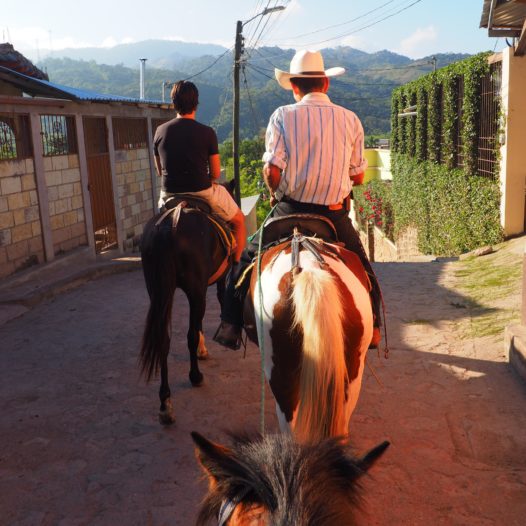
Where to stay in Copán?
There are quite some downtown budget options. We checked out Hotel Via Via (for just $10,- USD per private room with private bathroom!!), which looked great. However, since it’s located next to the only club in town I wouldn’t advise you to go there in the weekend. Even earplugs won’t help you in here.
We stayed at the nearby Iguana Azul (private room for $19,- USD, shared bathroom. Dorms are available as well), which was basic but very decent and had a laid-back backpackers vibe. The great thing about this hotel is the next doors breakfast area, which is set in a very laid-back and lush garden. ↓
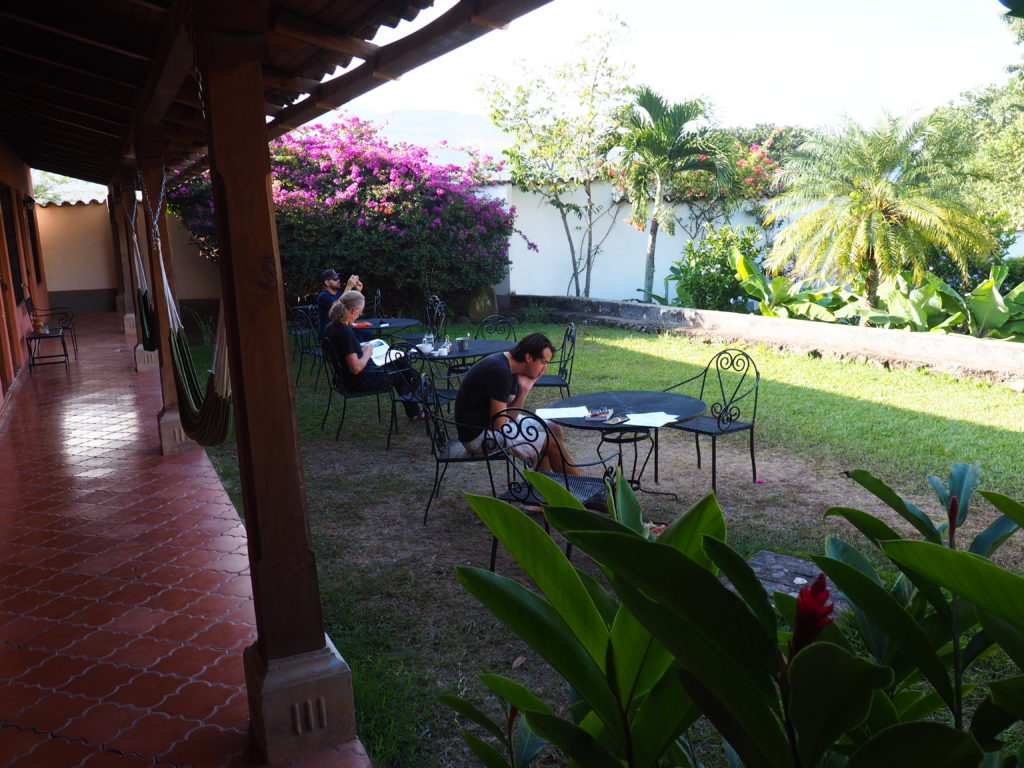
Extend that itinerary!
If I had another 6 days I would have stayed 3 more days on the island of Utila (or perhaps more days on Roatán since I loved it so much…) just to include even more dives.
Another location I would absolutely would have visited is the Lago de Yojoa ! I heard a lot of nice stories from other backpackers about this lake and especially about the ho(s)tel B&B Brewery. Apparently the lake is great for hiking, to do a coffee tour, a bit of kayaking and cave-dwelling. I’m sure a stay over here would make a trip to Honduras even more diverse!
Here’s where to find the spots in Honduras:
Tags: activities , afro caribbean , animals , bay islands , beach , brewery , central america , copan , copan ruinas , D&D , daytrip , dive , diving , hike , hiking , honduras , itinerary , la ceiba , maya , national park , native sons , nature , omega , omega lodge , outdoor , photos , rafting , rio cangrejal , roatan , ruins , things to do , tiny travelogue , tour , tours , trail , travel , utila , west end , what to do , what to see , where to go , where to stay , wildlife
Leave a Reply Cancel reply
Your email address will not be published. Required fields are marked *
Notify me of follow-up comments by email.
Notify me of new posts by email.
Related posts:
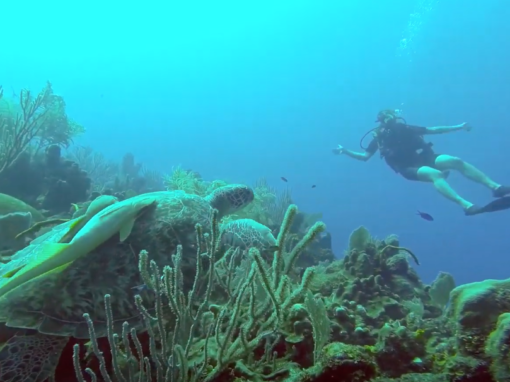
DRONE + GoPro ALERT! Flying above and diving under Roatán, Honduras
Looking for the best diving location in Central America? You may just find it in one of the most unlikely places: Honduras! Slightly spontaneously we decided to hit Honduras during
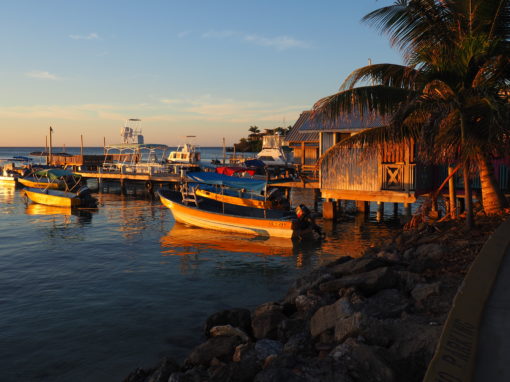
A guide to Roatán, that slice of paradise in Honduras
For a short week we stayed along the lovely western shores of Roatán; one of the Bay Islands located 50 km in front of the Caribbean coast of Honduras. Roatán
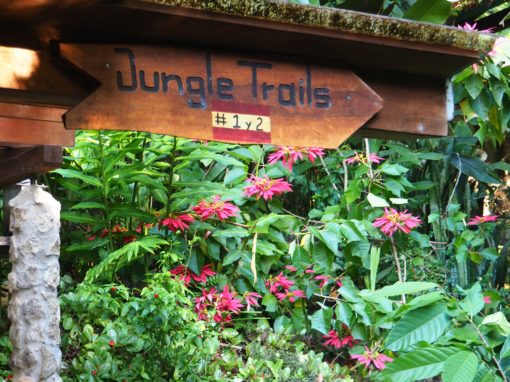
Our jungle adventures at Pico Bonito in Honduras
After our ultimate chill-out-beachbum-hammock-style kind of stay on the island of Roatán (more information about that coming up!), we were absolutely ready for some adventure time on Honduras mainland. Luckily
Follow on Instagram:

Subscribe to blog via email
You like to receive travel updates in your inbox? Subscribe in here!
Email Address
The Tiny Travelogue on FB
Cookies on GOV.UK
We use some essential cookies to make this website work.
We’d like to set additional cookies to understand how you use GOV.UK, remember your settings and improve government services.
We also use cookies set by other sites to help us deliver content from their services.
You have accepted additional cookies. You can change your cookie settings at any time.
You have rejected additional cookies. You can change your cookie settings at any time.
Bring photo ID to vote Check what photo ID you'll need to vote in person in the General Election on 4 July.
- Passports, travel and living abroad
- Travel abroad
- Foreign travel advice
Entry requirements
This advice reflects the UK government’s understanding of current rules for people travelling on a full ‘British citizen’ passport from the UK, for the most common types of travel.
The authorities in Honduras set and enforce entry rules. If you’re not sure how these requirements apply to you, contact the Honduran Embassy in the UK (in Spanish).
COVID-19 rules
There are no COVID-19 testing or vaccination requirements for travellers entering Honduras.
If you’re showing symptoms of any infectious disease, including COVID-19, you may have to have a medical evaluation. The Ministry of Health will decide if you need testing or quarantine.
Travel in Honduras
The Honduran authorities may ask you to wear a mask when visiting:
- medical and dental settings (hospitals, clinics, vaccination centres and laboratories)
- nursing homes
Check the Honduras National Police (in Spanish) and National Institute of Migration (in Spanish) websites for more information on any COVID-19 restrictions.
Passport validity requirements
Your passport must have an ‘expiry date’ at least 6 months after the date you arrive in Honduras and have at least 2 blank pages.
Check with your travel provider that your passport and other travel documents meet requirements. Renew your passport if you need to.
You will be denied entry if you do not have a valid travel document or try to use a passport that has been reported lost or stolen.
Visa requirements
You can visit Honduras without a visa. You’ll get a 30-day visit entry stamp in your passport when you arrive. You can apply at an immigration office to extend your stay by 90 days.
If you overstay, you may get a fine that you must pay before you leave Honduras. For information on how to extend your stay or pay a fine, contact the National Institute of Migration (in Spanish).
Applying for a visa
To stay longer (to work or study, for business travel or for other reasons), you must meet the Honduran government’s entry requirements. Check which type of visa or work permit you need with the Honduran Embassy (in Spanish).
Make sure you get your passport stamped.
If you do not get your passport stamped when you arrive, you will get a fine. If you notice your passport has not been stamped, return to the immigration desk, or go to the National Institute of Migration in Tegucigalpa as soon as possible.
Immigration pre-check form
Before you enter or exit Honduras, you must complete the online immigration pre-check form .
Take a screenshot of the form and QR code to show immigration officials. If possible, print the confirmation email and bring it to the airport as well. You will be asked for this at check-in and in some cases before you board the aircraft.
If you cannot access the immigration pre-check form or do not receive the confirmation email, contact the Honduran Embassy (in Spanish) if you’re in the UK. If you’re in Honduras, contact your travel agent or the National Institute of Migration (in Spanish):
- telephone: +504 2232 7800
- email: [email protected]
Travelling through Honduras
If you’re travelling through Honduras to another country (sometimes called ‘transiting’), you must follow Honduran entry requirements even if you do not pass through immigration. Contact the National Institute of Migration (in Spanish) for information.
Travellers aged 20 and under
To enter or exit Honduras, people aged 20 and under travelling alone or with only one parent or legal guardian must have a notarised letter in Spanish from the parents or guardians not travelling with them. Contact the Honduran Embassy (in Spanish), or if you’re in Honduras the nearest National Institute of Migration (in Spanish), for information about what documents you need. Single parents will need additional documents.
Airport tax
There is an airport departure tax for international flights of 48.44 US dollars (or the same amount in Honduran lempiras). This is normally included in the cost of your ticket.
There is also a departure tax for domestic flights of 54.13 Honduran lempiras (or the same amount in US dollars).
Travelling to El Salvador, Guatemala and Nicaragua
Under the Central America Border Control Agreement (also known as CA-4), you can travel between El Salvador, Guatemala, Honduras and Nicaragua for up to 90 days without a visa.
The 90-day period starts when you enter any of these countries and does not restart when you cross borders. You’ll have to go through immigration checks at borders. If you’re expelled from one of these countries, you’re also excluded from the other 3.
You can extend your stay by up to 30 days by paying a fee before the 90 days expires. If you overstay, you may get a fine.
Land border fee
If you arrive at or depart from a land border, the immigration authorities will charge you a fee of 3 US dollars. Keep the receipt until you leave Honduras and make sure you get a stamp in your passport.
Vaccination requirements
At least 8 weeks before your trip, check the vaccinations and certificates you need in TravelHealthPro’s Honduras guide .
Depending on your circumstances, this may include a yellow fever certificate.
Customs rules
There are strict rules about goods you can take into or out of Honduras. You must declare anything that may be prohibited or subject to tax or duty.
You must complete the Government of Honduras’ customs declaration form prior to entering or leaving the country. After completing the online form, you must present the QR code to the customs authorities, either on paper or electronically.
Related content
Is this page useful.
- Yes this page is useful
- No this page is not useful
Help us improve GOV.UK
Don’t include personal or financial information like your National Insurance number or credit card details.
To help us improve GOV.UK, we’d like to know more about your visit today. Please fill in this survey (opens in a new tab) .

- What is a visa?
- Electronic Visa (eVisa)
- Visa on Arrival
- Appointment Required Visa
- Invitation Letter
- Arrival Card
- Passport Renewal
- Project Kosmos: Meet the man with the world's most challenging travel schedule
- Australia Visa and ETA requirements for US citizens explained
- Brazil eVisa for US citizens
- India Tourist Visa for UK citizens
- Possible B1/B2 Visa questions during the interview
Select Your Language
- Nederlandse
- 中文 (Zhōngwén), 汉语, 漢語
Select Your Currency
- AED United Arab Emirates Dirham
- AFN Afghan Afghani
- ALL Albanian Lek
- AMD Armenian Dram
- ANG Netherlands Antillean Guilder
- AOA Angolan Kwanza
- ARS Argentine Peso
- AUD Australian Dollar
- AWG Aruban Florin
- AZN Azerbaijani Manat
- BAM Bosnia-Herzegovina Convertible Mark
- BBD Barbadian Dollar
- BDT Bangladeshi Taka
- BGN Bulgarian Lev
- BIF Burundian Franc
- BMD Bermudan Dollar
- BND Brunei Dollar
- BOB Bolivian Boliviano
- BRL Brazilian Real
- BSD Bahamian Dollar
- BWP Botswanan Pula
- BZD Belize Dollar
- CAD Canadian Dollar
- CDF Congolese Franc
- CHF Swiss Franc
- CLP Chilean Peso
- CNY Chinese Yuan
- COP Colombian Peso
- CRC Costa Rican Colón
- CVE Cape Verdean Escudo
- CZK Czech Republic Koruna
- DJF Djiboutian Franc
- DKK Danish Krone
- DOP Dominican Peso
- DZD Algerian Dinar
- EGP Egyptian Pound
- ETB Ethiopian Birr
- FJD Fijian Dollar
- FKP Falkland Islands Pound
- GBP British Pound Sterling
- GEL Georgian Lari
- GIP Gibraltar Pound
- GMD Gambian Dalasi
- GNF Guinean Franc
- GTQ Guatemalan Quetzal
- GYD Guyanaese Dollar
- HKD Hong Kong Dollar
- HNL Honduran Lempira
- HTG Haitian Gourde
- HUF Hungarian Forint
- IDR Indonesian Rupiah
- ILS Israeli New Sheqel
- INR Indian Rupee
- ISK Icelandic Króna
- JMD Jamaican Dollar
- JPY Japanese Yen
- KES Kenyan Shilling
- KGS Kyrgystani Som
- KHR Cambodian Riel
- KMF Comorian Franc
- KRW South Korean Won
- KYD Cayman Islands Dollar
- KZT Kazakhstani Tenge
- LAK Laotian Kip
- LBP Lebanese Pound
- LKR Sri Lankan Rupee
- LRD Liberian Dollar
- LSL Lesotho Loti
- MAD Moroccan Dirham
- MDL Moldovan Leu
- MGA Malagasy Ariary
- MKD Macedonian Denar
- MNT Mongolian Tugrik
- MOP Macanese Pataca
- MUR Mauritian Rupee
- MVR Maldivian Rufiyaa
- MWK Malawian Kwacha
- MXN Mexican Peso
- MYR Malaysian Ringgit
- MZN Mozambican Metical
- NAD Namibian Dollar
- NGN Nigerian Naira
- NIO Nicaraguan Córdoba
- NOK Norwegian Krone
- NPR Nepalese Rupee
- NZD New Zealand Dollar
- OMR Omani Rial
- PAB Panamanian Balboa
- PEN Peruvian Nuevo Sol
- PGK Papua New Guinean Kina
- PHP Philippine Peso
- PKR Pakistani Rupee
- PLN Polish Zloty
- PYG Paraguayan Guarani
- QAR Qatari Rial
- RON Romanian Leu
- RSD Serbian Dinar
- RUB Russian Ruble
- RWF Rwandan Franc
- SAR Saudi Riyal
- SBD Solomon Islands Dollar
- SCR Seychellois Rupee
- SEK Swedish Krona
- SGD Singapore Dollar
- SHP Saint Helena Pound
- SLL Sierra Leonean Leone
- SOS Somali Shilling
- SRD Surinamese Dollar
- SVC Salvadoran Colón
- SZL Swazi Lilangeni
- THB Thai Baht
- TJS Tajikistani Somoni
- TOP Tongan Pa anga
- TRY Turkish Lira
- TTD Trinidad and Tobago Dollar
- TWD New Taiwan Dollar
- TZS Tanzanian Shilling
- UAH Ukrainian Hryvnia
- UGX Ugandan Shilling
- USD United States Dollar
- UYU Uruguayan Peso
- UZS Uzbekistan Som
- VND Vietnamese Dong
- VUV Vanuatu Vatu
- WST Samoan Tala
- XAF CFA Franc BEAC
- XCD East Caribbean Dollar
- XOF CFA Franc BCEAO
- XPF CFP Franc
- YER Yemeni Rial
- ZAR South African Rand
- ZMW Zambian Kwacha
Apply for and track your visa with our new app!
Download Now
Honduras Vaccination Requirements: Do I need a vaccine to travel to Honduras?
- Please note: All COVID-19 requirements have been lifted.
Honduras is one of the prettiest countries in Central America that you should visit with your family and friends soon. However, there are some health measures that you must consider before traveling to Honduras, for your safety. If you don’t know which ones you need, we recommend you read about the Honduras Vaccination Requirements: Do I need a vaccine to travel to Honduras? that iVisa.com will clarify in the following lines.
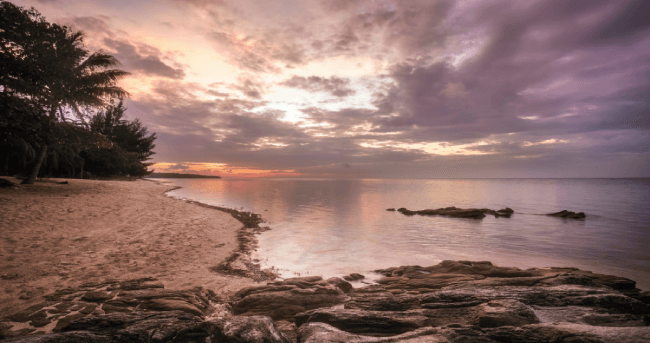
You might also need other travel documents to visit Honduras based on your nationality. If you don’t have clear which ones you would need, we suggest using iVisa.com because it is the perfect alternative to get all your travel documents more effortlessly. You will only have to complete our shortened application form that does not take more than ten minutes to fill in, and that will be all! Our fantastic team will take care of everything else.
Read more about the Honduras Vaccination Requirements: Do I need a vaccine to travel to Honduras?
How do I get a travel document with iVisa.com?
Complete the online form with your personal information.
Check your answers to make sure they are all correct, then select your preferred processing time and pay the relevant fee.
Upload any essential document scans, then hit submit. The document will be sent to your inbox when it has been approved and processed. That would be all! iVisa.com makes it simple for you.
Apply right now with iVisa.com if you want to get your documents easily!
Frequently Asked Questions
Do i need a vaccine to travel to honduras.
Yes, you will need some vaccines to travel to Honduras. However, most of them are recommended to have a safe trip. The vaccines you will need to consider are the following:
- Diphtheria-Tetanus-Pertussis.
- Hepatitis A.
These are the Honduras Vaccination Requirements: Do I need a vaccine to travel to Honduras?
Peek at the form .
DO I NEED TO TAKE A COVID-19 TEST BEFORE TRAVELING TO HONDURAS?
On the other hand, fully vaccinated travelers will have no problem entering the country. Travelers will be considered fully vaccinated two weeks after receiving two doses of a licensed vaccine or one dose of the Johnson & Johnson Janssen vaccine.
Do I have to quarantine once I arrive in Honduras?
Quarantine requirements: There are no quarantine requirements in Honduras.
What other documents will I need to visit Honduras?
It will depend on your nationality. It means you will have to verify with the iVisa checker tool to ensure which travel documents you will need for your trip to Honduras. Besides, you will have the opportunity to get your documents with iVisa.com more straightforward. Please, consider the Honduras Vaccination Requirements: Do I need a vaccine to travel to Honduras?
Some of the basic items you might need are:
- Passport , with a scanned copy of the information page. That’s the page with your picture on it.
- A credit or debit card to pay the processing fee.
- An email address to receive the eVisa.
Can iVisa.com help me get my travel documents?
Yes, of course! We have a fast and reliable process to help you get this document. We can help you at any time! All you have to do is to fill in an online form .
###I have a travel emergency! Can you speed up my process?
Yes! our company designed three different processing options to make sure that we can help travelers just like you with your documentation:
Standard processing: This processing speed is the best one for people with a decent amount of time before their departure date.
Rush processing: You can select this speed when you can afford to pay more and get your document processed faster.
Super Rush processing: This is the best alternative when you’re working under a tight deadline or if you're in an emergency. With Super Rush processing you’ll get your document back in record time.
Why should I trust iVisa.com?
There are tons of reasons why you should use iVisa.com . To start with, it is a great alternative to obtain your documents more effortlessly. You will have to complete the application form in our high-security platform to protect your data. You will receive guidance from experts, and you will not have to worry about the paperwork anymore!
Get started here!
I still have unresolved questions; how can I contact you?
If you still need some clarification about the Honduras Vaccination Requirements: Do I need a vaccine to travel to Honduras? Don’t hesitate to contact our customer service agents and answer all your questions about it. Chat with them whenever you need it.
iVisa.com Recommends
Honduras is a tropical country located in Central America, considered a diamond in the rough that is waiting to be discovered. Its beautiful landscapes and jaw-dropping beauty scenes where you can take the most stunning pictures. We will recommend you two fascinating places that you will adore, and you must write them down on your must-see list!
- Roatán: It is one of the largest bay islands in the country. Most tourists visit this place for its crystal waters. Besides, it is the best destination if you want to go to the beach and relax while sharing with your family and friends. However, if you’re going to see something else, you can also go to the Roatán Institute of Marine Sciences or the museums that are closed nearby. Despite its small size, it is the perfect place to visit during your stay in Honduras.
- Copán: In this town, you will have the opportunity to discover because they still preserve archaeological sites from the Maya Empire that traces back to the Old ages. These ruins are part of the UNESCO World Heritage Site. Nearby you will have the chance to explore the Museum of Mayan Sculpture.
These places are just part of the different areas that you should go to. You can visit Honduras without having to worry about the paperwork with iVisa.com . Do not think twice and apply now .
Related Articles
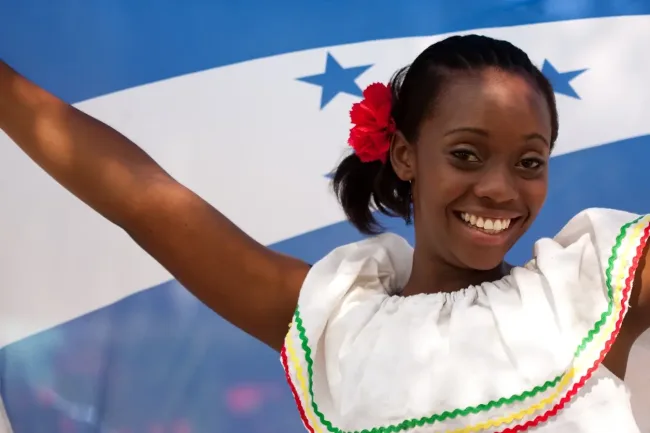
Celebrate Holy Week in Honduras: A deep dive into sacred culture

Honduras Pre-Check Application is not working

How can citizens of Honduras enter Honduras during Coronavirus?
Security Alert May 17, 2024
Worldwide caution, update may 10, 2024, information for u.s. citizens in the middle east.
- Travel Advisories |
- Contact Us |
- MyTravelGov |
Find U.S. Embassies & Consulates
Travel.state.gov, congressional liaison, special issuance agency, u.s. passports, international travel, intercountry adoption, international parental child abduction, records and authentications, popular links, travel advisories, mytravelgov, stay connected, legal resources, legal information, info for u.s. law enforcement, replace or certify documents.
Tourism & Visit
Study & Exchange
Other Visa Categories
U.S. Visa: Reciprocity and Civil Documents by Country
Share this page:
Afghanistan
Antigua and Barbuda
Bosnia and Herzegovina
Brunei Darussalam
Burkina Faso
Cayman Islands
Central African Republic
Congo the Democratic Republic of the
Curaçao
Czech Republic
Côte d'Ivoire
Dominican Republic
El Salvador
Equatorial Guinea
Guinea-Bissau
Iran, Islamic Republic of
Israel, Jerusalem, the West Bank and Gaza
Korea, Democratic People's Republic of
Lao People's Democratic Republic
Liechtenstein
Marshall Islands
Micronesia, Federated States of
Moldova, Republic of
Netherlands
New Caledonia
New Zealand
North Korea
North Macedonia
Palestinian Authority
Papua New Guinea
Philippines
Russian Federation
Saint Kitts and Nevis
Saint Lucia
Saint Vincent and the Grenadines
Sao Tome and Principe
Saudi Arabia
Sierra Leone
Sint Maarten (Dutch part)
Solomon Islands
South Africa
South Korea
South Sudan
Switzerland
Timor-Leste
Trinidad and Tobago
Turkmenistan
Turks and Caicos Islands
United Arab Emirates
United Kingdom
Virgin Islands, British
Wallis and Futuna
What is Reciprocity?
Nonimmigrant visa applicants from certain countries*/areas of authority may be required to pay a visa issuance fee after their application is approved. These fees are based on the principle of reciprocity: when a foreign government imposes fees on U.S. citizens for certain types of visas, the United States will impose a reciprocal fee on citizens of that country*/area of authority for similar types of visas.
How Do I Find Out if I Have to Pay a Reciprocity Fee?
To view the Reciprocity Page for your country* of nationality, select your country*/area of authority from the list of countries on the left side menu. On the Reciprocity Page, select the Visa Classifications tab from the column on the left
Select the type of visa you have applied for, such as a B-1/B-2 (temporary visa for business or pleasure), F-1 (student visa), etc. from the drop down menu:
The reciprocity information for that country*/area of authority will display:
What does this table tell me?
Visa Classification: The type of nonimmigrant visa you are applying for.
Fee: The reciprocity fee, also known as the visa issuance fee, you must pay. This fee is in addition to the nonimmigrant visa application fee (MRV fee).
Number of Entries: The number of times you may seek entry into the United States with that visa. “M” means multiple times. If there is a number, such as “One”, you may apply for entry one time with that visa.
Validity Period: This generally means the visa is valid, or can be used, from the date it is issued until the date it expires, for travel with that visa. If your Validity Period is 60 months, your visa will be valid for 60 months from the date it is issued.
What is the Difference between the Reciprocity Fee and the Nonimmigrant Visa Application Fee?
The nonimmigrant visa application fee, also known as the MRV fee, is a nonrefundable fee paid by most applicants for U.S. visas, whether the application is approved or refused. It covers the costs associated with processing a U.S. visa application. Current nonimmigrant visa application fees can be found on our Fees – Visa Services webpage. (This webpage also lists the few visa categories for which application fees are not required.)
While most visa applicants are required to pay the visa application fee, the Reciprocity Fee is only charged to an approved nonimmigrant visa applicant after the visa interview.
Immigrant Visa Interviews
For Immigrant Visa interviews each U.S. Embassy or Consulate has specific instructions for their applicants. Please click here to select your designated interview location.
Civil Documents and How to Use Them
Immigrant visa applicants are required to submit certain civil documents as part of their visa application, such as birth certificates and police records. (Nonimmigrant visa applicants do not routinely need to submit civil documents as part of their visa application.) Each Reciprocity Page will provide detailed information about how to obtain these civil documents from the country* you have selected, as well as the location of the U.S. Embassy or Consulate where you can apply for your visa. For more information about civil document requirements for immigrant visa cases, see civil documents .
To view the Civil Documents for your country* of nationality, select your country*/area of authority from the drop-down menu below. On the Reciprocity Page, click on the tabs on the left to see the categories of Civil Documents and how to obtain them.
(Image only)
* With respect to all references to “country” or “countries” on this page, it should be noted that the Taiwan Relations Act of 1979, Pub. L. No. 96-8, Section 4(b)(1), provides that “[w]whenever the laws of the United States refer or relate to foreign countries, nations, states, governments, or similar entities, such terms shall include and such laws shall apply with respect to Taiwan.” 22 U.S.C. § 3303(b) (1). Accordingly, all references to “country” or “countries” in the Visa Waiver Program authorizing legislation, Section 217 of the Immigration and Nationality Act, 8 U.S.C. 1187, are read to include Taiwan. This is consistent with the United States’ one-China policy, under which the United States has maintained unofficial relations with Taiwan since 1979.
Additional Information for Reciprocity
Reciprocity: What's New Temporary Reciprocity Schedule Country Acronyms Terrorist Designation Lists State Sponsors of Terrorism Treaty Countries Visa Issuing Posts
External Link
You are about to leave travel.state.gov for an external website that is not maintained by the U.S. Department of State.
Links to external websites are provided as a convenience and should not be construed as an endorsement by the U.S. Department of State of the views or products contained therein. If you wish to remain on travel.state.gov, click the "cancel" message.
You are about to visit:
Card Accounts
Business Accounts
Other Accounts and Payments
Tools and Support
Personal Cards
Business Credit Cards
Corporate Programs
Personal Savings
Personal Checking and Loans
Business Banking
Book And Manage Travel
Travel Inspiration
Business Travel
Services and Support
Benefits and Offers
Manage Membership
Business Services
Checking & Payment Products
Funding Products
Merchant Services
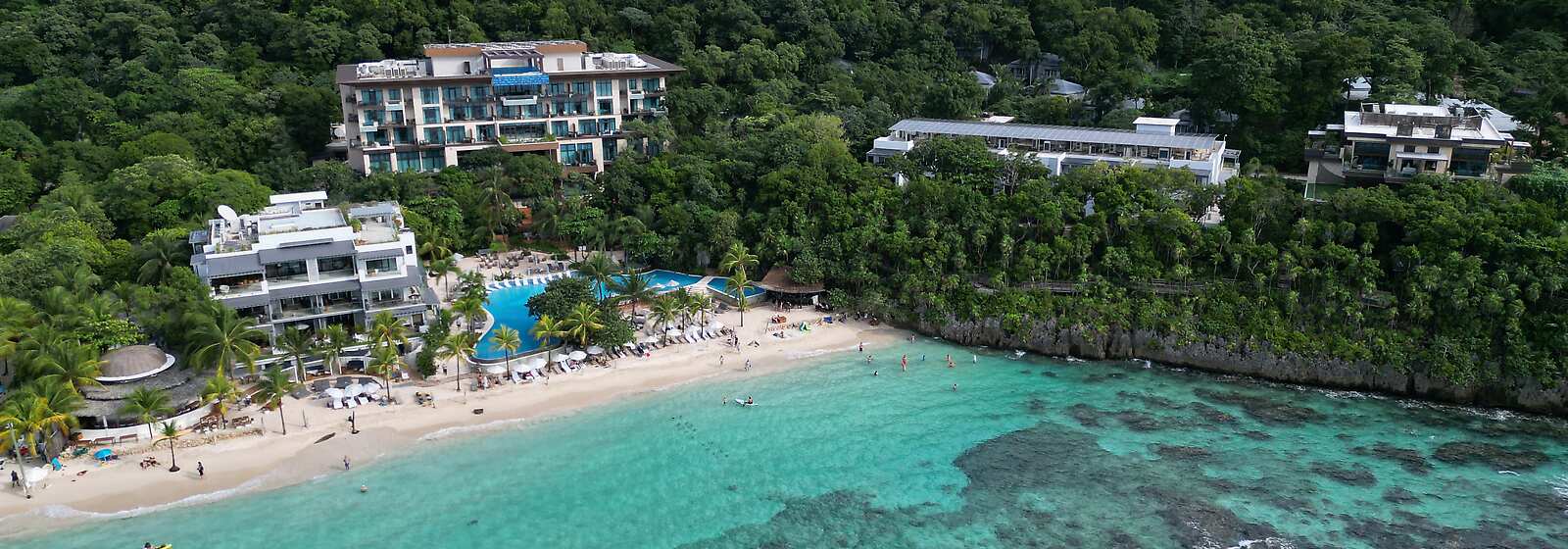
Kimpton Grand Roatan Resort and Spa
Located on west bay beach on the tropical island of roatán, kimpton grand roatan resort and spa is a unique blend of adventurous spirit and tranquil atmosphere. embrace your sense of natural wonder surrounded by waving palms, pristine beaches, and the world’s second-largest barrier reef..
Honor the Pesh people indigenous to Honduras with a ritual at Kao Kamasa Spa, which incorporates culturally significant numbers, materials, and designs into its treatments. You can even purchase items handcrafted by local Pesh artisans.
Rooms, suites, bungalows, and villas immerse you in island life with hand-woven lamp shades, geometric art, and a surf-and-sand color palette. Most accommodations feature private balconies and views of the Caribbean. Bathrooms feature rain showers and/or soaking tubs with pebble-finish floors.
Enjoy chic, Mediterranean-inspired breakfast or dinner at Alera, which locally sources produce, herbs, and spices wherever possible. Beat the heat with a beachside drink at the Sea Cat or enjoy wood-fired seafood at The Drop Off. Stop for a refreshing cup of specialty coffee at Vos Cafe & Bar.
Kao Kamasa Spa offers facials, massages, a circuit of hot-and-cold plunges, and a variety of rituals intended to help you feel centered in body and spirit. The 24/7 gym offers cardio, free weights, a ballet bar, and weekly classes, all with sweeping views of the sea.
Dip your toe into scuba with a pool training adventure, or take in the scenery with a walk along the beach. Get lost in the free-flowing rhythm of a jazz and martini night. Reflect on your goals and intentions with the nightly sunset ritual.
West Bay Beach. Roatan, Honduras
Juan Manuel Galvez International Airport.
- Daily breakfast for two
- Experience Credit : US$ 100 Property credit to be used during stay
- 4pm check-out guaranteed
- 12pm check-in, when available
- Room upgrade at check-in, when available 1
- Complimentary Wi-Fi
- $50 Property credit to be used during your stay.
Experience an exclusive getaway with one of our private stays ready for your arrival. Unpack, relax, and we'll do the rest.
Call your Centurion Membership Executive to book this property and receive your exclusive Centurion benefits in addition to your standard Fine Hotels + Resorts® benefits.
1 Certain room categories are not eligible for upgrade.
You May Also Be Interested In
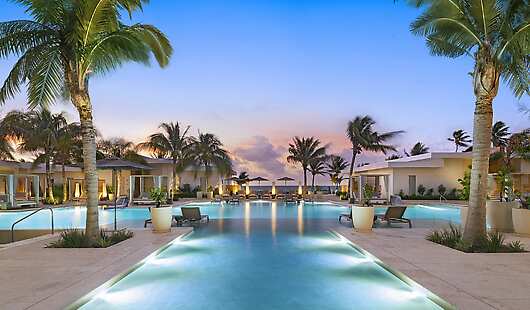
Looking for more? See all our luxury hotels in Roatan, Honduras
*Terms and Conditions
Fine Hotels + Resorts with Centurion Benefits Program: Fine Hotels + Resorts ® (FHR) program Centurion benefits are available for new bookings made through American Express Travel (meaning solely by calling the phone number on the back of your eligible Card) with participating properties and are valid only for eligible U.S. Consumer, Business, and Corporate Centurion ® Members. Bookings must be made using an eligible Card and must be paid using that Card, or another American Express ® Card, in the eligible Card Member's name, and that Card Member must be traveling on the itinerary booked. Room upgrade is subject to availability and is confirmed at time of booking; certain room categories are not eligible for an upgrade. Noon check-in is subject to availability and is provided at check-in. The type of experience credit varies by property; the experience credit will be applied to eligible charges up to the amount of the experience credit. Advance reservations are recommended for certain experience credits. The type and value of the daily breakfast (for two) varies by property; breakfast will be valued at a minimum of US$60 per room per day. If the cost of Wi-Fi is included in a mandatory property fee, a daily credit of that amount will be applied at check-out. For a stay of two consecutive nights or more, an additional experience credit of up to $200 will be provided. Benefit restrictions vary by property. Benefits are applied per room, per stay (with a three-room limit per stay). Back-to-back stays booked by a single Card Member, Card Members staying in the same room or Card Members traveling in the same party within a 24-hour period at the same property are considered one stay and are ineligible for additional FHR benefits (“Prohibited Action”). American Express and the Property reserve the right to modify or revoke FHR benefits at any time without notice if we or they determine, in our or their sole discretion, that you may have engaged in a Prohibited Action, or have engaged in abuse, misuse, or gaming in connection with your FHR benefits. Benefits cannot be redeemed for cash and are not combinable with other offers unless indicated. Benefits must be used during the stay booked. Any credits applicable are applied at check-out in USD or the local currency equivalent. Benefits, participating properties, and availability and amenities at those properties are subject to change.
Fine Hotels + Resorts Program: Fine Hotels + Resorts ® (FHR) program benefits are available for new bookings made through American Express Travel with participating properties and are valid only for eligible U.S. Consumer, Business, and Corporate Platinum Card ® Members, and Centurion ® Members. Additional Platinum Card Members on Consumer and Business Platinum and Centurion Card Accounts are also eligible for FHR program benefits. Companion Card Members on Consumer Platinum and Centurion Card Accounts, Additional Business Gold and Additional Business Expense Card Members on Business Platinum and Centurion Card Accounts, and Delta SkyMiles ® Platinum Card Members are not eligible for FHR program benefits. Bookings must be made using an eligible Card and must be paid using that Card, or another American Express ® Card, in the eligible Card Member's name, and that Card Member must be traveling on the itinerary booked. The average total value of the program benefits is based on prior-year bookings for stays of two nights; the actual value varies. Noon check-in and room upgrade are subject to availability and are provided at check-in; certain room categories are not eligible for upgrade. The type of experience credit or additional amenity (if applicable) varies by property; the experience credit will be applied to eligible charges up to the amount of the experience credit. Advance reservations are recommended for certain experience credits. The type and value of the daily breakfast (for two) varies by property; breakfast will be valued at a minimum of US$60 per room per day. If the cost of Wi-Fi is included in a mandatory property fee, a daily credit of that amount will be applied at check-out. Benefits are applied per room, per stay (with a three-room limit per stay). Back-to-back stays booked by a single Card Member, Card Members staying in the same room or Card Members traveling in the same party within a 24-hour period at the same property are considered one stay and are ineligible for additional FHR benefits (“Prohibited Action”). American Express and the Property reserve the right to modify or revoke FHR benefits at any time without notice if we or they determine, in our or their sole discretion, that you may have engaged in a Prohibited Action, or have engaged in abuse, misuse, or gaming in connection with your FHR benefits. Benefit restrictions vary by property. Benefits cannot be redeemed for cash and are not combinable with other offers unless indicated. Benefits must be used during the stay booked. Any credits applicable are applied at check-out in USD or the local currency equivalent. Benefits, participating properties, and availability and amenities at those properties are subject to change. To be eligible for FHR program benefits, your eligible Card Account must not be cancelled. For additional information, call the number on the back of your Card.
The Hotel Collection Program: The Hotel Collection (THC) benefits are available for new bookings of two consecutive nights or more made through American Express Travel with participating properties and are valid only for eligible U.S. Consumer and Business Gold Card, Platinum Card ® Members, and Centurion ® Members. Additional Card Members on Consumer and Business Platinum Card Accounts, and Additional Card Members on Consumer and Business Centurion Accounts are also eligible for THC program benefits. Delta SkyMiles ® Gold and Platinum Card Members are not eligible. Bookings must be made using an eligible Card and must be paid using that Card, or another American Express ® Card, in the eligible Card Member's name, and that Card Member must be traveling on the itinerary booked. Room upgrade is subject to availability and is provided at check-in; certain room categories are not eligible for upgrade. The type of experience credit or additional amenity (if applicable) varies by property; the experience credit will be applied to eligible charges up to $100. Advance reservations are recommended for certain experience credits. Benefit restrictions vary by property. Benefits are applied per room, per stay (with a three-room limit per stay). Back-to-back stays booked by a single Card Member, Card Members staying in the same room or Card Members traveling in the same party within a 24-hour period at the same property are considered one stay and are ineligible for additional THC benefits (“Prohibited Action”). American Express and the Property reserve the right to modify or revoke the THC benefits at any time without notice if we or they determine, in our or their sole discretion, that you have engaged in a Prohibited Action, or have engaged in abuse, misuse, or gaming in connection with your THC benefits. Benefits cannot be redeemed for cash and are not combinable with other offers unless indicated. Benefits must be used during the stay booked. Any credits applicable are applied at check-out in USD or the local currency equivalent. Benefits, participating properties, and availability and amenities at those properties are subject to change. To be eligible for THC program benefits, your eligible Card Account must not be cancelled. For additional information, call the number on the back of your Card.
Membership Rewards ® Program: Terms and Conditions for the Membership Rewards ® program apply. Visit membershiprewards.com/terms for more information. Participating partners and available rewards are subject to change without notice. The value of Membership Rewards points varies according to how you choose to use them. To learn more, go to www.membershiprewards.com/pointsinfo .
Terms and Conditions for the Membership Rewards ® program apply. Visit membershiprewards.com for more information. Participating partners and available rewards are subject to change without notice. The value of Membership Rewards points varies according to how you choose to use them. To learn more, go to www.membershiprewards.com/pointsinfo .
American Express Travel Related Services Company, Inc. is acting solely as a sales agent for travel suppliers and is not responsible for the actions or inactions of such suppliers. Certain suppliers pay us commission and other incentives for reaching sales targets or other goals and may provide incentives to our Travel Consultants. For more information visit americanexpress.com/travelterms
California CST#1022318; Washington UBI#600-469-694

Content Search
Visita a honduras - informe del relator especial sobre ejecuciones extrajudiciales, sumarias o arbitrarias (a/hrc/56/56/add.1) (advance unedited version), attachments.

Consejo de Derechos Humanos 56° periodo de sesiones 18 de junio–12 de julio de 2024 Punto 3 del orden del día Promoción y protección de todos los derechos humanos, civiles, políticos, económicos, sociales y culturales, incluido el derecho al desarrollo.
La Secretaría tiene el honor de transmitir al Consejo de Derechos Humanos el informe del Relator Especial sobre ejecuciones extrajudiciales, sumarias o arbitrarias, Morris Tidball-Binz, sobre su visita oficial a Honduras, que tuvo lugar del 22 de mayo al 2 de junio de 2023. Durante su visita, el Relator Especial examinó las medidas existentes y los esfuerzos nacionales para prevenir e investigar los homicidios ilegítimos, incluidos los derivados de la violencia institucional, las muertes bajo custodia y los homicidios por motivos de género.
El Relator Especial reconoce el legado de violaciones de los derechos humanos y de violencia heredado por el actual Gobierno y elogia el discurso político que reconoce las lagunas y los retos existentes, así como la voluntad de abordar las violaciones del pasado y evitar que se repitan. Subraya los retos estructurales que impiden la realización del derecho a la vida, como la impunidad endémica de los delitos y la corrupción en las instituciones del Estado. A pesar de las denuncias sistemáticas de homicidios ilegítimos y de las iniciativas del Estado para indemnizar a las familias de las víctimas, son muy pocos los casos que se investigan y menos los autores procesados.
En su informe, el Relator Especial ofrece recomendaciones prácticas y específicas para cada contexto, destinadas a mejorar la prevención, la investigación y la rendición de cuentas de las muertes ilegales, y a reforzar la protección efectiva del derecho a la vida, especialmente de las personas y grupos vulnerables. El Relator Especial está dispuesto a prestar asistencia al Gobierno de Honduras para la aplicación efectiva de sus recomendaciones.
Informe del Relator Especial sobre ejecuciones extrajudiciales, sumarias o arbitrarias, Morris Tidball-Binz, sobre su visita a Honduras
I. Introducción
1. Por invitación del Gobierno, el Relator Especial sobre ejecuciones extrajudiciales, sumarias o arbitrarias realizó una visita oficial a Honduras del 22 de mayo al 2 de junio de 2023. La visita tuvo como objetivo obtener información de primera mano sobre la situación de las ejecuciones extrajudiciales, sumarias o arbitrarias e identificar buenas prácticas y desafíos relacionados con la realización del derecho a la vida. También examinó los progresos realizados en la protección de personas y grupos, especialmente aquellos en situación de vulnerabilidad, garantizando la rendición de cuentas de las víctimas y sus familias, y previniendo futuros ataques contra el derecho a la vida en Honduras.
2. El Relator Especial expresa su sincero agradecimiento al Gobierno de Honduras por la invitación, la cooperación y el diálogo constructivo antes y durante la visita. Reconoce además la franqueza del Gobierno y la voluntad expresada de asumir la responsabilidad por las violaciones cometidas en el pasado y abordar los problemas estructurales y arraigados para garantizar que no se repitan.
3. Durante la visita, el Relator Especial se reunió con representantes de los poderes ejecutivo, legislativo y judicial. Se reunió con altos funcionarios del Gobierno de la Oficina de la Presidencia; los Secretarios de Asuntos Exteriores y Cooperación Internacional; de Defensa Nacional; de Derechos Humanos; de Seguridad, incluida la Oficina de Seguridad en Asuntos Policiales, y las Direcciones de la Policía Nacional y del Instituto Nacional Penitenciario. También se reunió con el Presidente y miembros del Tribunal Supremo de Justicia, del Ministerio Público y de fiscalías especializadas, incluyendo la Especial de Derechos Humanos (FEDH), de Delitos contra la Vida (FEDCV), de Protección de Etnias y Patrimonio Cultural, de Protección de Defensores de Derechos Humanos, de Periodistas, Comunicadores Sociales y Operadores de Justicia (FEPRODDHH), así como la Agencia Técnica de Investigación Criminal (ATIC), la Dirección General de Medicina Legal, incluido su Director General, y la Unidad Especial de Investigación de Muertes Violentas del Bajo Aguán (UMVIBA), dependiente del Ministerio Público. Además, se reunió con el Presidente del Congreso Nacional y miembros de las Comisiones Parlamentarias de Derechos Humanos, Asuntos Constitucionales y Justicia; con el Procurador General de la República y con instituciones nacionales de derechos humanos como la Comisión Nacional de Derechos Humanos (CONADEH) y el Mecanismo Nacional de Prevención de la Tortura y Otros Tratos Crueles, Inhumanos o Degradantes (CONAPREV).
4. El Relator Especial también se reunió con familiares de víctimas de ejecuciones extrajudiciales, sumarias o arbitrarias, organizaciones de la sociedad civil e instituciones académicas, como el Observatorio de la Violencia del Instituto Universitario para la Democracia, la Paz y la Seguridad (IUDPAS, Universidad Nacional Autónoma de Honduras), así como con el Comité Internacional de la Cruz Roja y organismos de las Naciones Unidas, como ONU Mujeres, UNICEF y PNUD.
5. En su calidad de médico forense, el Dr. Tidball-Binz impartió una formación y participó en un taller para elaborar un "Protocolo para la investigación y el enjuiciamiento de las muertes violentas de personas LGBTIQ+" a escala nacional, en cooperación con la OACNUDH en Honduras y organizaciones de la sociedad civil. El Relator Especial se reunió además con organizaciones que representan a víctimas asesinadas por defender los derechos sobre la tierra, los derechos de los Pueblos Indígenas y afrohondureños y la protección del medio ambiente.
6. El Relator Especial agradece a la Oficina del Alto Comisionado de las Naciones Unidas para los Derechos Humanos (OACNUDH) en Honduras por su inestimable apoyo para la preparación y realización de la visita. También expresa su profunda gratitud a las familias de las víctimas de muertes ilegales y a las organizaciones de la sociedad civil por su compromiso con el mandato y su confianza en él.
7. Durante la visita de 12 días, el Relator Especial viajó a las ciudades de Tegucigalpa, San Pedro Sula, La Ceiba y Trujillo, a las localidades de El Progreso y Tocoa y a la región del Bajo Aguán, donde se reunió con autoridades locales, familiares de víctimas y organizaciones de la sociedad civil. También visitó el Centro Penitenciario Nacional de Támara.
8. El Relator Especial espera continuar el diálogo constructivo con el Gobierno y otras partes interesadas para garantizar la aplicación efectiva de las recomendaciones contenidas en este informe.
Related Content
Honduras: dengue epidemic, dref operation (mdrhn023).
Honduras + 6 more
Consorcio LIFE-Honduras: Informe de situación no. 19 (Período de cobertura 1 de abril al 30 de abril de 2024)
Consortium life-honduras: situation report no. 19 (coverage period april 1 to april 31, 2024).
Honduras + 10 more
Honduras - Monitoreo de Protección en Movimientos Mixtos - Abril 2024
Language selection
- Français fr
How to apply
Additional changes to entry, testing and quarantine requirements in response to the Omicron variant
There are temporary changes for all travellers, including Canadian citizens, regardless of their vaccination status.
Additional restrictions and requirements now apply to these countries:
- Botswana, Egypt, Eswatini, Lesotho, Malawi, Mozambique, Namibia, Nigeria, South Africa, Zimbabwe
News release
Changes to border measures
New border measures include
- rules for re-entering Canada, if leaving for 72 hours or less
- who is considered fully vaccinated
- rules for travelling within Canada
Starting January 15, 2022, there will be new rules for who can enter Canada as an unvaccinated or partially vaccinated traveller.
Learn more about the new measures
Venezuelan passport holders
You may need to complete extra steps when you fill out your application .
If the printed expiry date on your Venezuelan passport has passed
If the printed expiry date has passed and you’re applying for a visitor visa, study permit, work permit or to extend your stay as a temporary resident in Canada, follow these steps:
- Add 5 years to the printed expiry date shown on your passport and enter it in the expiry date field of the application form.
- Include a letter of explanation with your application stating: “I am a Venezuelan national with a Venezuelan passport, which has been extended for 5 years”.
Warning: If your passport is still expired after adding 5 years to the printed expiry date, your passport is considered expired. You’re not eligible to submit an application with that passport.
Prepare documents and apply
The reason you’re traveling to Canada determines the way you apply and the documents you need to submit with your visa application.
Why are you applying for a visitor visa?
- To visit as a tourist
- To visit for business
- To visit your spouse or partner who has sponsored you for permanent residence
What is your family member’s status in Canada?
- Canadian citizen
- Person registered under Canada’s Indian Act
- Canadian permanent resident
- Temporary resident in Canada
- For compassionate reasons
- To join a vessel as a marine crew member (known as a “seafarer”)
- None of the above
Do you plan to visit your children or grandchildren for more than 6 months?
You may be eligible to apply for a Super Visa
A super visa lets you visit your children or grandchildren for 5 years at a time. It’s a visa that provides multiple entries for a period up to 10 years.
Find out how to apply for a Super Visa
Step 1 Gather documents
Gather these documents to submit with your visa application and bring when you travel.
About the documents listed
- Not all documents listed below are required—some are optional.
- This is not an exhaustive list of acceptable proof to support your visa application.
- Only submit the recommended documents that prove you’re eligible for a visa.
- Even if you submit all the documents listed, there is no guarantee that we’ll approve your application.
- We may request more information from you in addition to what is listed here.
Documents we accept:
- passports (regular, official or diplomatic) from most countries (see exceptions below)
- alien’s passport for stateless persons
- US Permit to Re-Enter (Form I-327)
- US Refugee Travel Document (Form I-571)
- other refugee travel documents for non-citizens
Documents we don’t accept:
- any passport issued by Somalia
- non-machine-readable passports issued by the Czech Republic
- temporary passports issued by the Republic of South Africa
- provisional passports issued by Venezuela
A clear, colour copy of your valid passport or travel document that you’ll use to travel to Canada
If you have a passport, you must provide a copy of
- the page that shows your birth date and country of origin
- any pages with stamps, visas or markings
If you have a travel document, it must be issued by a government and include your
- date of birth
- document number
- citizenship or residency status
- expiry date (if applicable)
Submit this document with your visa application.
Family members or third parties who apply on behalf of the applicant need to complete this form.
Submit the completed form with your visa application.
Each applicant 18 years or older must complete this form.
Submit the completed form with your visa application
Documents needed depend on whether a child under 18 years of age will travel with only 1 parent, with a relative or friend or alone.
You may need to show
- a letter that authorizes the minor child to travel to Canada
- other documents, such as adoption papers or a custody decree, depending on if the minor child travels alone or not
Consult Minor children travelling to Canada .
Submit these with your visa application.
- Show the border services officer when you arrive in Canada.
If you’ve travelled to Canada or to other countries, this can show that you’ve been able to get a visa in the past.
Proof of this includes copies of previous visas in your passport.
Include a clear copy of 1 or more of the following:
- your previous passports and/or visas (used within the last 10 years to travel outside your country)
- entry and exit stamps
- study and/or work permits that indicate your duration outside of your country
- expired or valid visas
Submit this document with your visa application
Documents that show how long you plan to stay and what you’ll do in Canada
Include copies of any of the following:
- flight details
- hotel reservations
- registration for an event
This can help us understand if you have enough money to support yourself during your stay in Canada.
Bank name and contact This allows us to contact your bank or financial institution with questions.
Proof it is your account Your name and address on the statement show that the account is yours.
Account details At least 6 months of account details, including balances, helps us understand your financial situation.
Use this form if you want to allow Immigration, Refugees and Citizenship Canada (IRCC) to release your personal information to someone you choose.
The person you choose will be able to get information on your case file, such as the status of your application.
Business visitor
A clear, colour copy of your valid passport or travel document that you'll use to travel to Canada
Submit this with your visa application.
A clear copy of 1 or more of the following:
- study and/or work permits that indicate your duration outside your country
Copies of any of the following:
A letter from your employer can confirm that you have a stable job and will return to it. It can also show that your employer supports your visit to Canada.
The letter should be printed on your employer’s official letterhead.
The letter should include the following:
- date, no earlier than 3 months before you apply
- confirmation that you have a job with the employer
- your full name and date of birth
- date you started the job
- brief description of your job
- current salary
- contact information of your manager
- phone number
- email address
- employer information
- company name
- state or province
- Your manager or human resources contact should print their name and sign the letter.
A letter from a business or company in Canada
It can confirm that your purpose for visiting Canada is valid.
A copy of the letter from the business or company inviting you to Canada
- The letter must be written to you from the business or company.
Consult the details to include in the letter .
Visit your spouse or partner who sponsored you for permanent residence
Proof of your relationship with the person or family member inviting you to Canada
This can include a copy of
- a marriage certificate
- Statutory Declaration of Common-Law Union (IMM5409)
- a birth certificate
- an official document naming you as a parent
Each applicant 18 years and older must complete this form.
The documents needed depend on whether a child under 18 years of age will travel with only 1 parent, with a relative or friend, or alone.
- other documents, such as adoption papers or a custody decree, depending on whether the minor child travels alone
Consult Minor children travelling to Canada
A letter written by your family member in Canada
A copy of the letter from the family member inviting you to Canada
- The letter must be written to you from your family member.
- current Salary
Complete the form that declares you and your partner are in a common-law relationship. Also provide proof that you and your common-law partner have combined your affairs and set up a household together.
What is a common-law partner?
Proof can include
- joint bank accounts or credit cards
- joint ownership of a home
- joint residential leases
- joint rental receipts
- joint utilities (electricity, gas, telephone)
- joint management of household expenses
- proof of joint purchases, especially for household items
- mail addressed to either person or both people at the same address
Faster visitor visa processing for spousal applicants
If you’re being sponsored for permanent residence (PR) by your spouse or partner, you could benefit from faster processing for a visitor visa.
You may be eligible if you
- submitted an application to be sponsored for permanent residence
- received an acknowledgement of receipt (AOR) that confirms the application is in progress
Applications that need more information, for example custody documents for a child, will take longer to process.
When your sponsor receives the AOR for your permanent residence application, you can apply for a visitor visa. If you’re eligible, your visitor visa application will automatically receive faster processing. You don’t need to request it.
You must still meet all of the requirements to be eligible for a visitor visa .
Visit family (Canadian citizen, person registered under Canada’s Indian Act, or permanent resident of Canada)
Submit with visa application
Visit children or grandchildren Super visa option
Submit this with your visa or super visa application.
For super visa applicants only
Proof that medical insurance for at least $100,000 coverage has been purchased from a Canadian insurance company.
A copy of the insurance certificate or policy you received for medical insurance coverage for 1 year with a Canadian insurance company.
Submit this with your super visa application.
Documents that show that the super visa applicant’s child or grandchild meets the low income cut-off minimum.
Submit one of the following documents:
- If the child or grandchild does not have a paper copy of their notice of assessment on file, they can view and print their tax returns as well as other personal tax information using the Canada Revenue Agency My Account online service.
- a copy of the child’s or grandchild’s most recent T4 or T1
- an original letter from the child’s or grandchild’s employer stating their job title, job description and salary
- a letter from an accountant confirming the child’s or grandchild’s annual income, if they are self-employed.
- proof of other sources of income (pension statement, investments, etc.)
A document confirming that you had an immigration medical exam (IME)
The exam must conducted by a panel physician authorized by IRCC.
Get complete details about how to get a medical exam with a panel physician.
Submit this with your super visa application, or wait for instructions from the visa office.
Visit family (temporary resident of Canada)
A letter written by your family in Canada
Documents that show how long you plan to stay and what you’ll do once in Canada
Visit for compassionate reasons
A clear, colour copy of your valid passport or travel document that you'll use to travel to Canada.
- Show the border services officer when you arrive in Canada
A letter written to you from a person or business inviting you to Canada
A copy of the letter from the person or business inviting you to Canada
- registration for an event.
Please indicate clearly if family members will accompany you to Canada.
Submit the following documents with your visa application:
- digital copy of Seaman’s Book
- digital copy of a signed Letter of Invitation from a ship or port agent in Canada
- digital copy of an Introduction Letter from recruiter shipping agency or vessel owner
- digital copy of the employment contract
Step 2 Apply through the IRCC Portal
Step 2 apply.
To apply for a visitor visa to visit Canada on business, you need to qualify as a business visitor.
To qualify, you must show that:
- you plan to stay for less than 6 months
- you don’t plan to enter the Canadian labour market
- your main place of business and source of income and profits is outside Canada
Business visitor activities include business meetings, special events or training for a few days or weeks.
If your meeting, event or conference is registered with us, include the event code in your application. You should get this code from the organizer.
Note: If you plan to stay for more than 6 months, or if you plan to work in Canada, you may be considered a temporary worker and have to apply for a work permit .
To apply online, you need a scanner or camera to create electronic copies of your documents, and a valid credit or debit card.
Read the instruction guide before you complete your application. As an online applicant, you can ignore steps 3 and 4 of the guide (paying the fees and submitting your application).
If you’re applying for the first time , you must pay the biometrics fee when you submit your application (unless you’re exempt). Otherwise, you may experience delays.
Apply through the IRCC Secure account
Sign in to your IRCC secure account
Apply through the IRCC Portal
Only for tourists, visiting for business, family visits, compassionate reasons
Sign in to the IRCC portal
To apply for a visitor visa to join a vessel as a marine crew member (seafarer) , you must
- be travelling to Canada to join a ship’s crew
- hold a seafarer’s identity document
- hold a valid passport or travel document
- have proof of employment on a vessel at a Canadian port
As a seafarer, you’re not eligible for a transit visa and you must apply for a visitor visa (temporary resident visa).
Note: When asked to “Tell us more about what you’ll do in Canada”, include “Join vessel” or “Seafarer”.
Register to the IRCC portal
Applying on paper for specific situations
If you need a visitor visa to travel to Canada, you must apply online for one. Only online applications will be accepted and processed. However, you can apply on paper if:
- you can’t apply online because of a disability or
- you’re travelling with an identity or travel document that was issued to a refugee, a stateless person or a non-citizen
The application package includes an instruction guide and all the forms you need to fill out.
Read the guide carefully before you complete your application . We will not refund your application fee, so make sure you need a visitor visa before you apply.
Each individual applicant must submit a completed application form. Applicants under the age of 18 must have this form signed by a parent or a guardian.
Download the application package .
Pay your application fees
In most cases, your fees will include processing fees for you and anyone you include on your application.
If you’re applying for the first time, you must pay the biometrics fee when you submit your application (unless you’re exempt). Otherwise, you may experience delays.
Third-party fees
Depending on your situation, you may need to pay third parties for
- your medical exam
- a police certificate
Our instruction guides (opens in a new tab) can help you understand which fees apply to you.
Submit your application
Families should send their individual applications in one package. The principal applicant must send this combined package to the location where their application will be processed.
Select the country/territory you’ll be applying from to find out where to submit your application. You can choose your country of nationality or the country or territory where you have been legally admitted:
- Afghanistan
- Antigua and Barbuda
- Bosnia and Herzegovina
- British Virgin Islands
- Burkina Faso
- Burma (Myanmar)
- Cayman Islands
- Central African Republic
- China (People’s Republic of)
- Comoros Island
- Côte d’Ivoire
- Czech Republic
- Democratic Republic of the Congo
- Dominican Republic
- El Salvador
- Equatorial Guinea
- Guinea-Bissau
- Hong Kong SAR
- Liechtenstein
- Marshall Islands
- Micronesia (Federated States of)
- Netherlands
- New Caledonia
- New Zealand
- North Korea
- North Macedonia (Republic of)
- Palestinian Authority (Gaza)
- Palestinian Authority (West Bank)
- Papua New Guinea
- Philippines
- Puerto Rico
- Sao Tome and Principe
- Saudi Arabia
- Sierra Leone
- Solomon Islands
- South Africa
- South Korea
- South Sudan
- St. Kitts and Nevis
- St. Vincent and the Grenadines
- Switzerland
- Timor-Leste (Timor oriental)
- Trinidad and Tobago
- Turkmenistan
- Turks and Caicos Islands
- United Arab Emirates
- United Kingdom
- United States of America
- US Virgin Islands
If you need to give biometrics (fingerprints and photograph), and you’re applying on paper, submit your application in person . VAC staff will check that it is complete and will confirm that you have paid the correct fees before you can give your biometrics.
Credit cards and prepaid cards
We accept the following credit cards and prepaid cards:
- MasterCard ®
- American Express ®
- UnionPay ® (for online applications only; debit cards not accepted)
If you use a prepaid credit card, keep it for at least 18 months after you pay to make refunds easier. Find more on prepaid cards .
We also accept all Visa Debit cards.
The card you use doesn’t have to be in your name. The cardholder’s name will appear on the receipt but it does not need to match your application.
Debit cards
- be from a Canadian bank using INTERAC ® Online
- be registered for online banking through your bank’s website
We also accept all Debit MasterCard ® and Visa ® Debit cards. If your card has the Visa Debit logo on it, alone or with the INTERAC ® Online logo, select Visa Debit as your payment method.
Page details
China Premier Li says Australia ties ‘back on track’ as he embarks on visit
During his four-day visit, Li Qiang is visiting Adelaide, the capital, Canberra, and mining state Western Australia.

Chinese Premier Li Qiang has said relations with Australia are “back on track” as he embarked on a four-day trip to the major trading partne r.
His visit starting on Saturday is the first by a Chinese premier in seven years and is expected to pave the way for President Xi Jinping’s first trip to Australia since 2014.
Australia is “uniquely positioned to connect the West and the East” and stands as “an important force of economic globalisation and world multipolarity”, Li said at Adelaide’s airport, according to a statement from the Chinese embassy.
Bilateral relations are “back on track after a period of twists and turns”, Li said.
He was greeted on the Adelaide airport tarmac by Australian Foreign Minister Penny Wong and South Australia Premier Peter Malinauskas.
Australia is the biggest supplier of iron ore to China, which has been an investor in Australian mining projects, though some recent Chinese investment in critical minerals has been blocked by Australia on national interest grounds.
China imposed trade restrictions on a slew of Australian agricultural and mineral products in 2020 during a diplomatic dispute that has largely eased since Prime Minister Anthony Albanese’s government took power in 2022 and adopted a softer diplomatic approach to Beijing.

During his four-day visit, Li will also visit a Chinese-controlled lithium processing plant in the Kwinana Beach industrial estate in Western Australia state, as well as Australia’s Parliament House in the national capital, Canberra.
He is also expected to visit a pair of pandas on loan from China to Adelaide’s zoo on Sunday. A lunch with wine exporters until recently shut out of the Chinese market will show trade ties have smoothed after the dispute that suspended 20 billion Australian dollars ($13bn) in Australian agriculture and mineral exports through last year.
“Mutual respect, seeking common ground while shelving differences and mutually beneficial cooperation” were key to growing China-Australia relations, Li said.
“A more mature, stable and fruitful comprehensive strategic partnership will be a treasure shared by the people of both countries,” Li said.
Li arrived in Australia from New Zealand, becoming the highest ranking Chinese official to visit either country since 2017.
China is the biggest trading partner of Australia and New Zealand, which are seeking to balance trade with regional security concerns over Chinese ambitions in the Pacific Islands.
In New Zealand, Li highlighted Chinese demand for the country’s agricultural products. On Saturday, he visited major dairy exporter Fonterra after signing agreements with Prime Minister Christopher Luxon on trade and climate change, with human rights and foreign interference also on the agenda.
Before leaving, Li told an audience in the city of Auckland that his country was committed to creating a first-class business environment and supporting foreign enterprises to develop in China, according to Chinese state media.
Li also said there was vast potential for China and New Zealand to collaborate in areas such as green development and that Beijing welcomed New Zealand enterprises, such as dairy company Fonterra, that seized such opportunities, Xinhua news agency reported.
After the Australian leg of his travels ends on Tuesday, Li is scheduled to visit Malaysia.

COMMENTS
Call us in Washington, D.C. at 1-888-407-4747 (toll-free in the United States and Canada) or 1-202-501-4444 (from all other countries) from 8:00 a.m. to 8:00 p.m., Eastern Standard Time, Monday through Friday (except U.S. federal holidays). See the State Department's travel website for the Worldwide Caution and Travel Advisories.
Visit our website for Travel to High-Risk Areas. Enroll in the Smart Traveler Enrollment Program (STEP) to receive Alerts and make it easier to locate you in an emergency. Follow the Department of State on Facebook and Twitter. Review the Country Security Report for Honduras. Prepare a contingency plan for emergency situations.
A top place to visit in Honduras is the Maya city of Copan, located in the town of Copan Ruinas near the border with Guatemala.. A UNESCO World Heritage Listed archaeological site, Copan rubs shoulders with the likes of Chichen Itza, Coba, Palenque (Mexico) and Tikal (Guatemala) as one of the great cities of the Maya world.. I first became captivated with Copán while reading the book ...
If you're headed to the coasts or Bay Islands, flip-flops are a must. 4. Bring skin protection and snorkel gear. Bring mosquito repellent and sunscreen. While you can buy these items in Honduras, you'll pay a premium. The same goes for snorkel gear, especially if you'll be in the water more than a couple of times. 5.
Honduras Travel Guide: The Best Booking Resources. These are my favorite companies to use when I travel. They consistently have the best deals, offer world-class customer service and great value, and overall, are better than their competitors. They are the companies I use the most and are always the starting point in my search for travel deals.
Restaurants in Honduras are open with restrictions. Bars in Honduras are . Find continuously updated travel restrictions for Honduras such as border, vaccination, COVID-19 testing, and quarantine requirements.
If your travel plans in Honduras include outdoor activities, take these steps to stay safe and healthy during your trip. Stay alert to changing weather conditions and adjust your plans if conditions become unsafe. Prepare for activities by wearing the right clothes and packing protective items, such as bug spray, sunscreen, and a basic first ...
Visit the Embassy's COVID-19 page for more information on COVID-19 in Honduras. American Citizens are still advised to reconsider travel to Honduras due to crime and the overall Travel Advisory is unchanged from Level 3: Reconsider Travel. Continue to exercise increased caution in Honduras due to COVID-19. Some areas have increased risk.
Central America. White beaches fringed by the world's second-largest barrier reef, jungle-covered mountains cut by raftable white-water rivers and home to an astounding number of bird species, exquisite Maya ruins, colonial, cobblestone villages, fresh seafood grilled on the beachâ ¦Yes, all this is found in Honduras, a country often hurried ...
The Centers for Disease Control and Prevention (CDC) has issued a Level 3 Travel Health Notice for Honduras due to COVID-19. Honduras has resumed some transportation options and business operations. Stay at home orders remain in effect. Visit the Embassy's COVID-19 page for more information on COVID-19 in Honduras. Do not travel to:
The best Baleada place in Copan General travel advice for Honduras 3. Is it easy to get around in Honduras? To get from one city to the next, we took the express buses.Some are closer to the chicken buses you see in Central America, that have been patched and repatched, the seats are tight and wonky, but the buses are efficient, cheap and don't stop as often as the public buses.
To avoid becoming a victim: be suspicious of recent acquaintances or strangers approaching you. avoid accepting rides or invitations from strangers. avoid hitchhiking. ensure that your belongings, including your passport and other travel documents, are secured at all times. avoid carrying large amounts of cash.
Mascot: On May 31 the Government of Honduras declared a national health emergency due to the significant increase in dengue fever across the country. (6 June, 2024) Message for U.S. Citizens: Impacts of Air Quality in Honduras (20 May, 2024) Alert: Postpone U.S. Citizen Services in the Bay Islands (20 May, 2024)
Don't toss things to people. That's usually reserved or dogs, so such a gesture could come off incorrectly. Don't use big bills (100 or 500 Lempiras) at small shops if you can avoid it. It's extremely rude since you might be asking the shop owner to have more than his daily/weekly income on hand to offer as change.
Living in Honduras. Travelling to Honduras. FCDO travel advice for Honduras. Includes safety and security, insurance, entry requirements and legal differences.
3. The immigration pre-check will only be a mandatory requirement for Nicaraguan citizens, who must carry it out seven (7) days before the scheduled date of departure to Honduras, by entering the platform: prechequeo.inm.gob.hn. 4. The INM will maintain the necessary controls, security verifications, and protocols to guarantee the protection of ...
Domestic Flights to Roatan. Local flights are available to Roatan from Honduras' airports in Tegucigalpa, San Pedro Sula, Copan, and La Ceiba. The domestic airlines are Isleña, Lanhsa, CM Airlines, and SOSA. You can also utilize domestic airlines to travel between the Bay Islands of Utila or Guanaja. Cruise Ships Coming to Roatan.
Airlines such as United (united.com) and TACA ( taca.com) ply these routes. In addition, SOSA ( als.aerocrs.net) operates flights between La Ceiba and Grand Cayman, from where you can connect to the UK and elsewhere in Europe. You can enter Honduras by land from Guatemala, El Salvador and Nicaragua. International services such as Tica Bus ...
How to Travel the World for (Almost) Free: https://travelforalmostfree.com/ref=beforeyougo2 // Here are the best places to visit and top things to do in Hond...
2 days in Omega Lodge along Río Cangrejal in the Pico Bonito park for adrenaline adventures + jungle vibes. 3 days in Copán Ruinas for Mayan culture + spa relaxation + chocolate indulgement. If you have extra days: 3 days on the island of Utila for an extra change to see that whaleshark.
Visa requirements. You can visit Honduras without a visa. You'll get a 30-day visit entry stamp in your passport when you arrive. You can apply at an immigration office to extend your stay by 90 ...
US citizens do not need a tourist visa when travelling to Honduras in 2024. US passport holders can stay in Honduras for a short period of time (for 90 days). Please, read all the information below to make your trip easy and safe. Don't rely on information from only one source. Please, with at least one more source listed in the link.
Yes, you will need some vaccines to travel to Honduras. However, most of them are recommended to have a safe trip. The vaccines you will need to consider are the following: Measles. Diphtheria-Tetanus-Pertussis. Influenza. Varicella. Mumps. Rubella.
What does this table tell me? Visa Classification: The type of nonimmigrant visa you are applying for. Fee: The reciprocity fee, also known as the visa issuance fee, you must pay.This fee is in addition to the nonimmigrant visa application fee (MRV fee). Number of Entries: The number of times you may seek entry into the United States with that visa.. "M" means multiple ti
American Express Travel Related Services Company, Inc. is acting solely as a sales agent for travel suppliers and is not responsible for the actions or inactions of such suppliers. Certain suppliers pay us commission and other incentives for reaching sales targets or other goals and may provide incentives to our Travel Consultants.
Por invitación del Gobierno, el Relator Especial sobre ejecuciones extrajudiciales, sumarias o arbitrarias realizó una visita oficial a Honduras del 22 de mayo al 2 de junio de 2023.
Visit your spouse or partner who sponsored you for permanent residence Proof of relationship. Proof of your relationship with the person or family member inviting you to Canada. Details to include. This can include a copy of. a marriage certificate; Statutory Declaration of Common-Law Union (IMM5409) a birth certificate
His visit starting on Saturday is the first by a Chinese premier in seven years and is expected to pave the way for President Xi Jinping's first trip to Australia since 2014. ... Honduras to ...